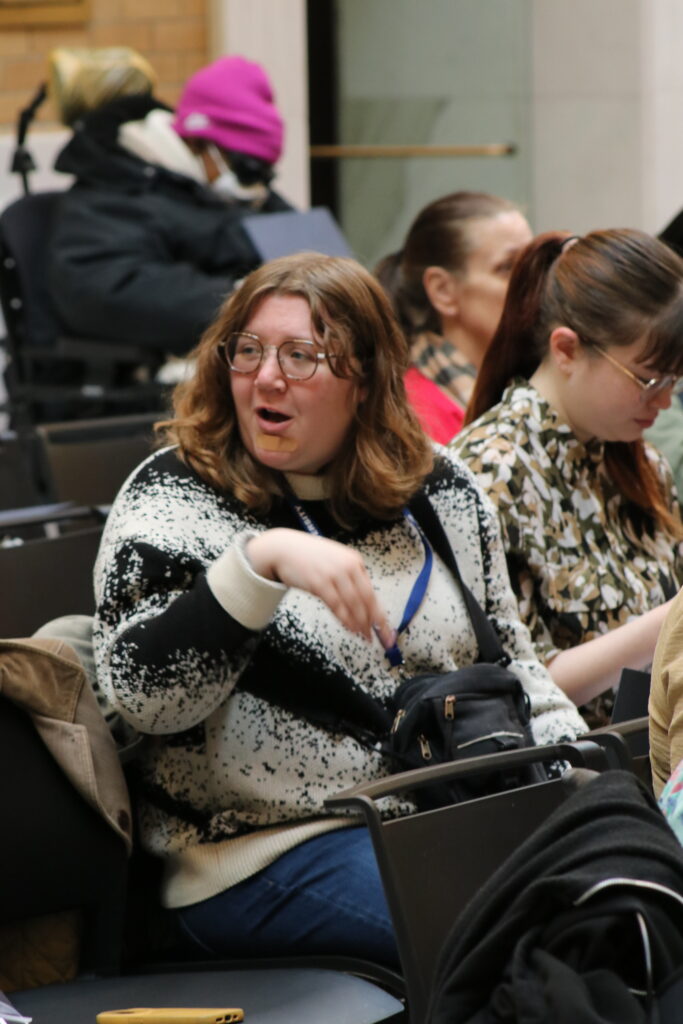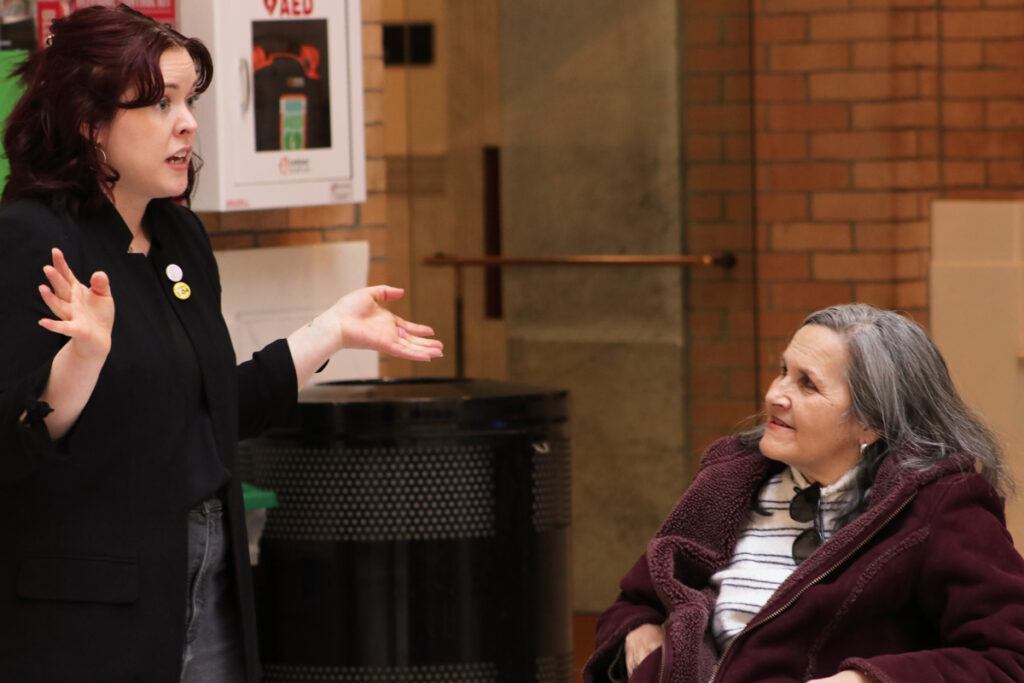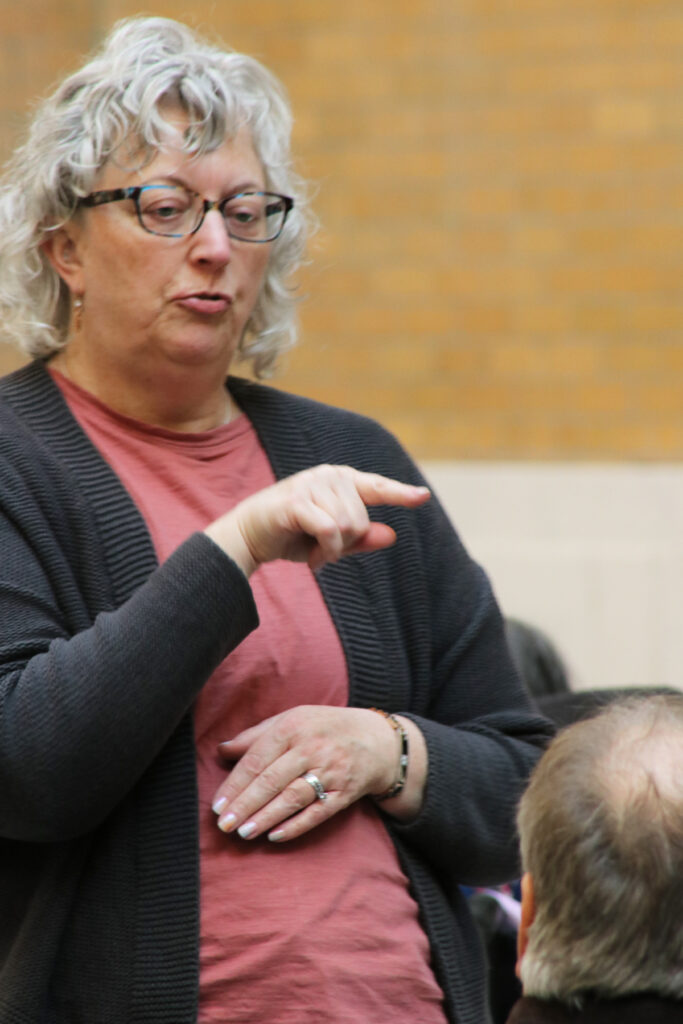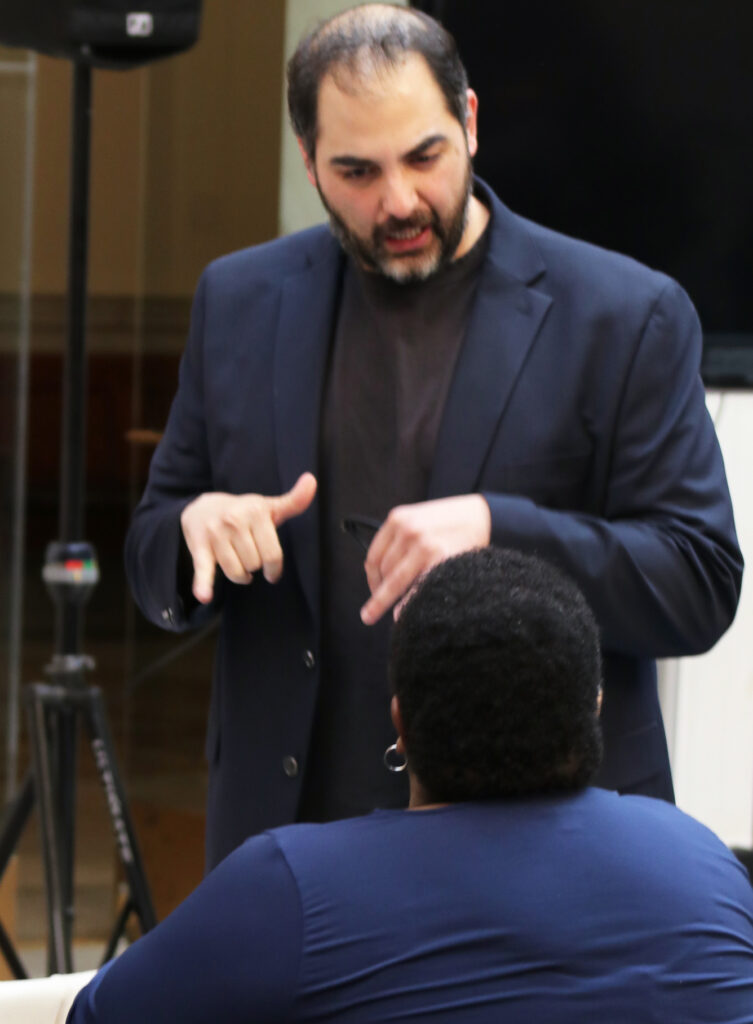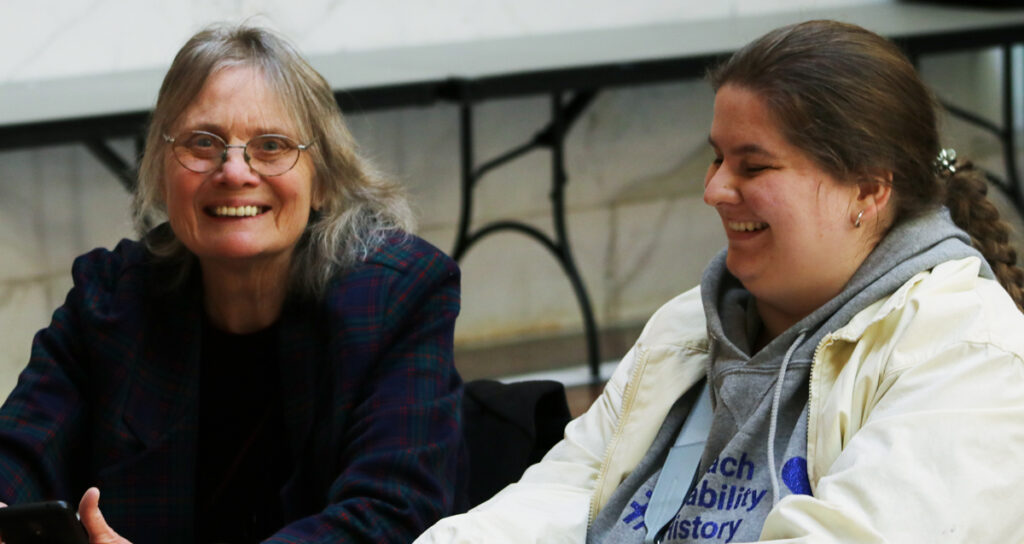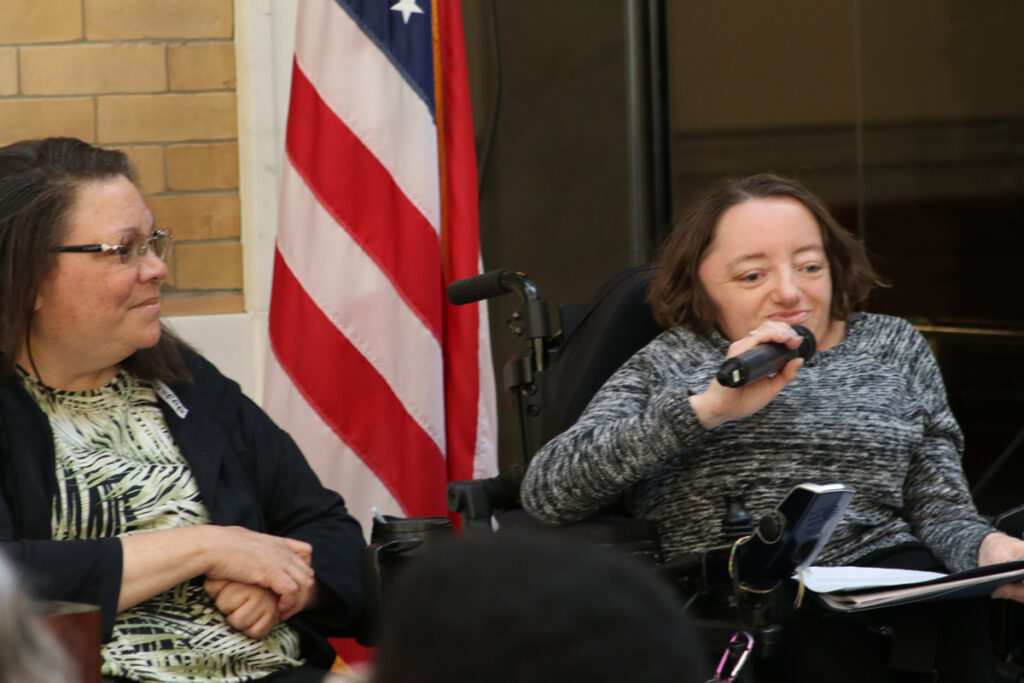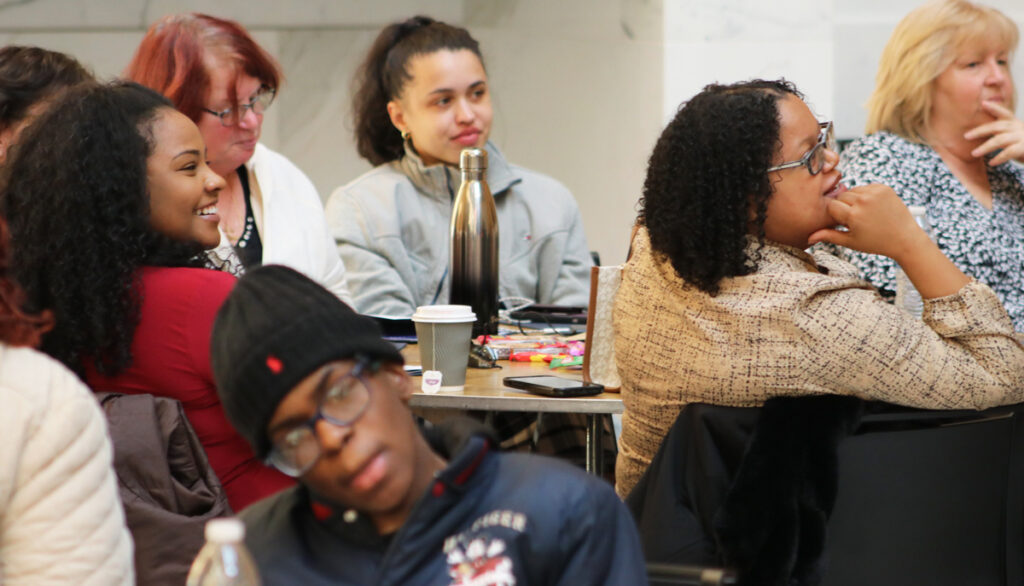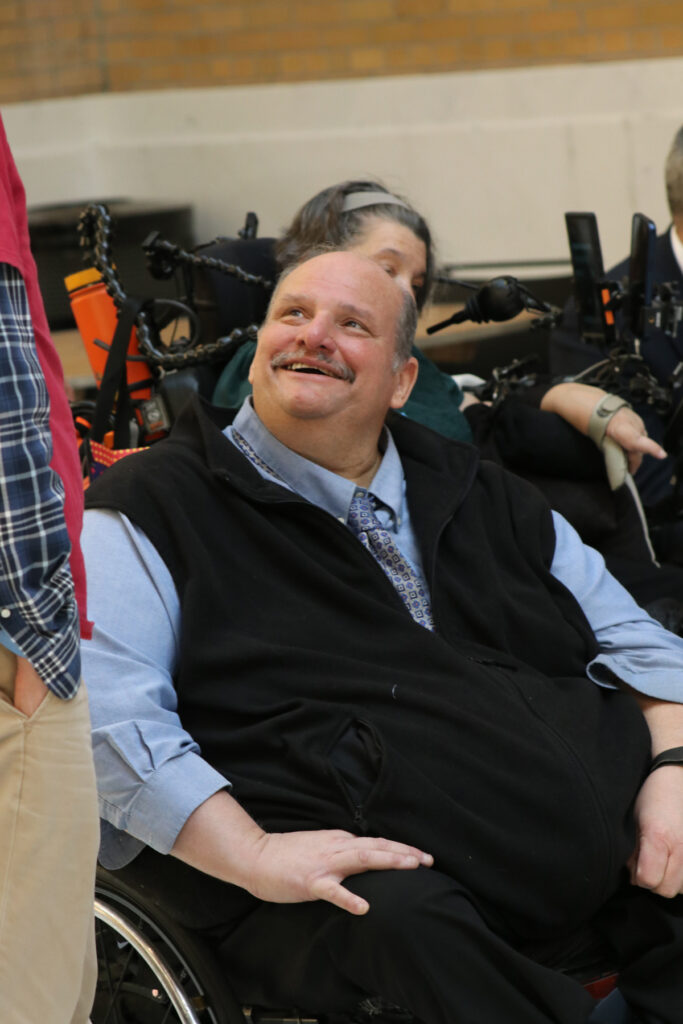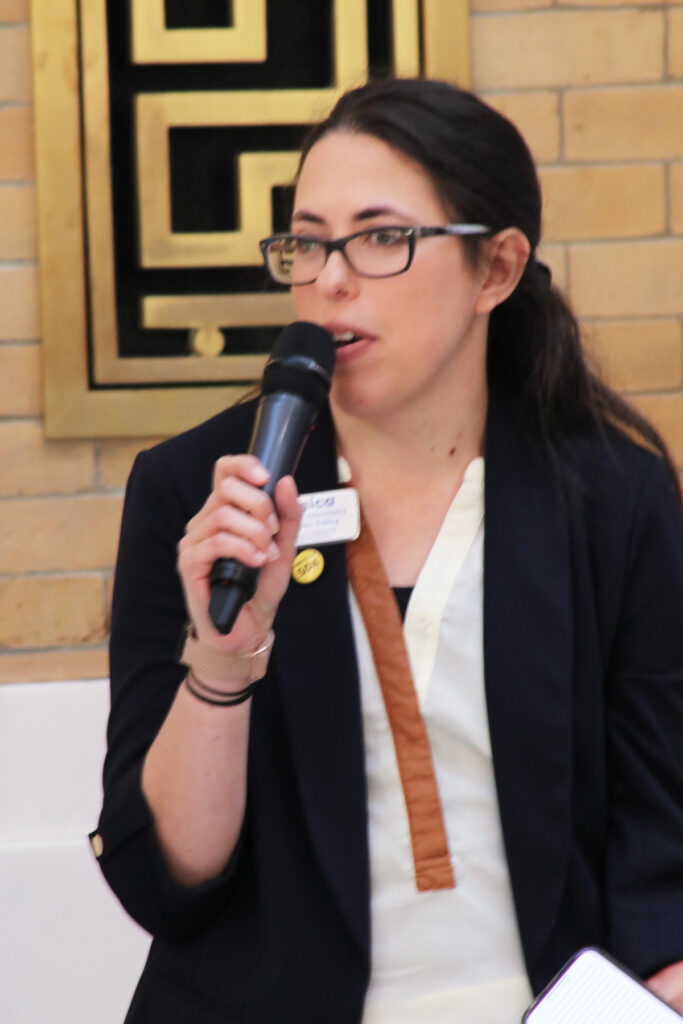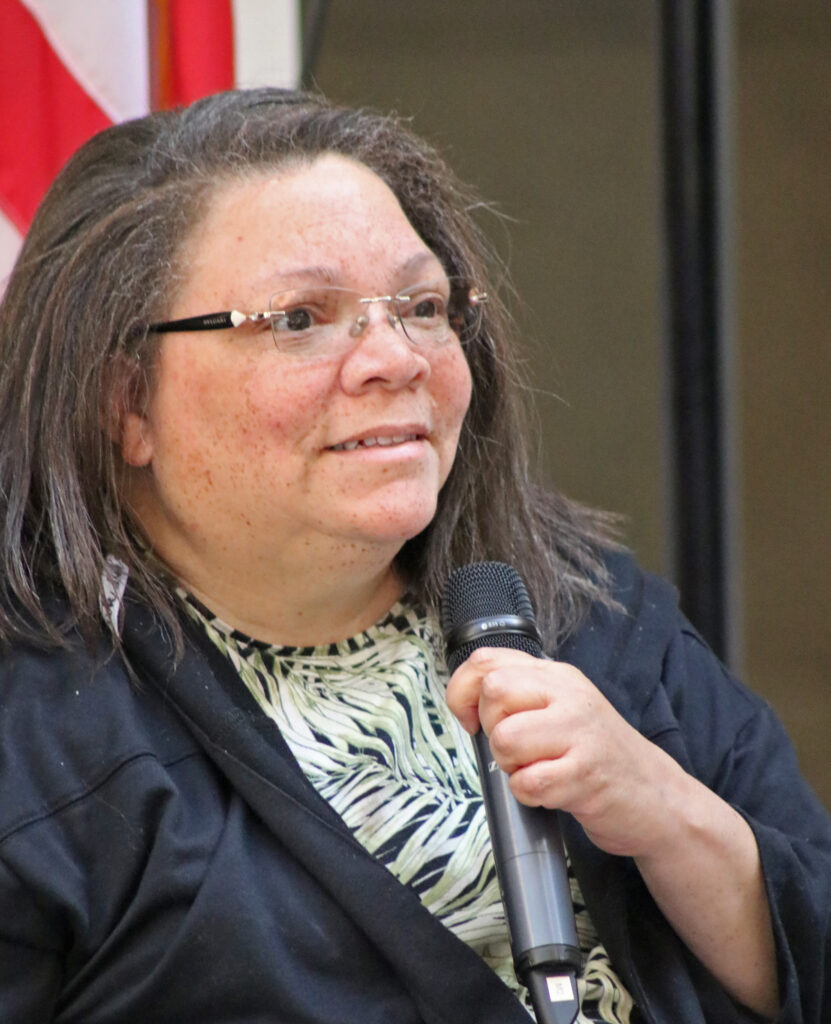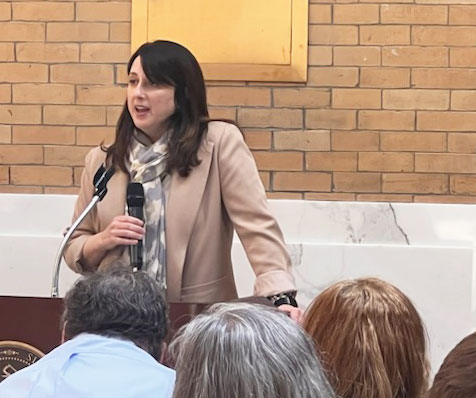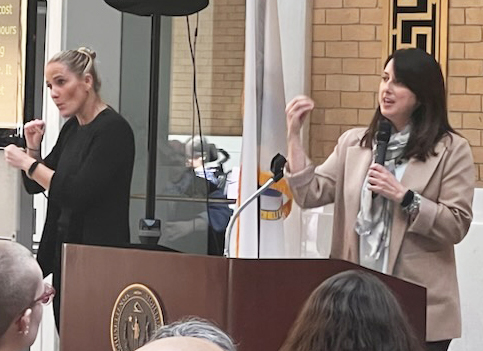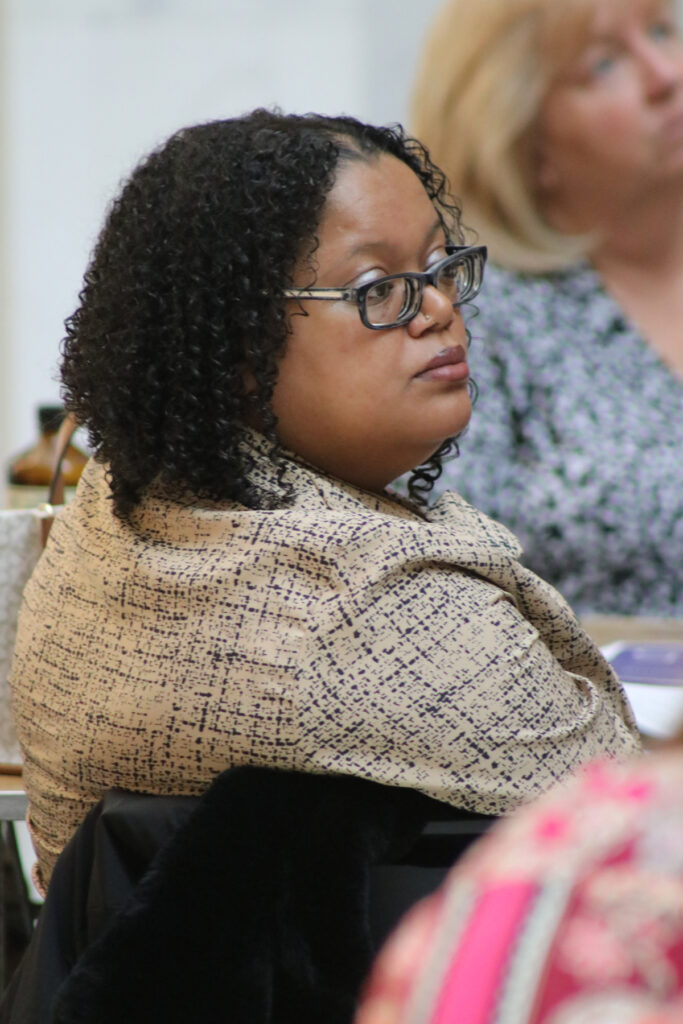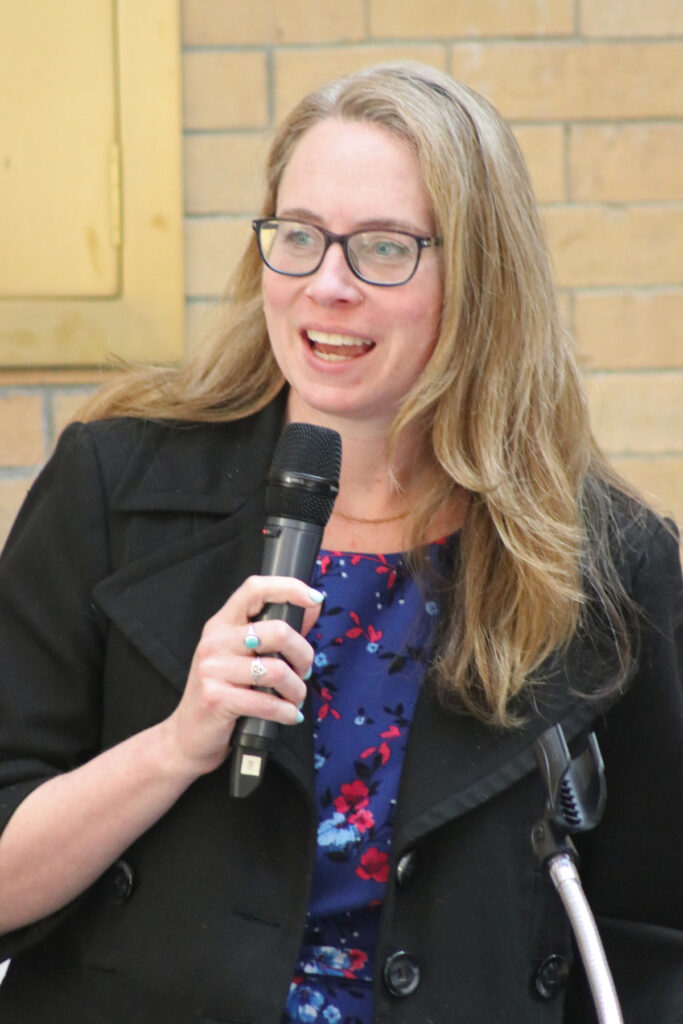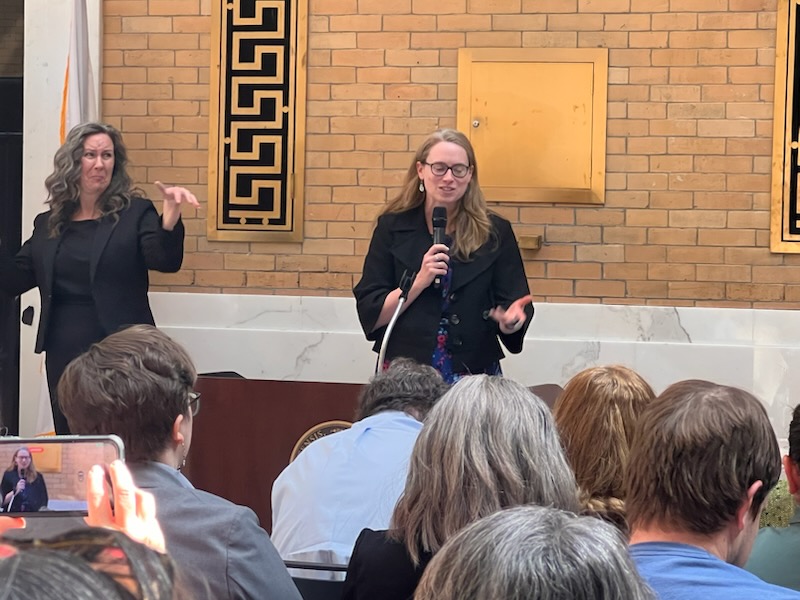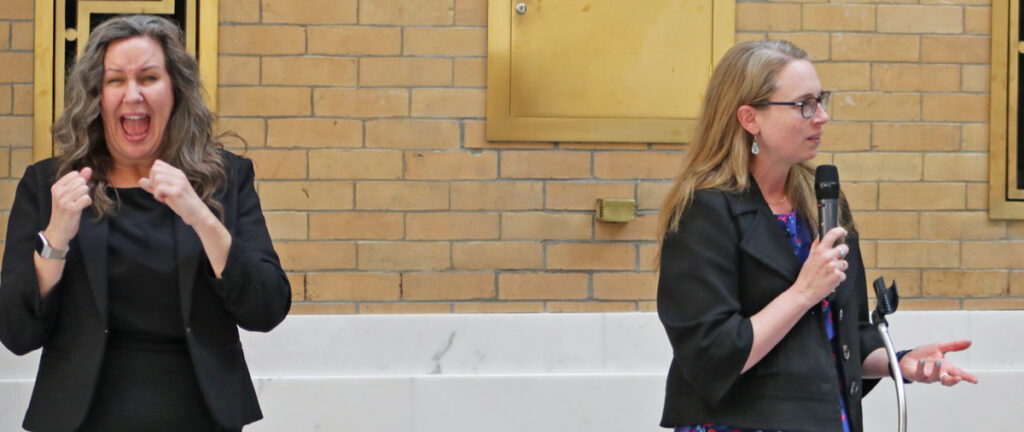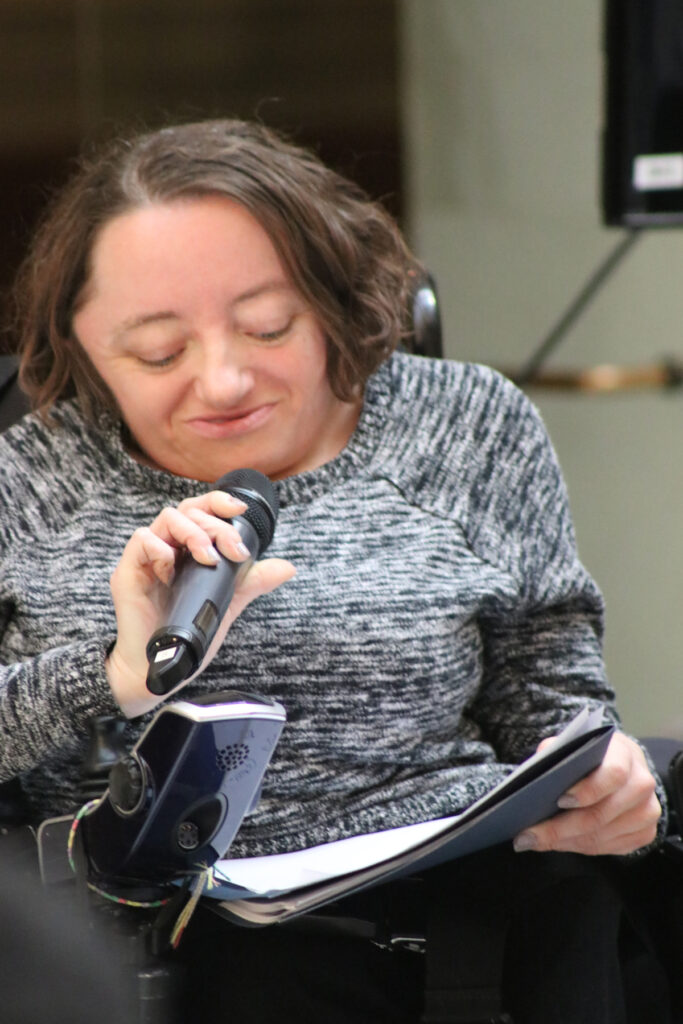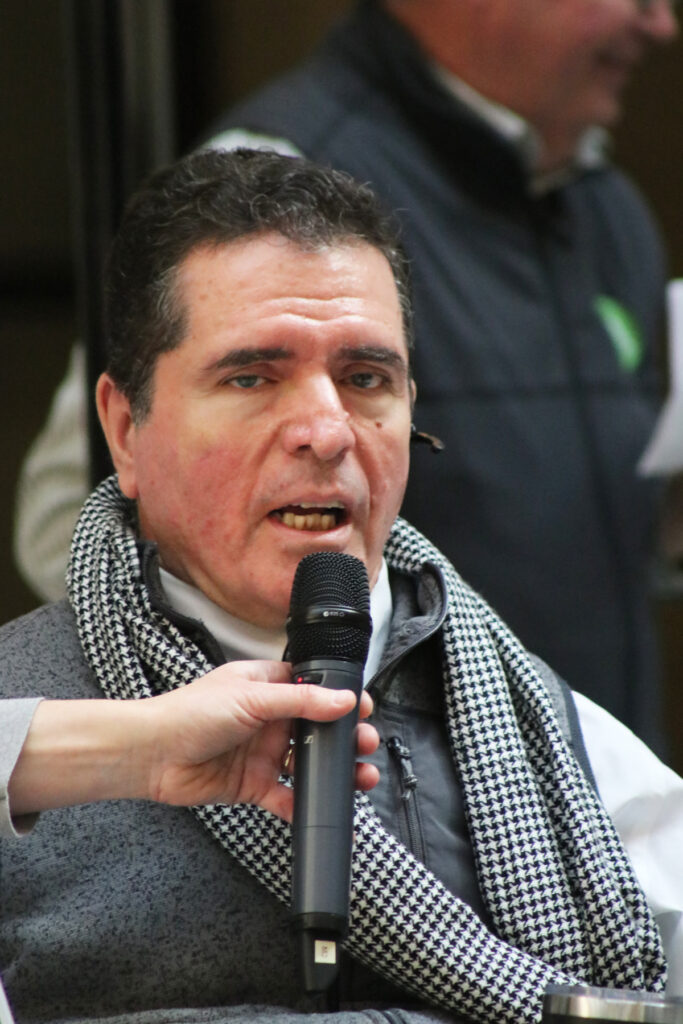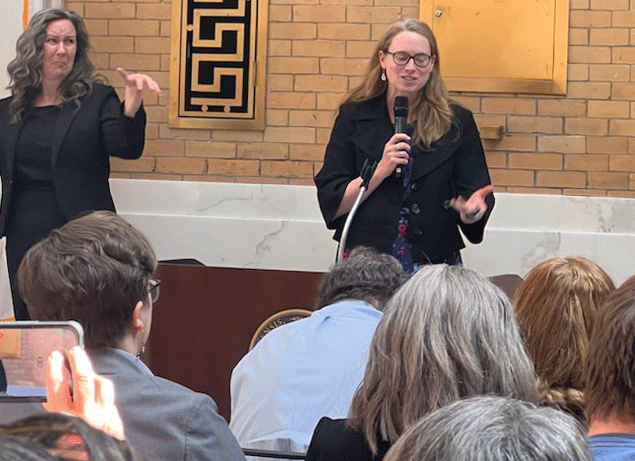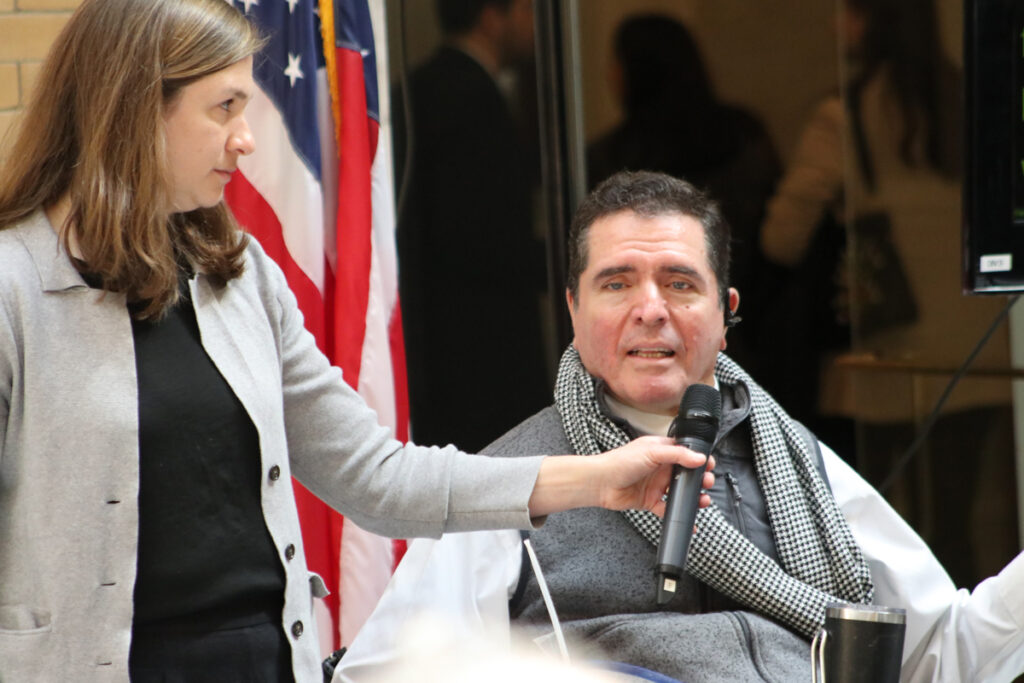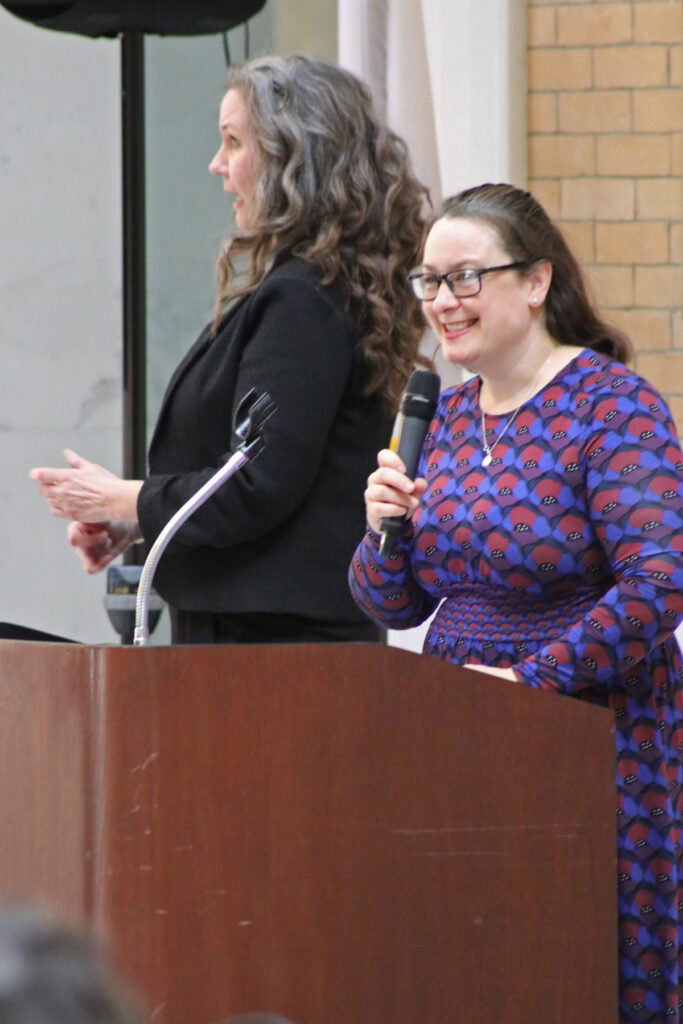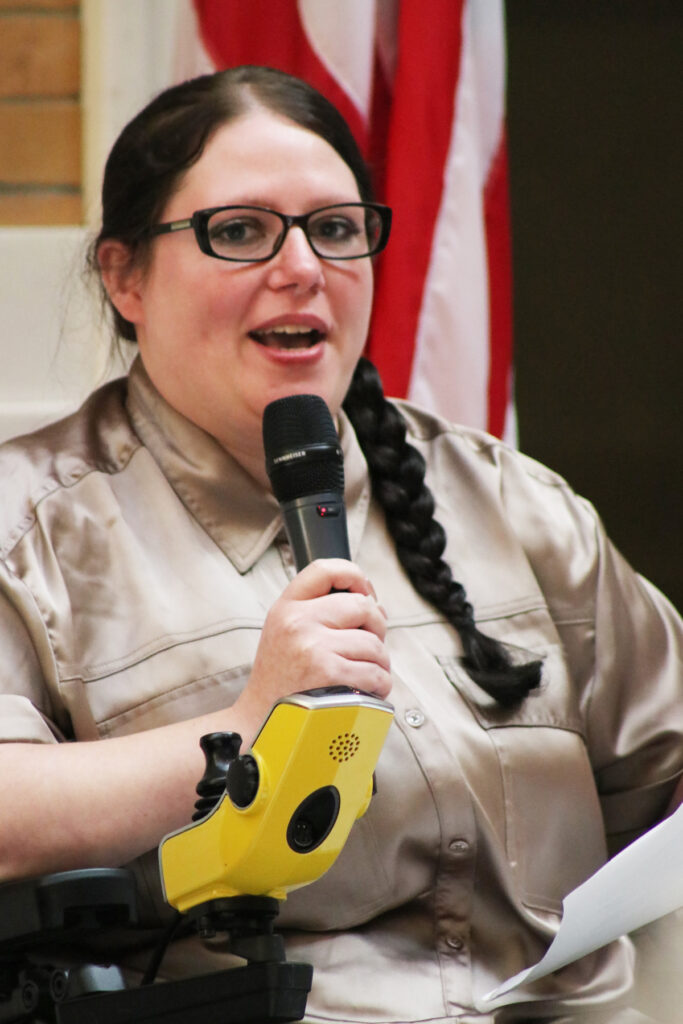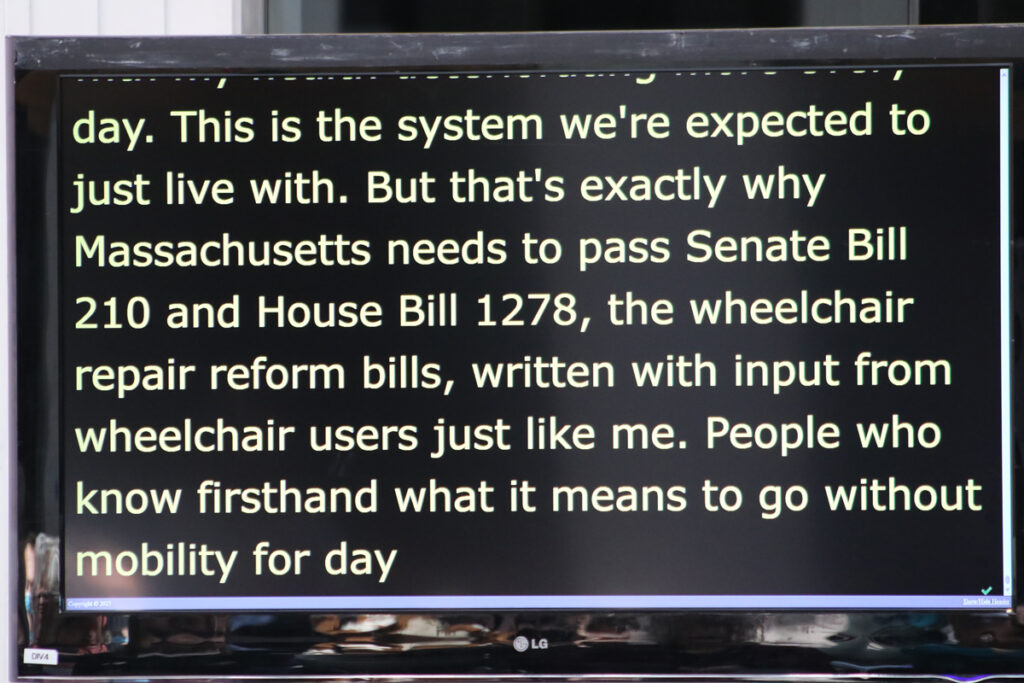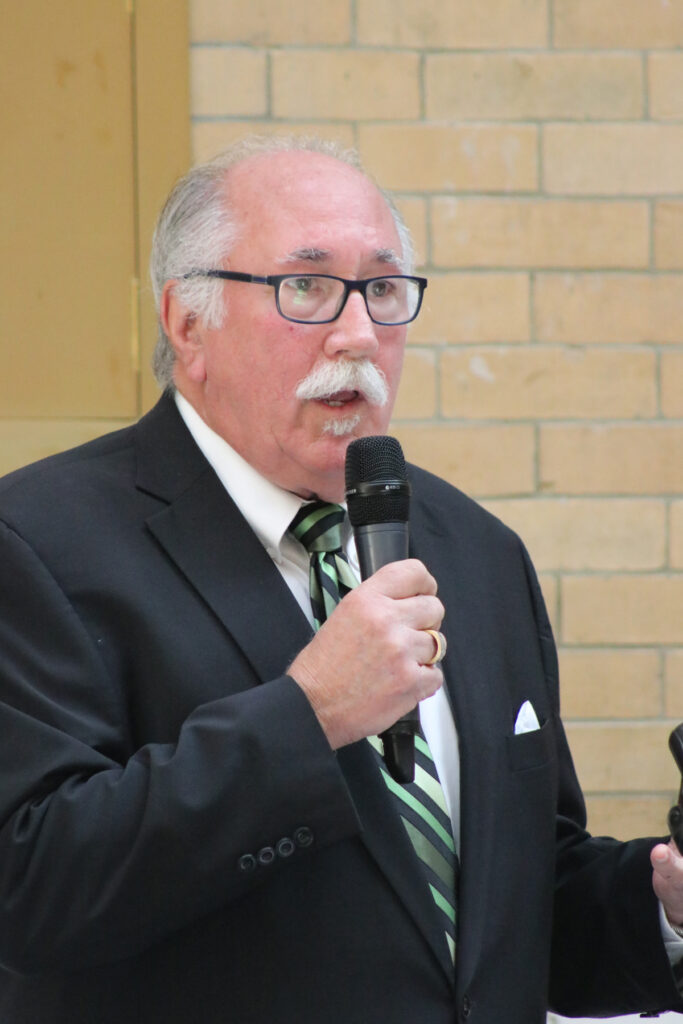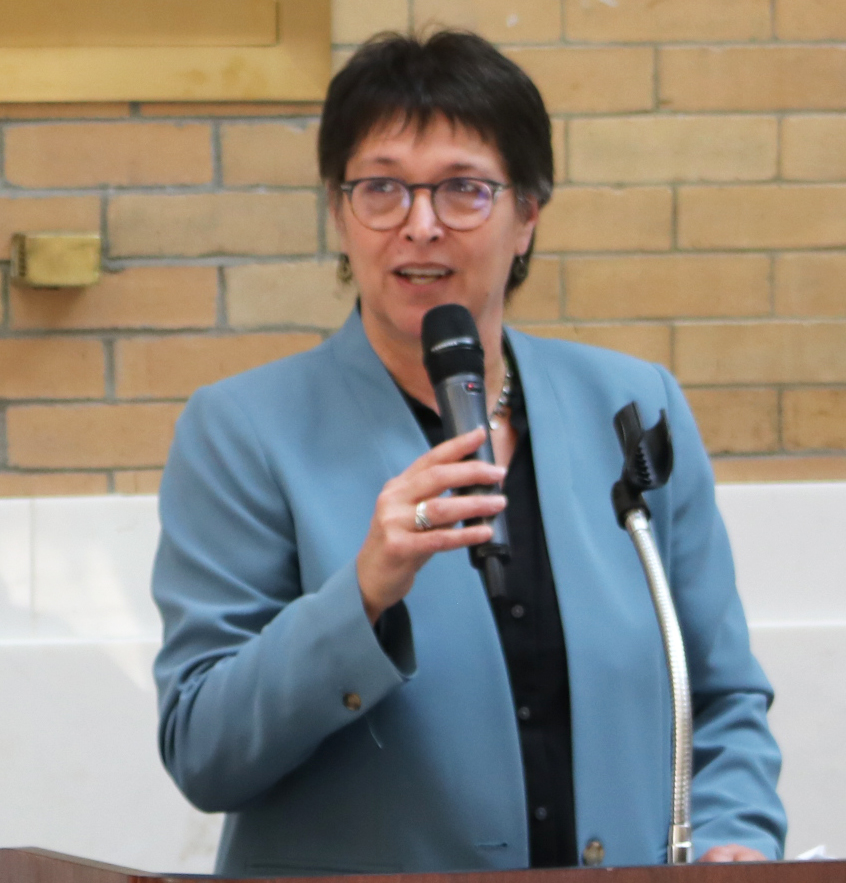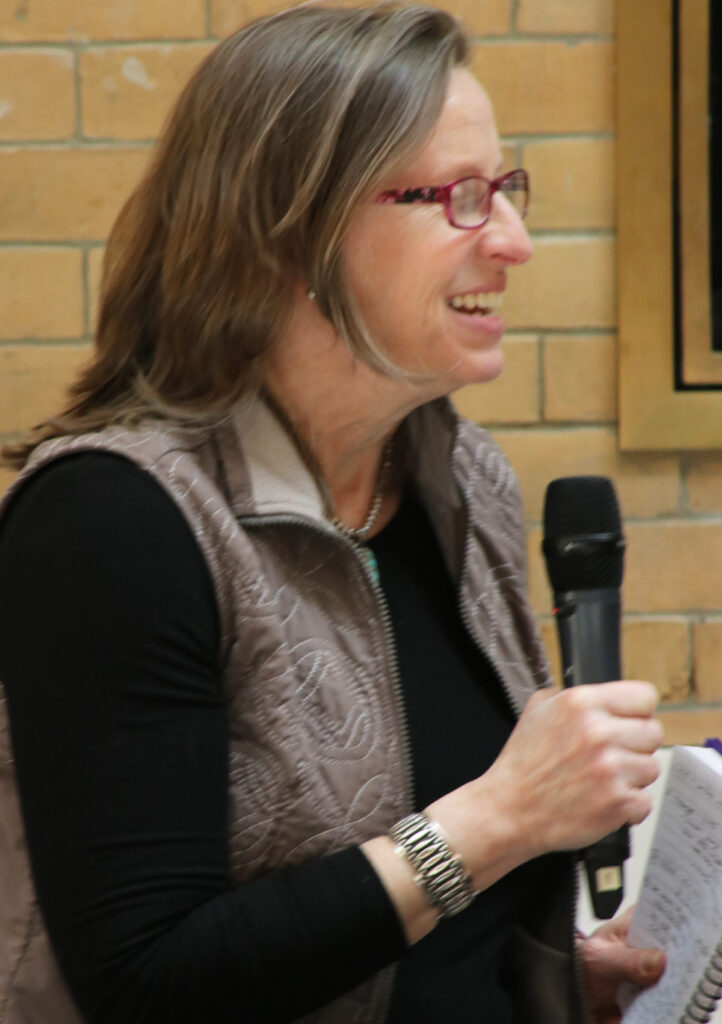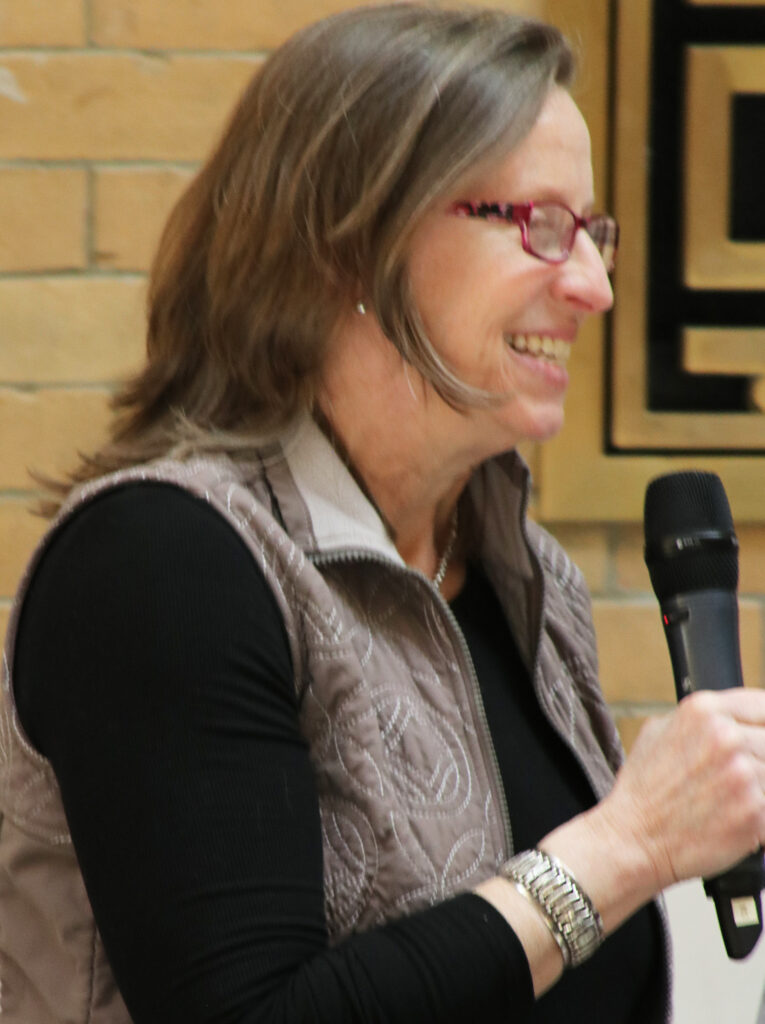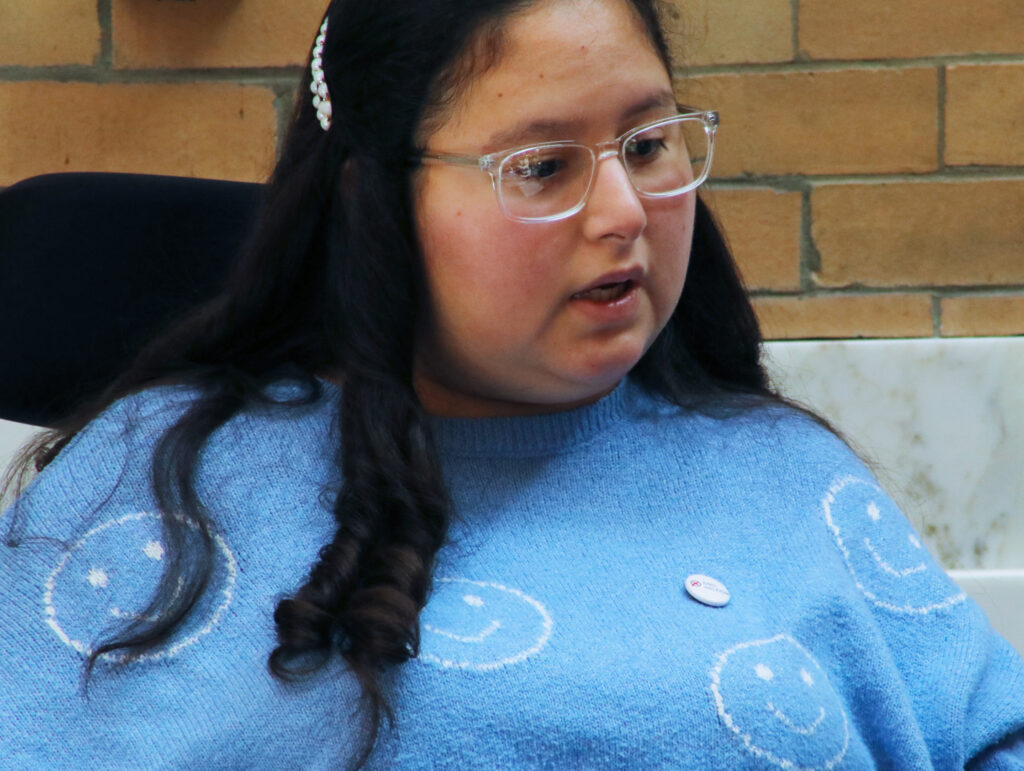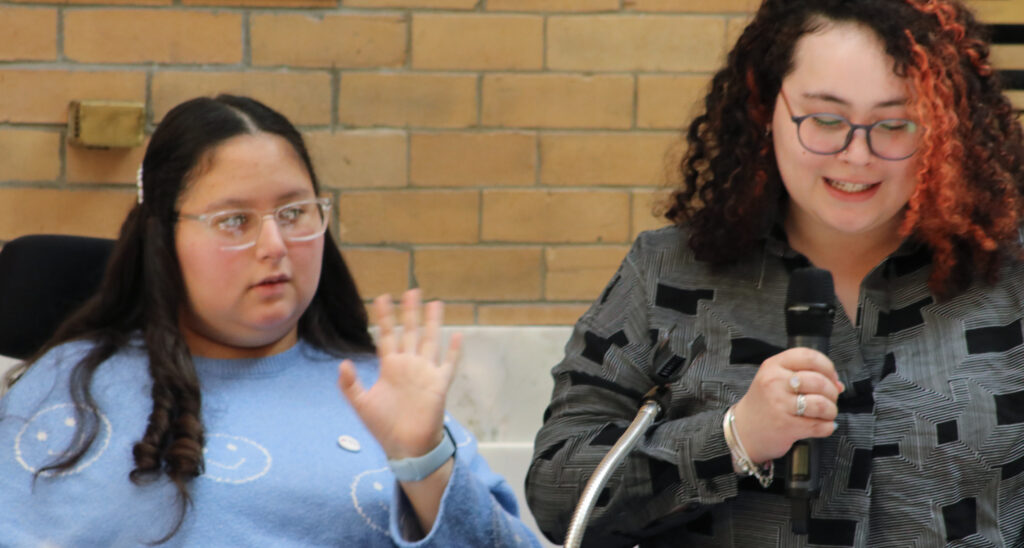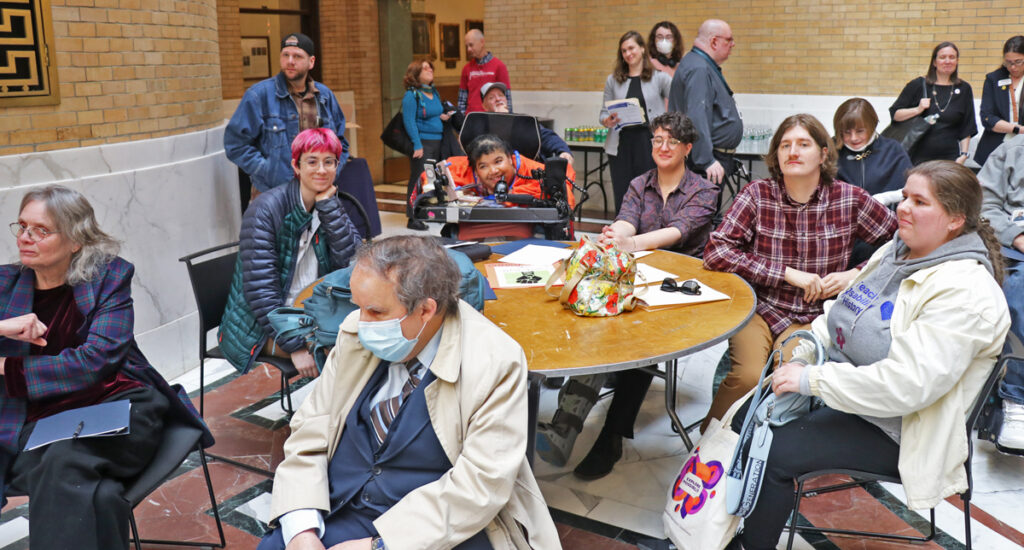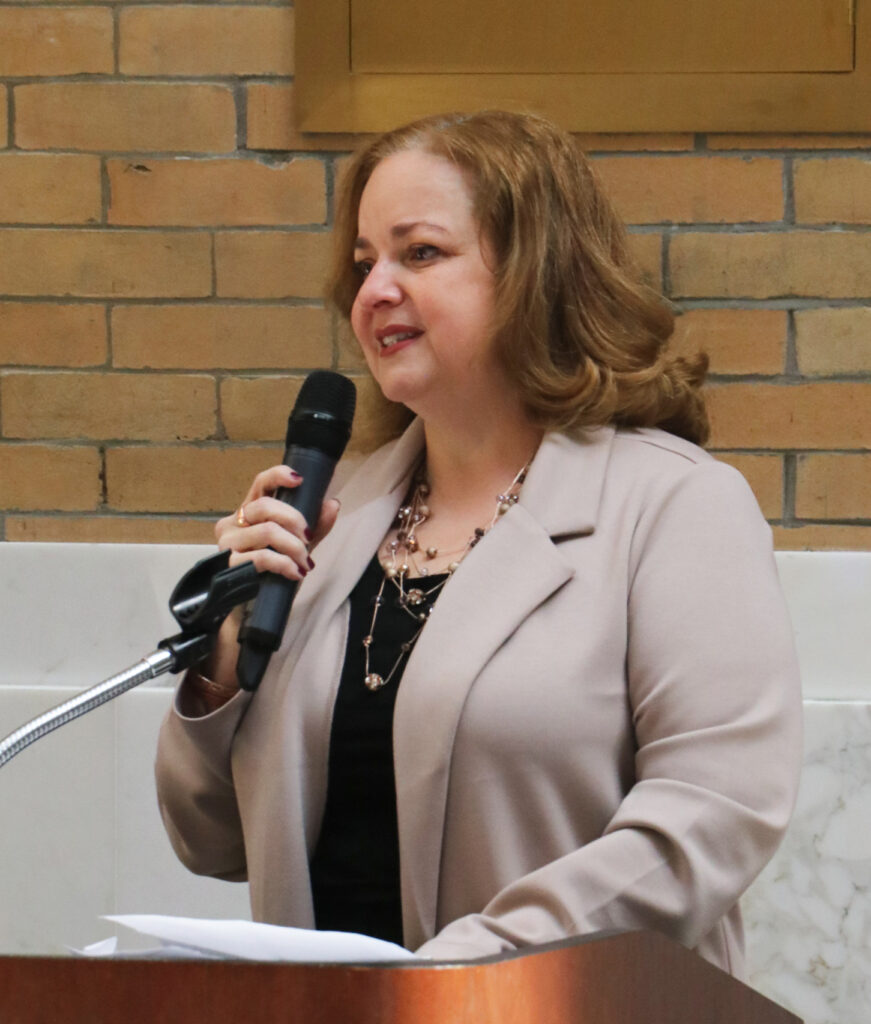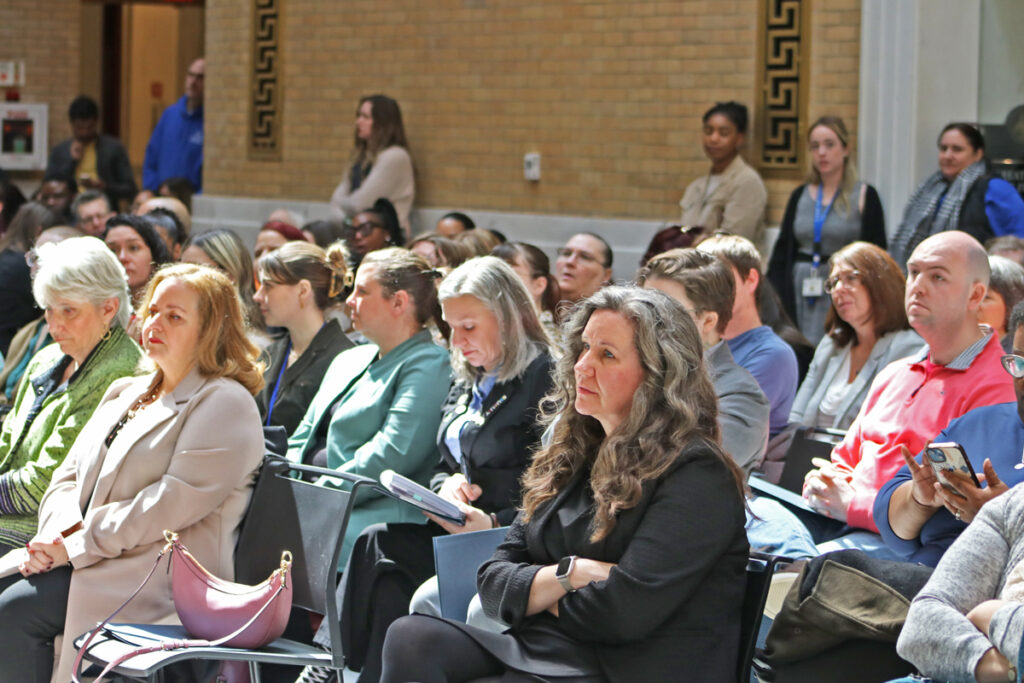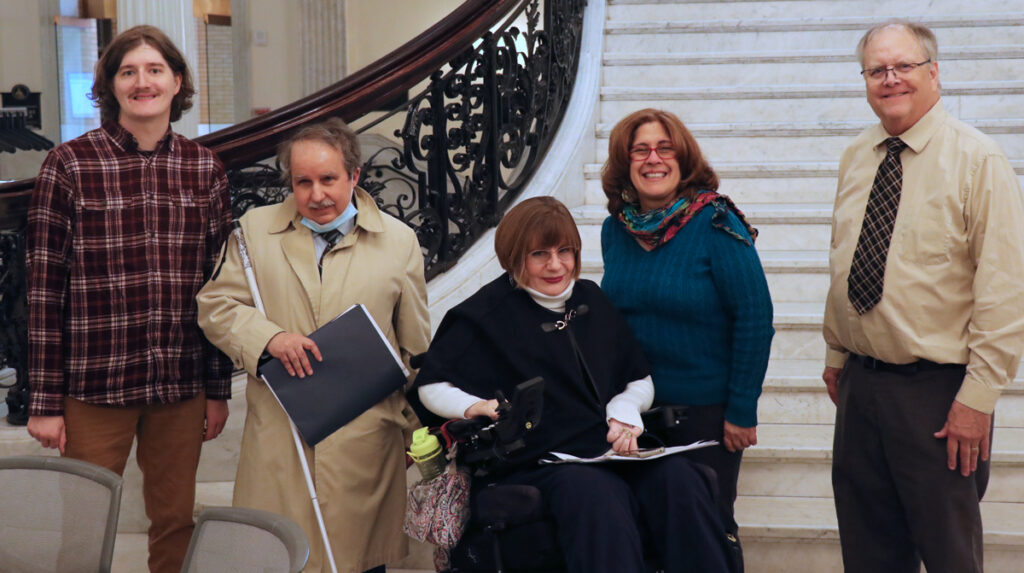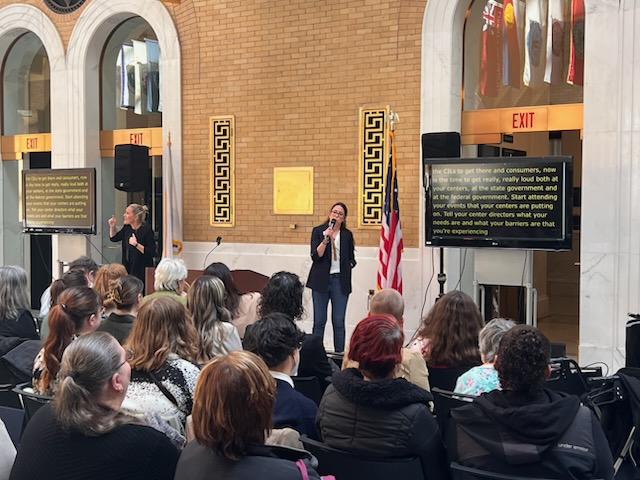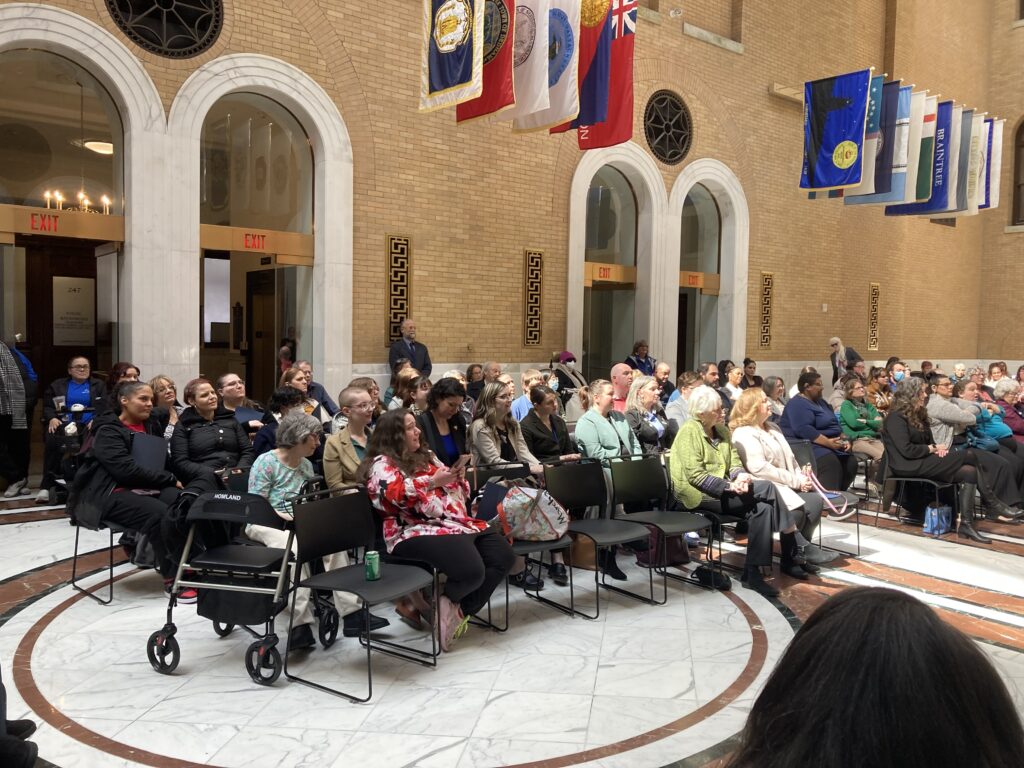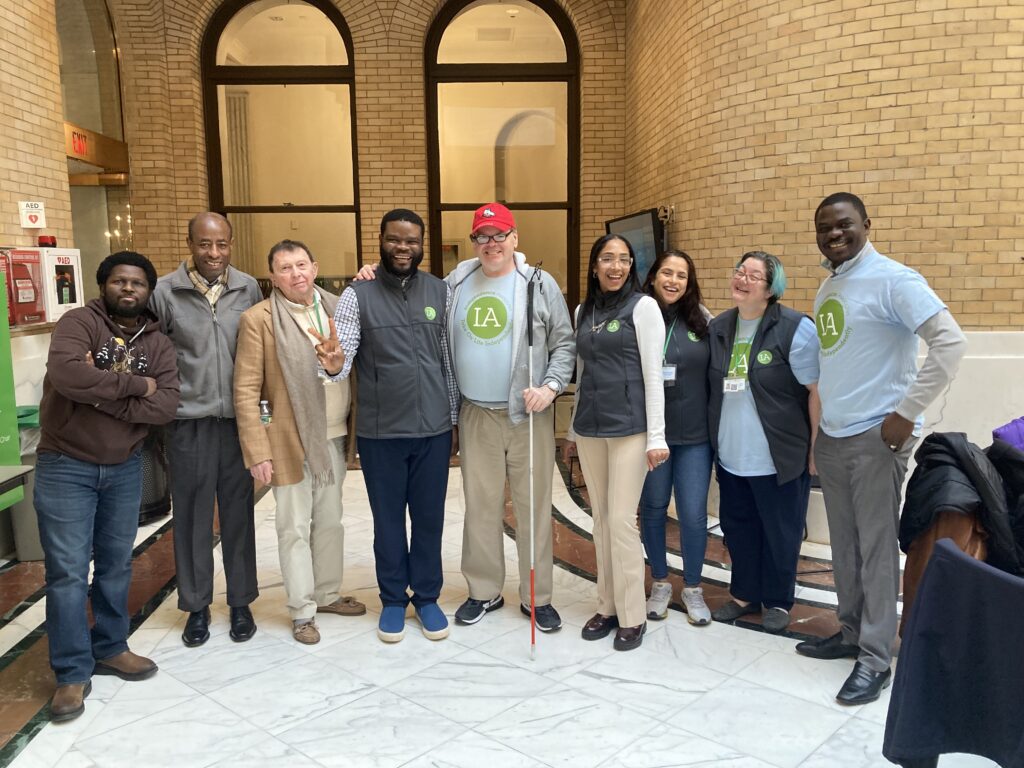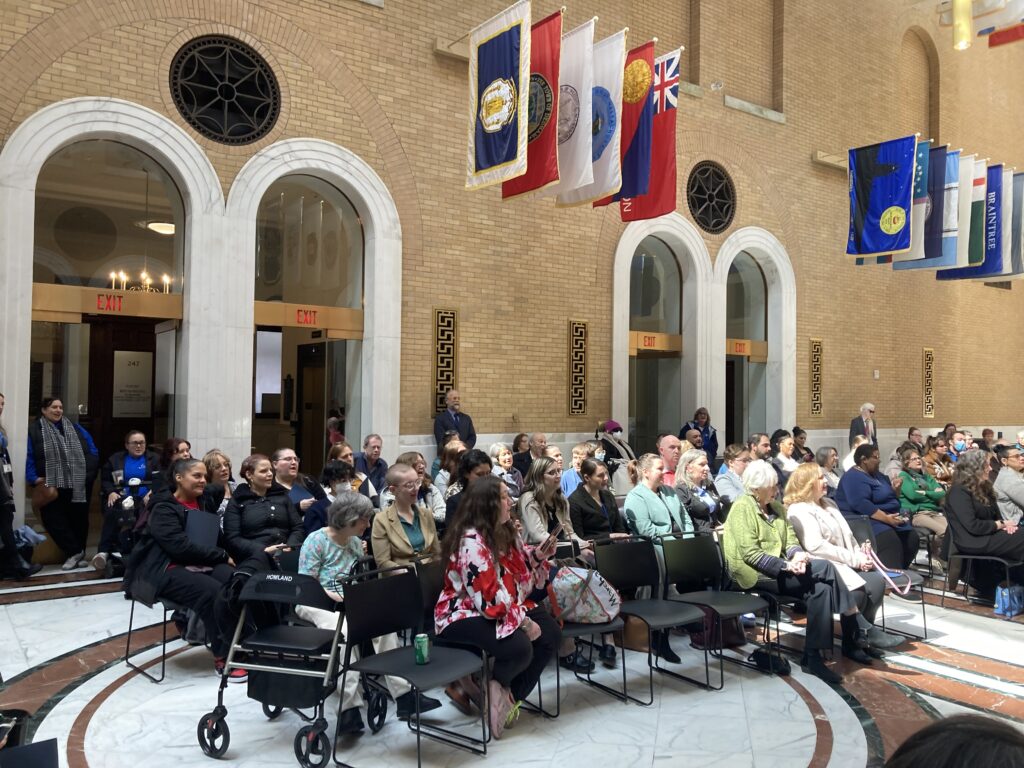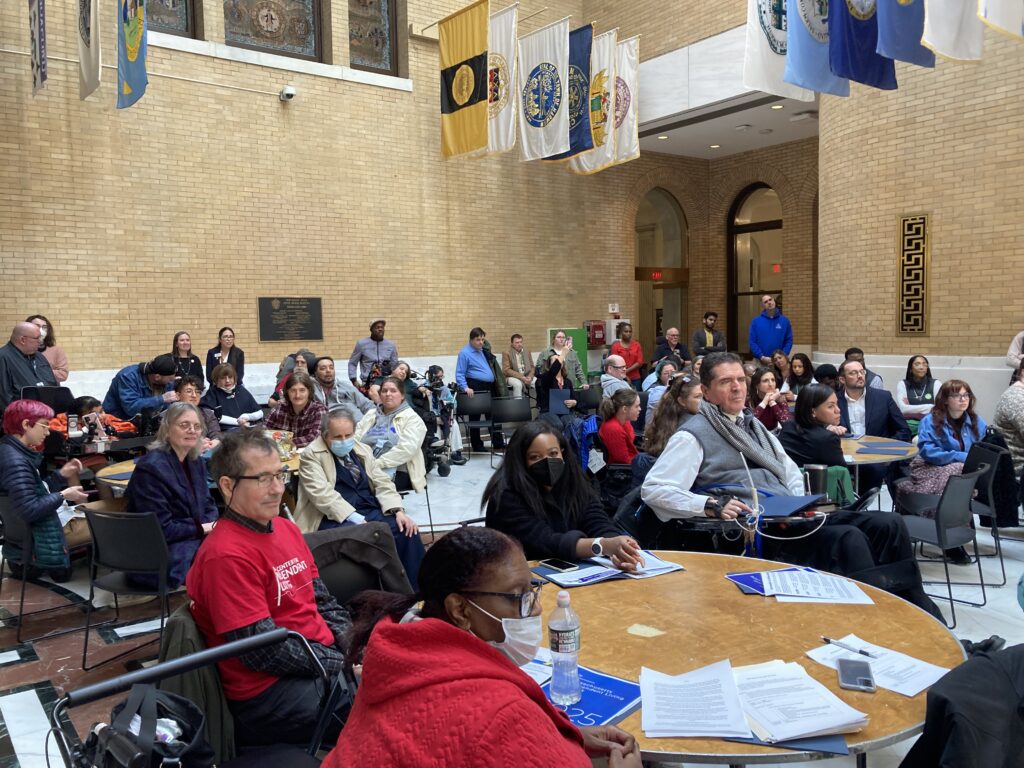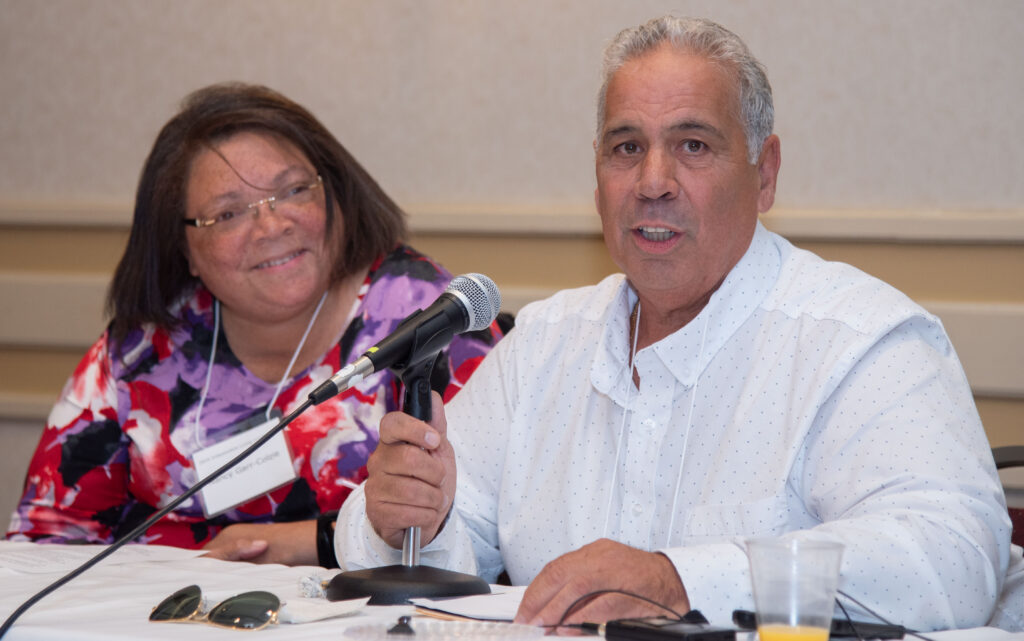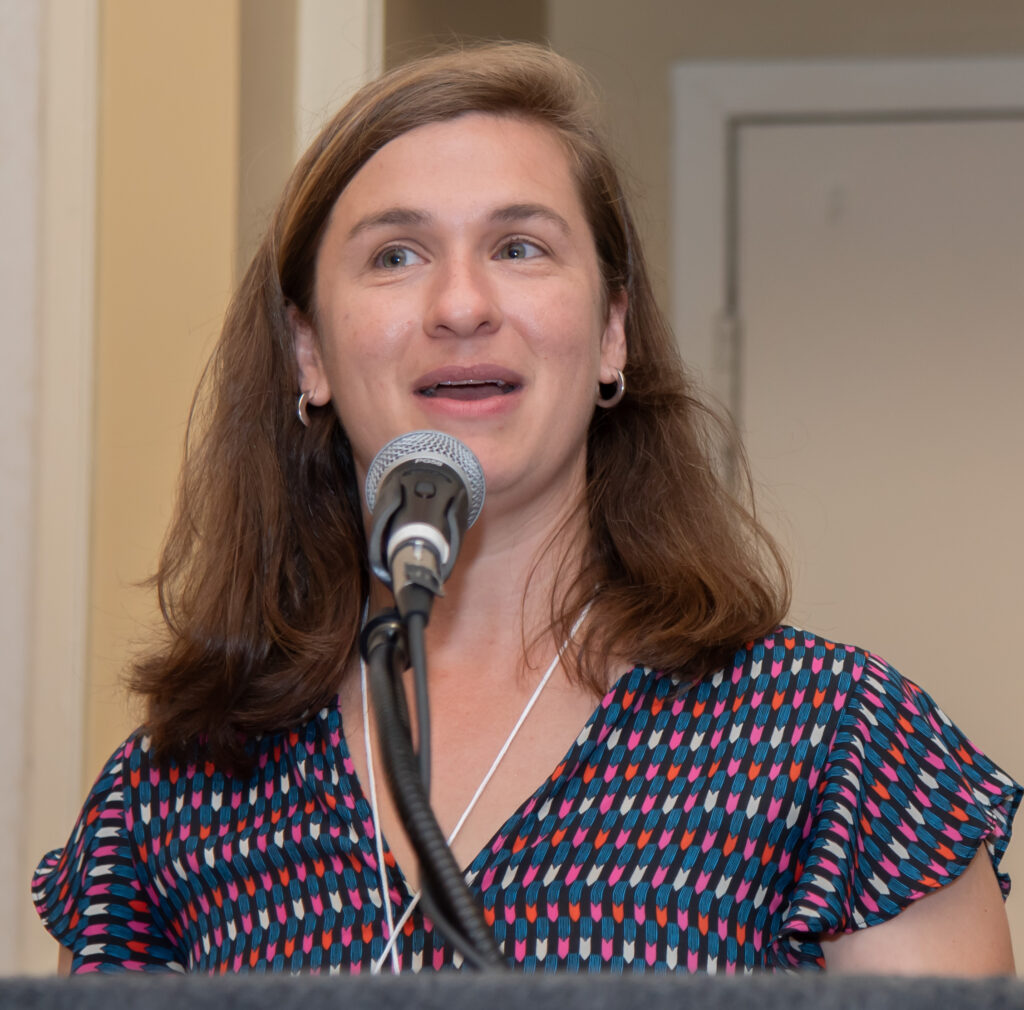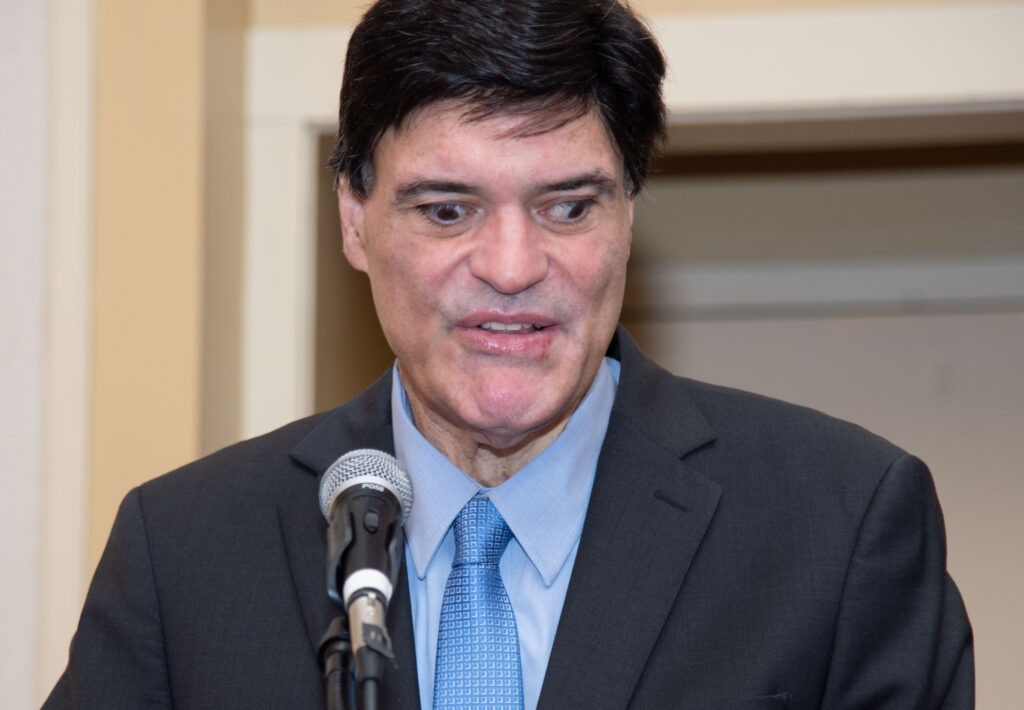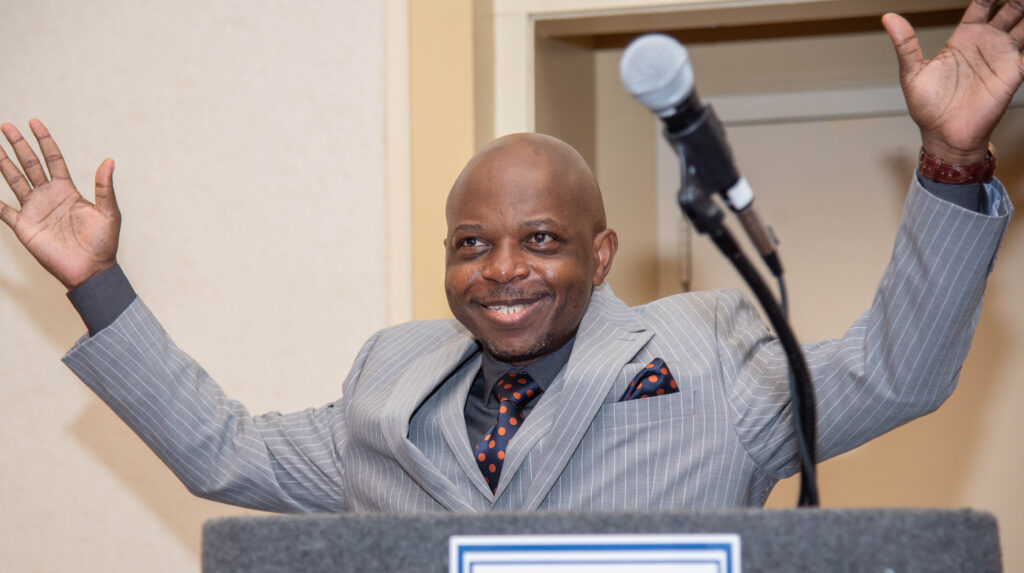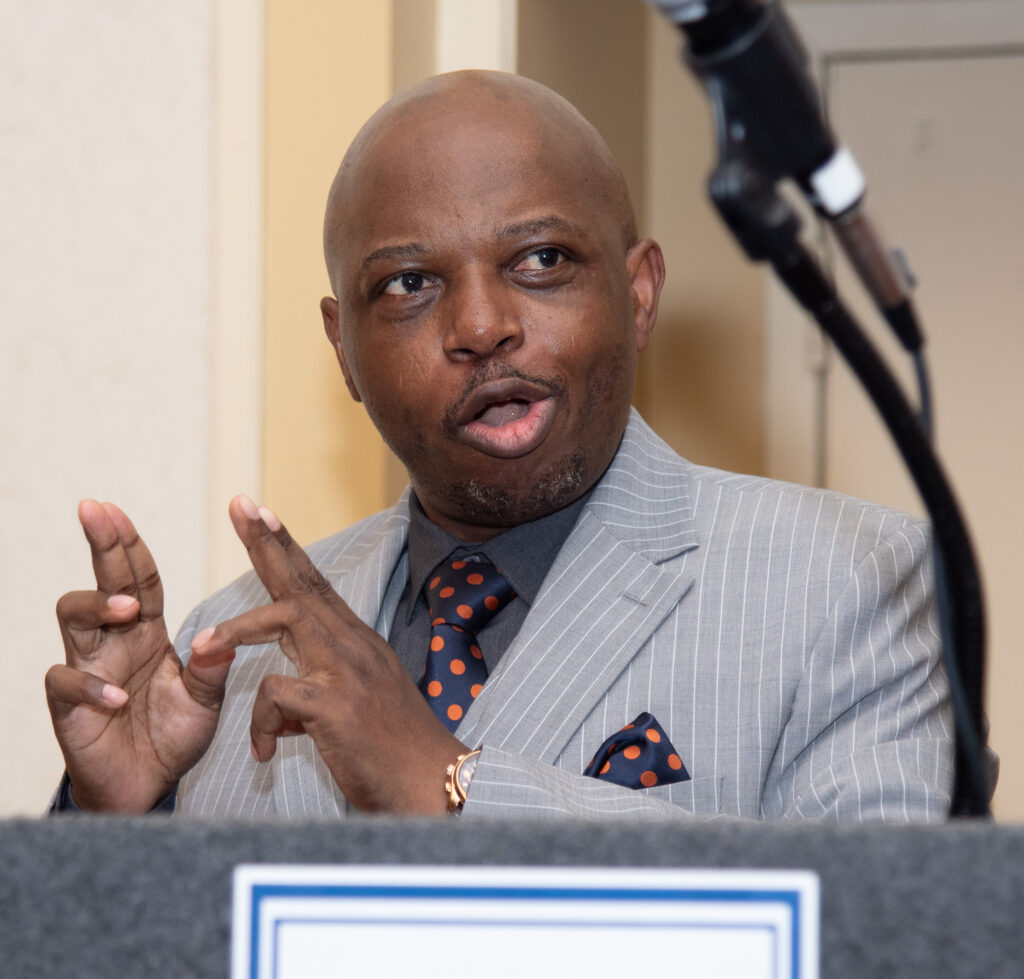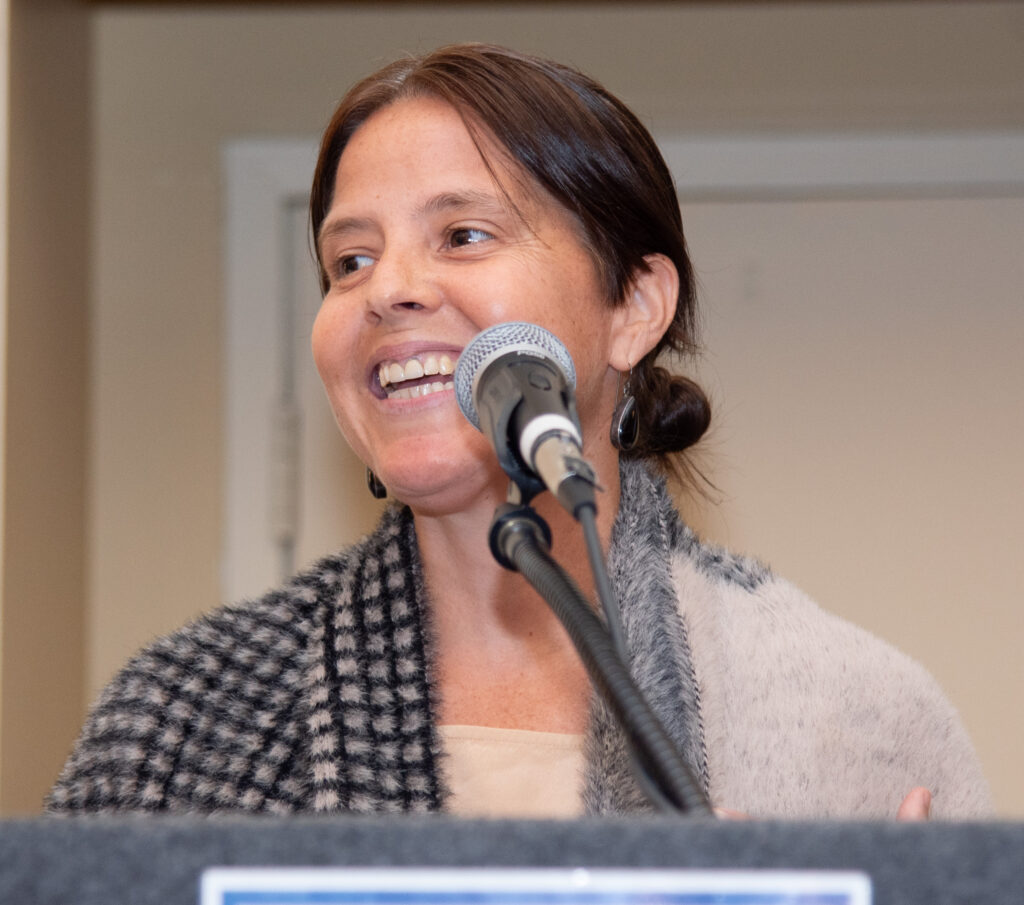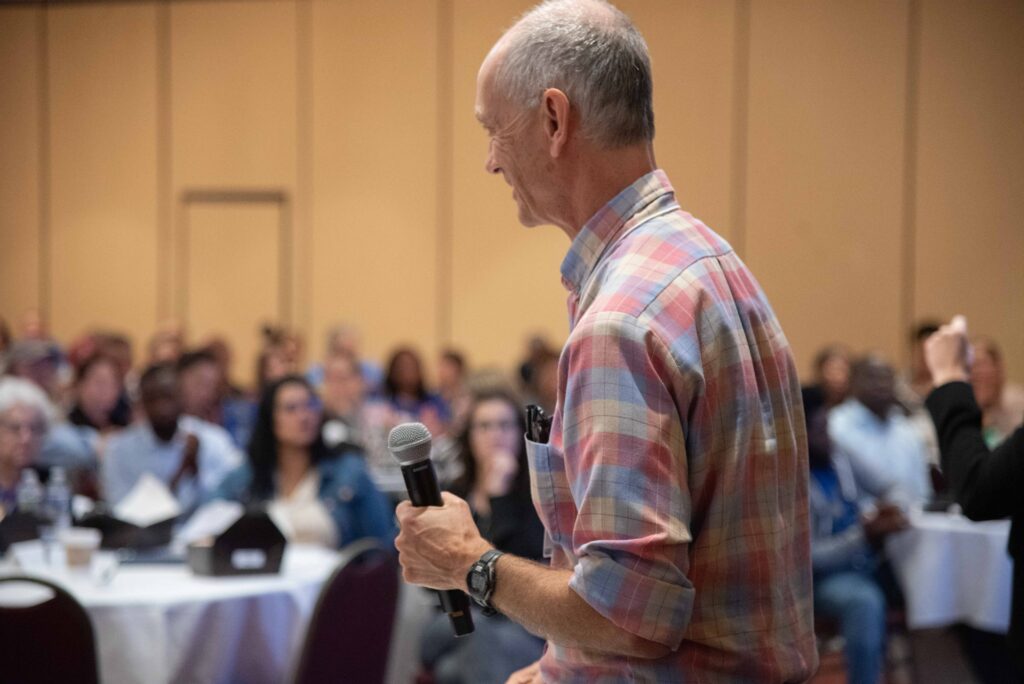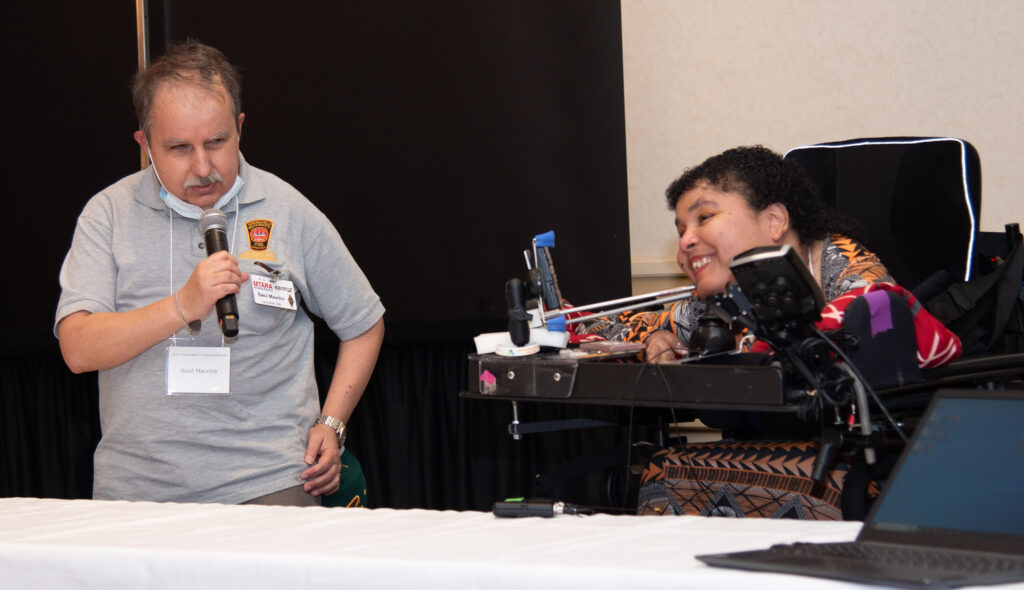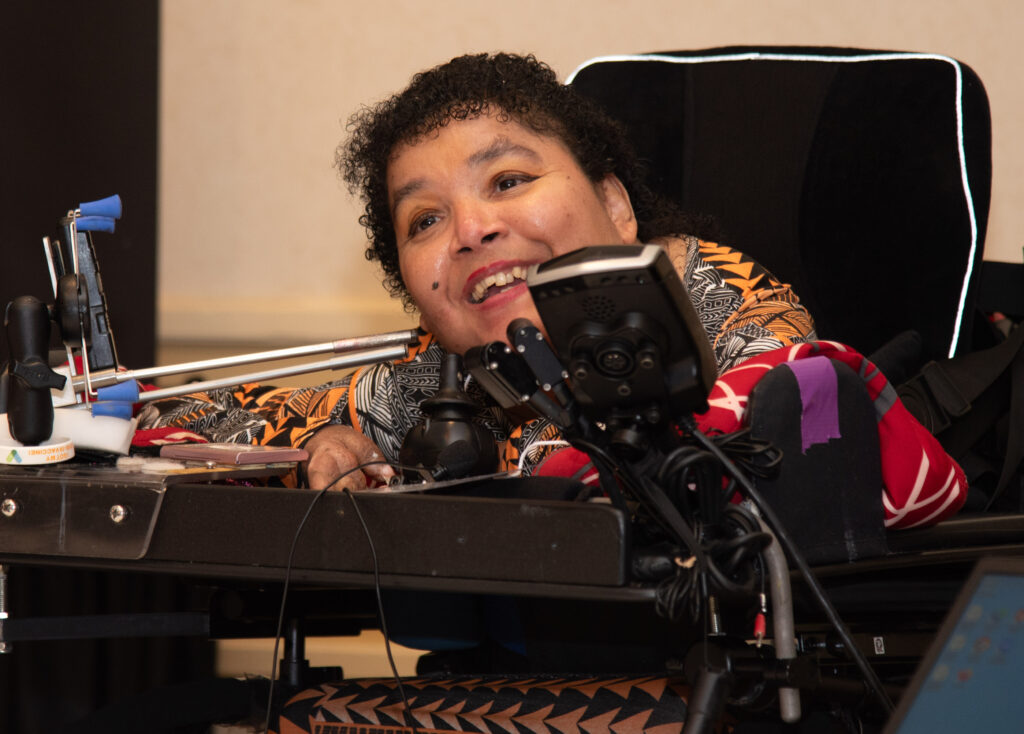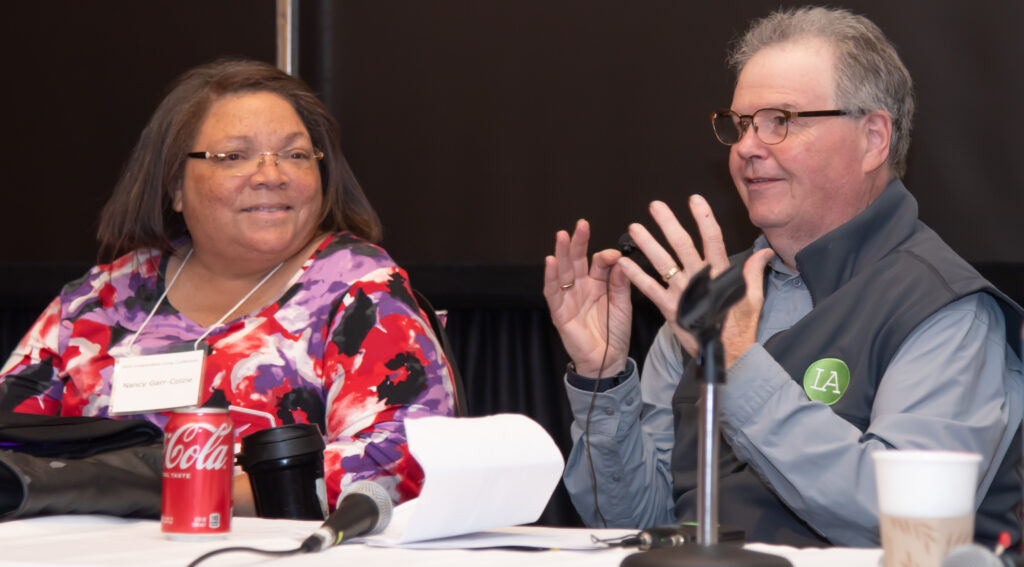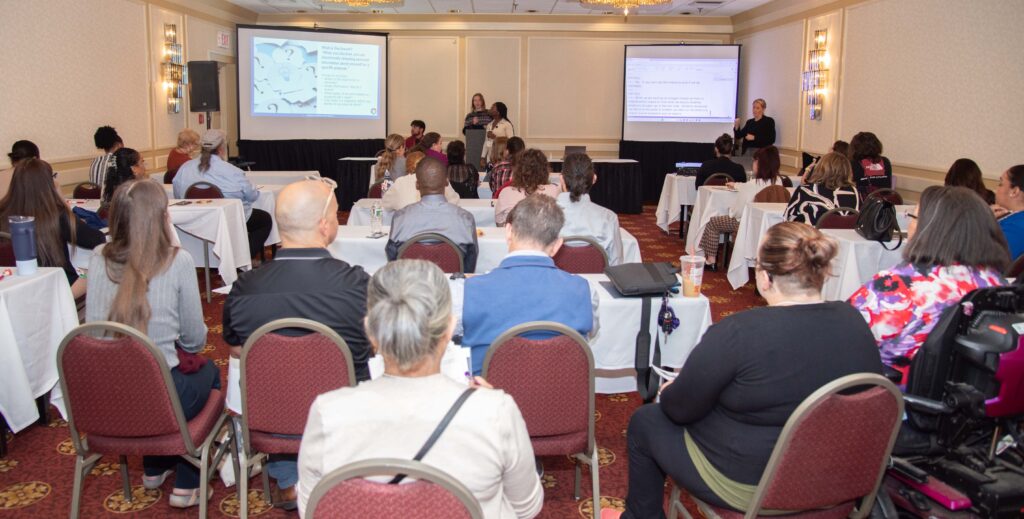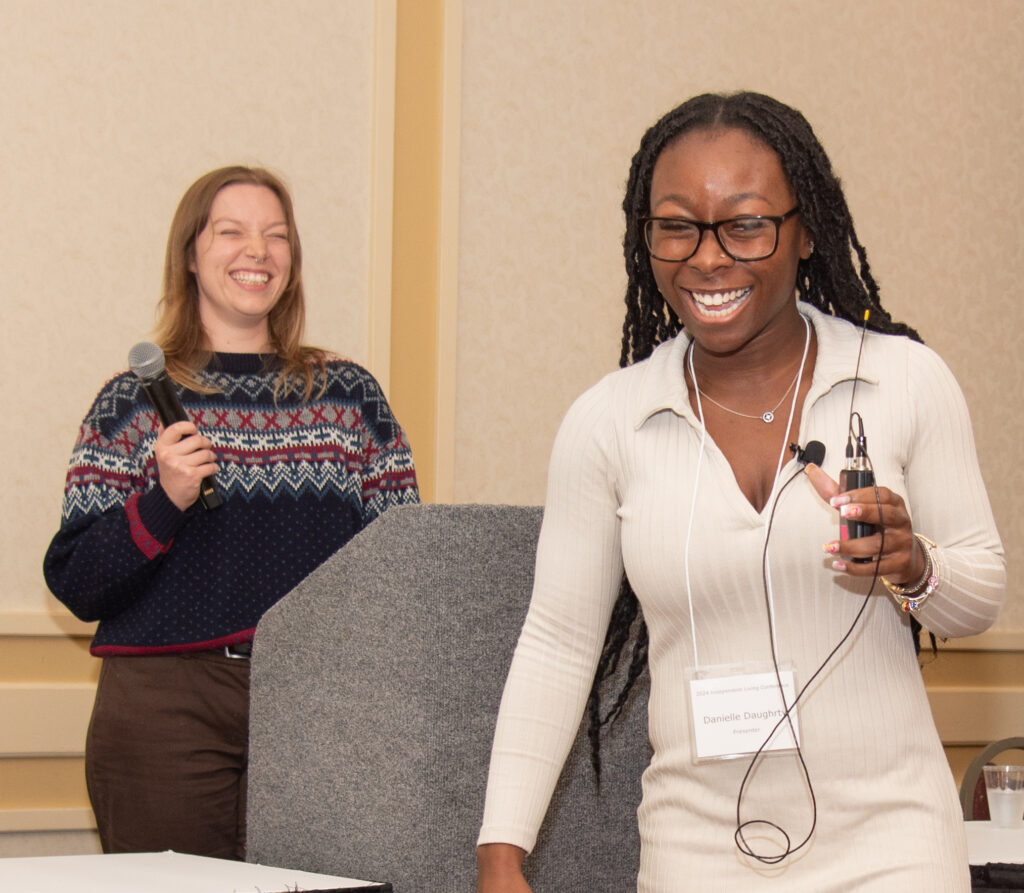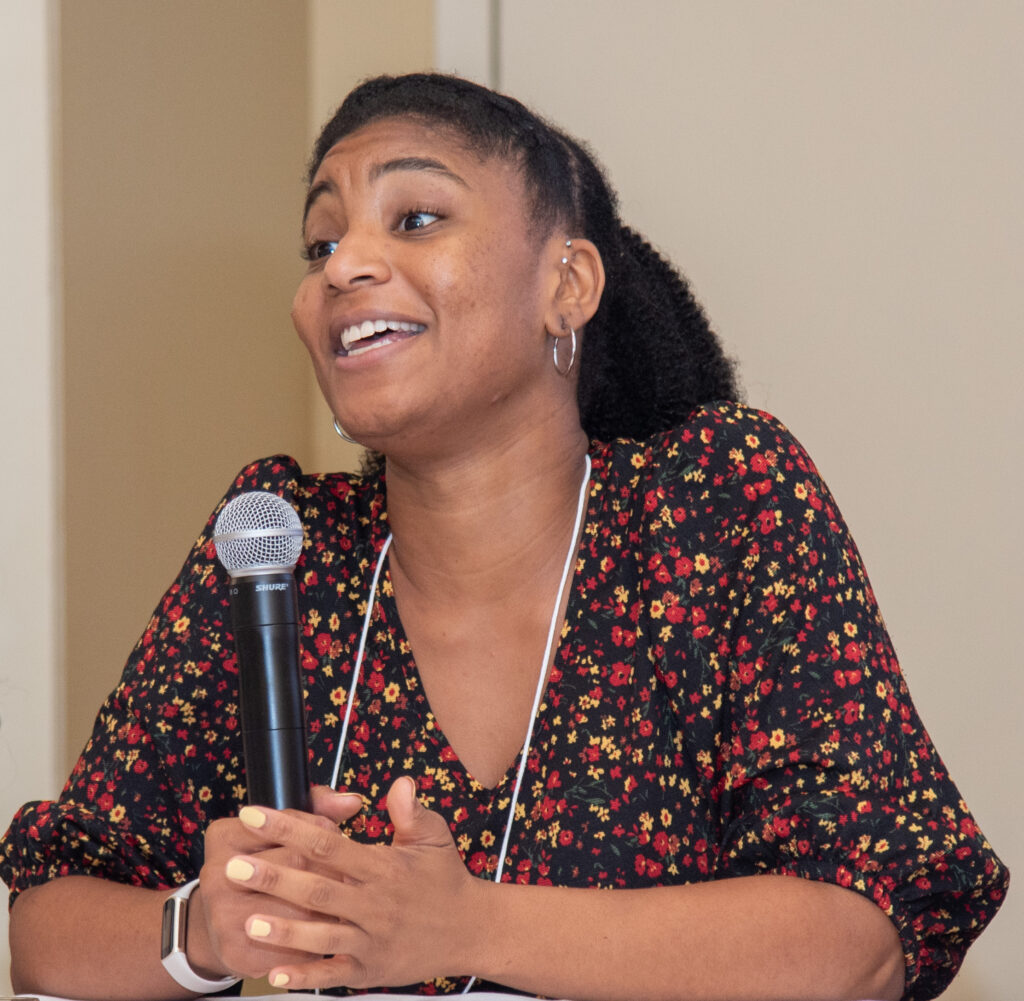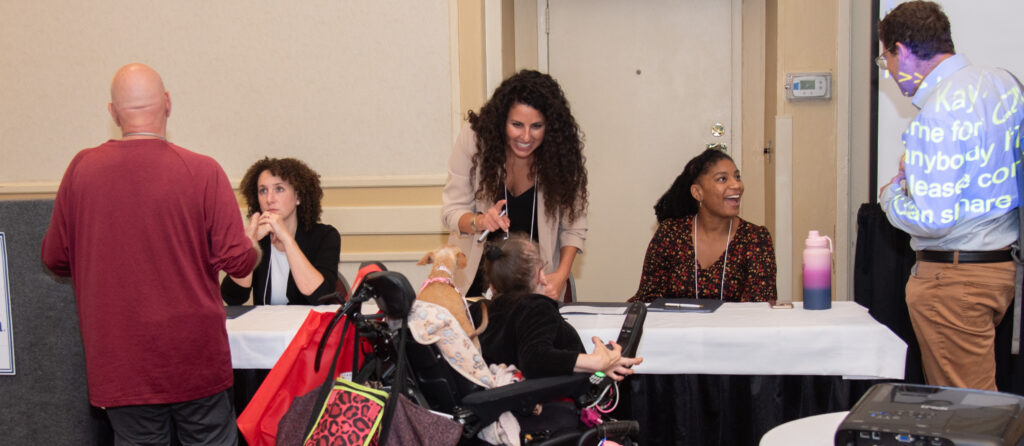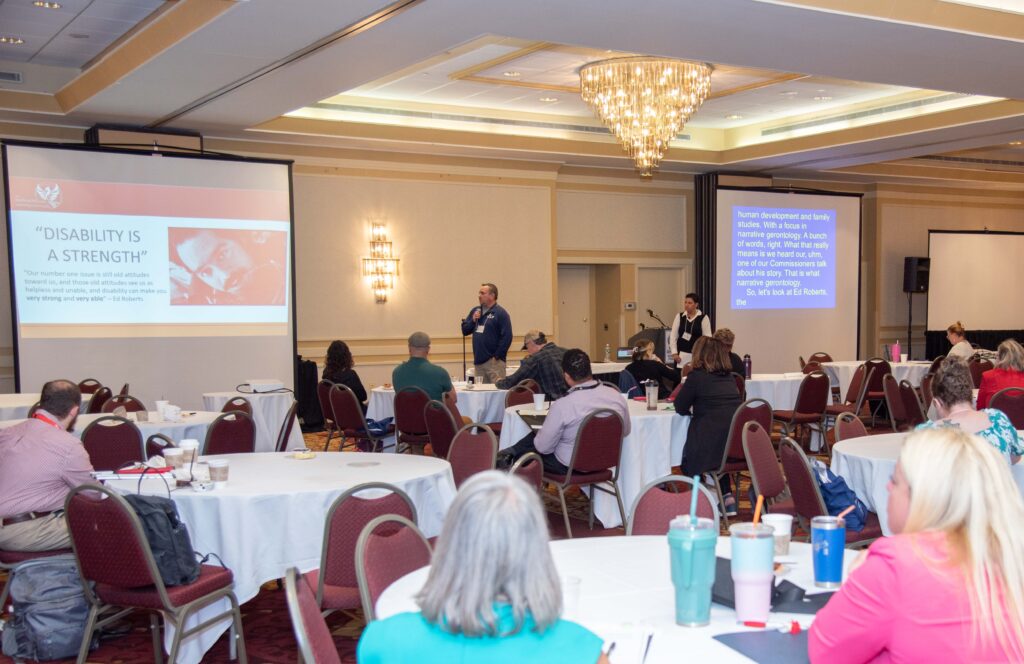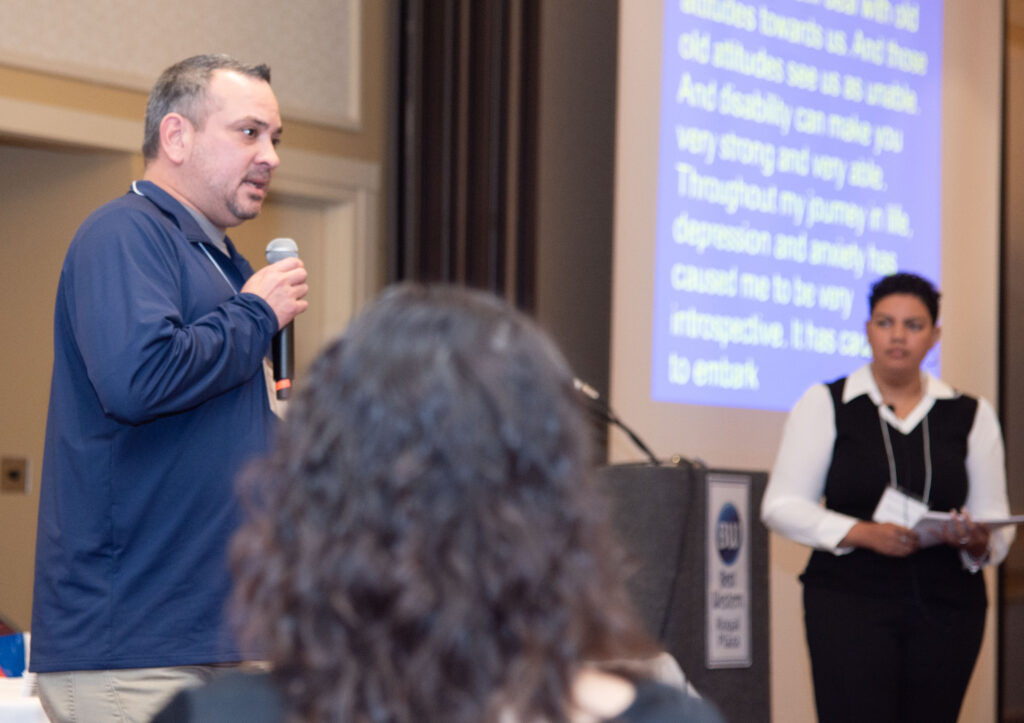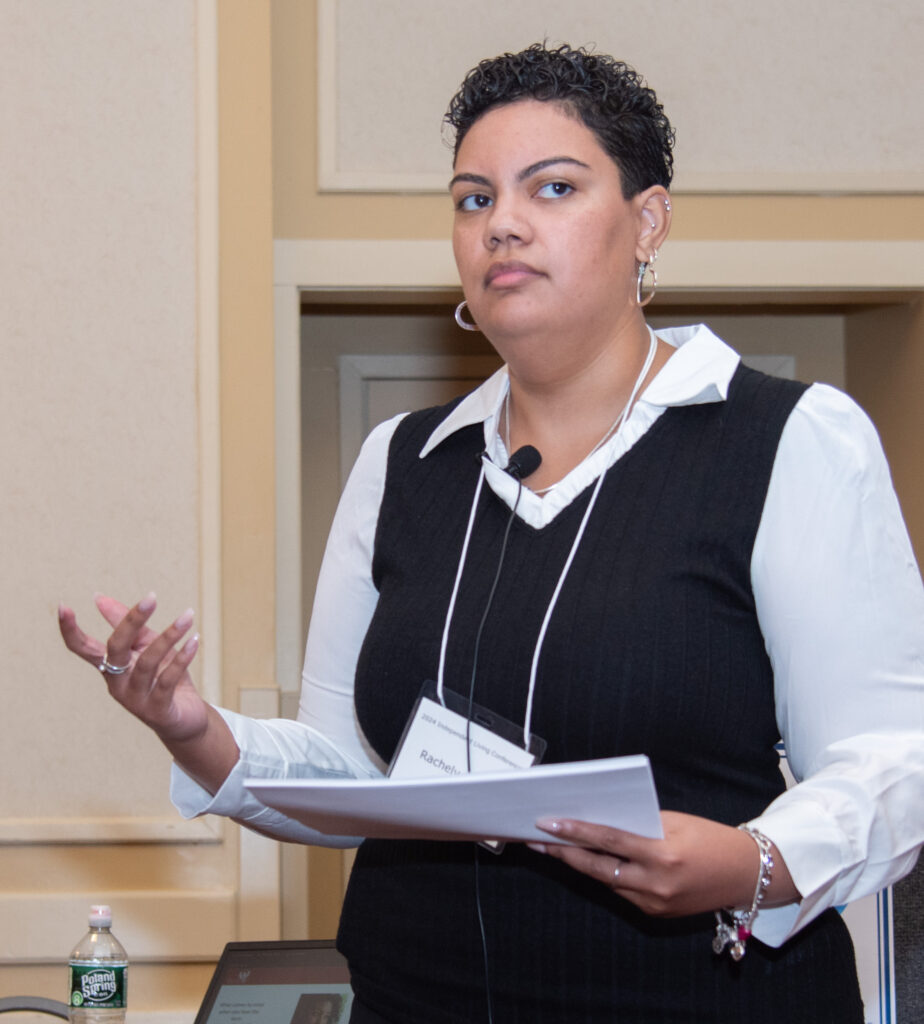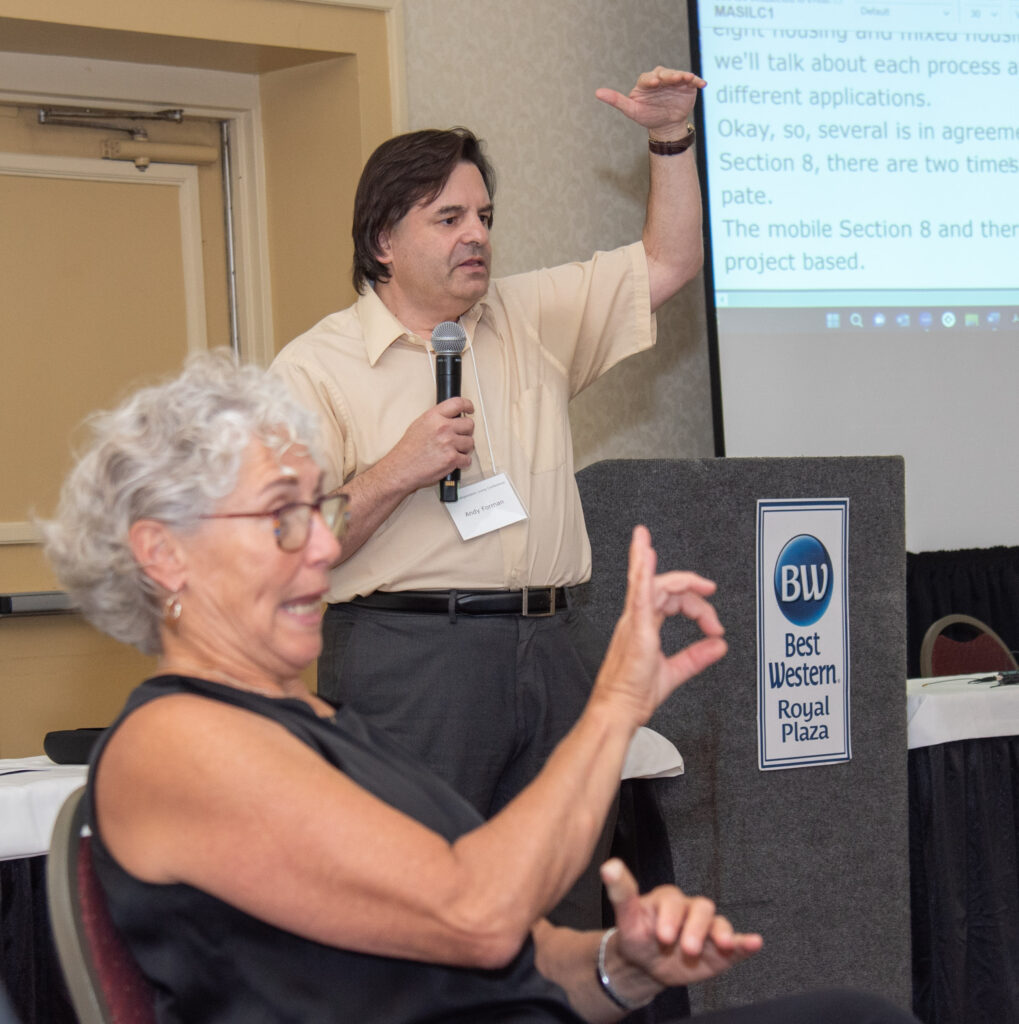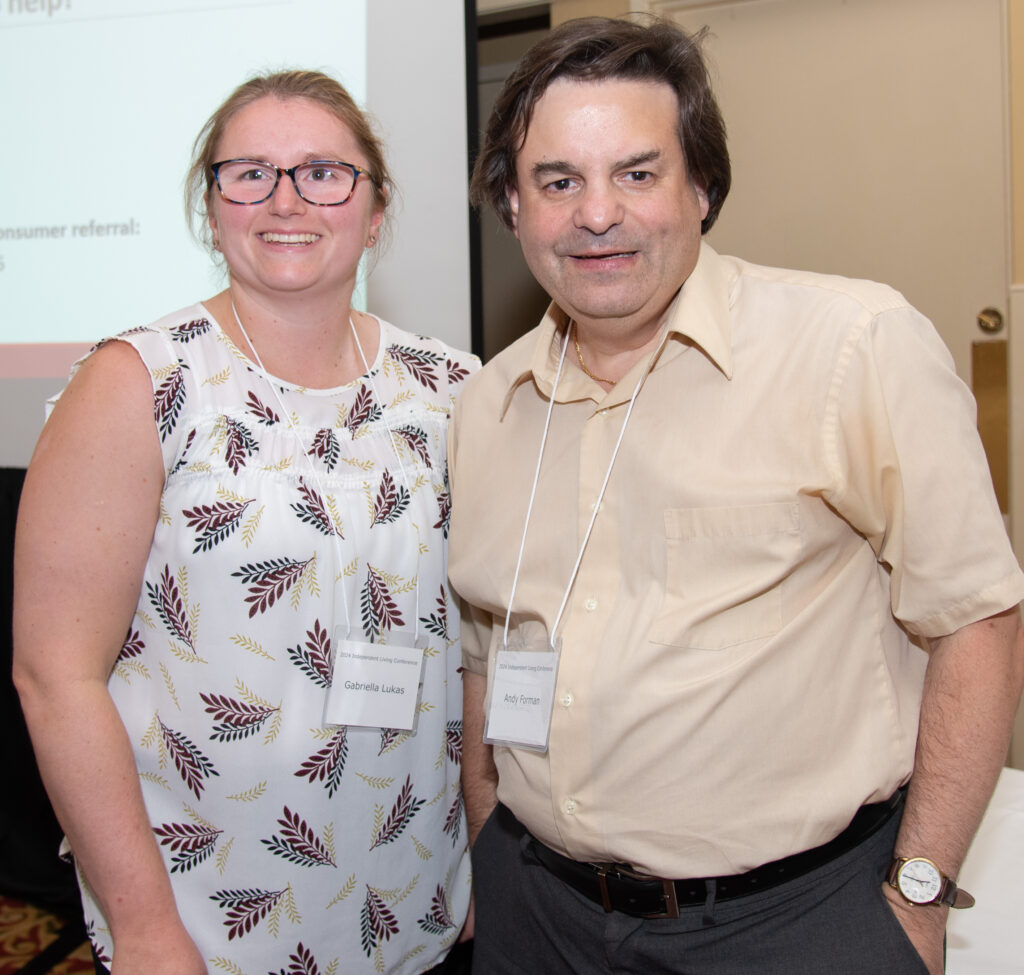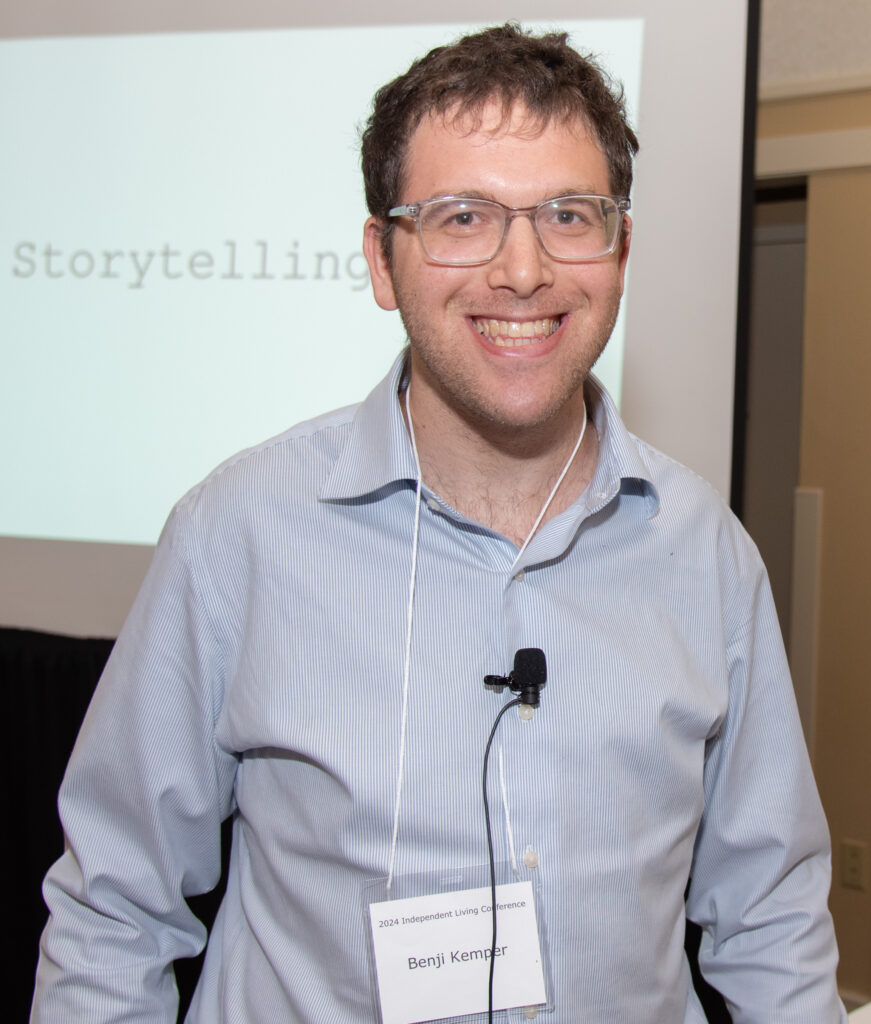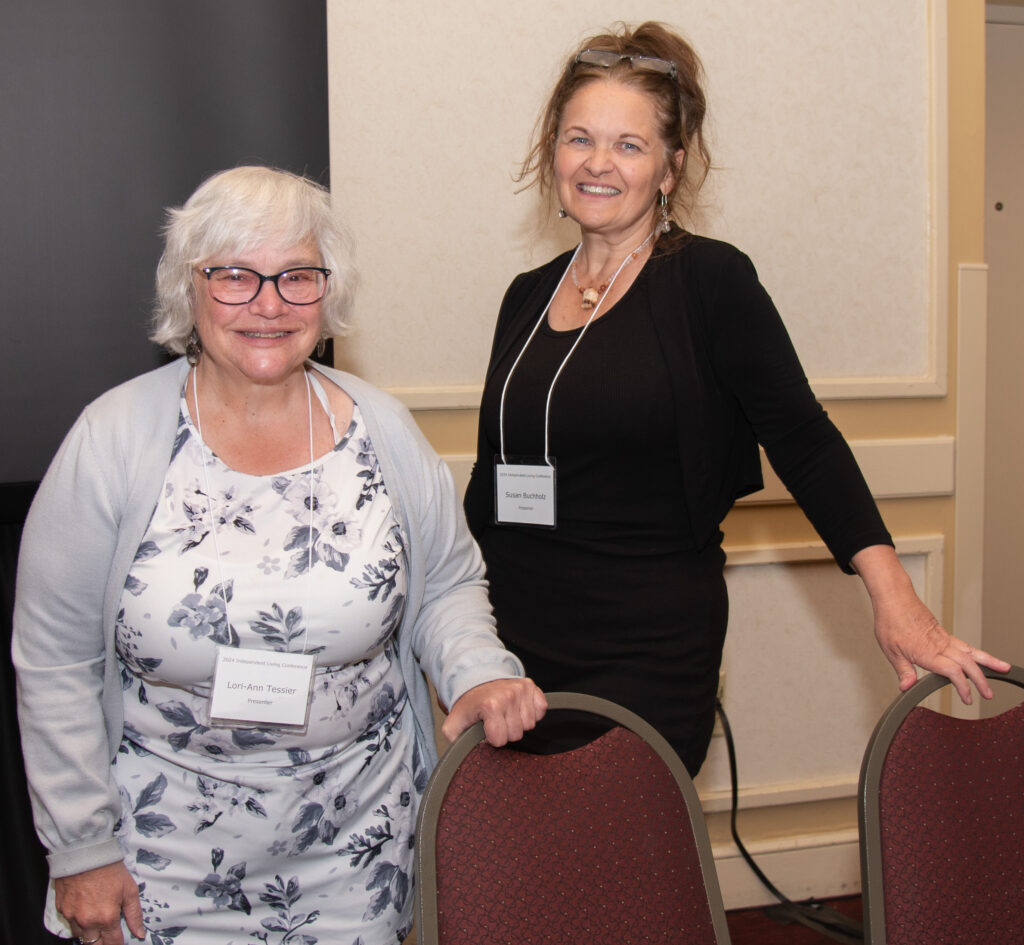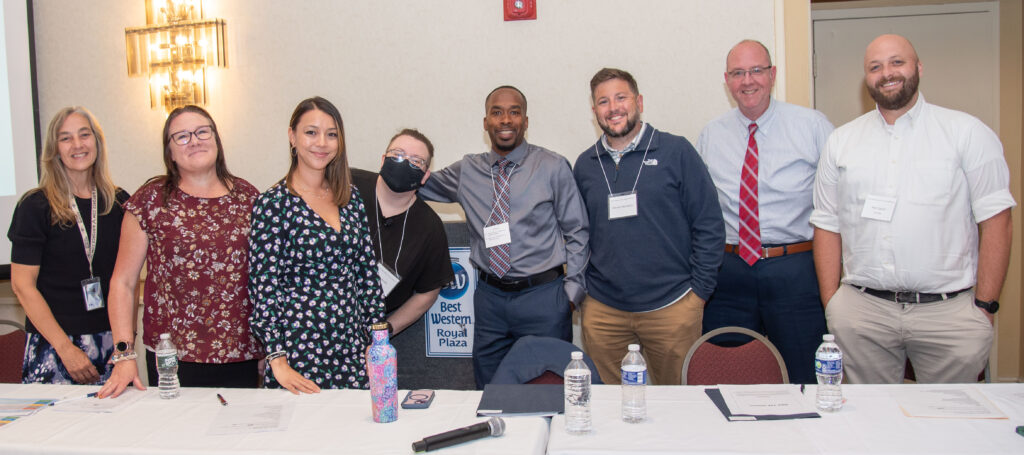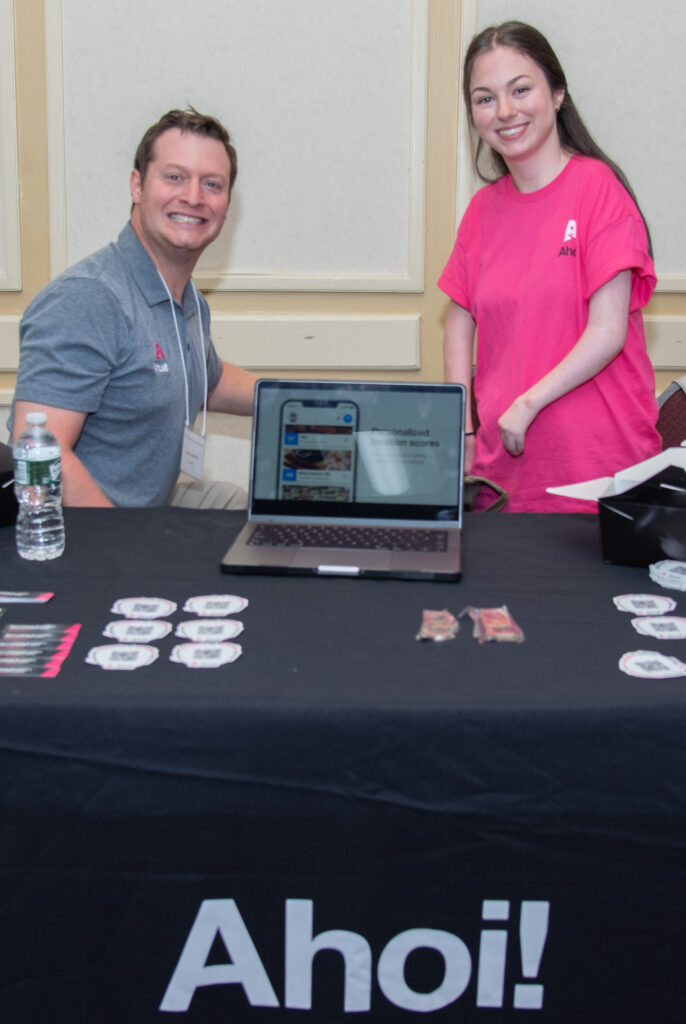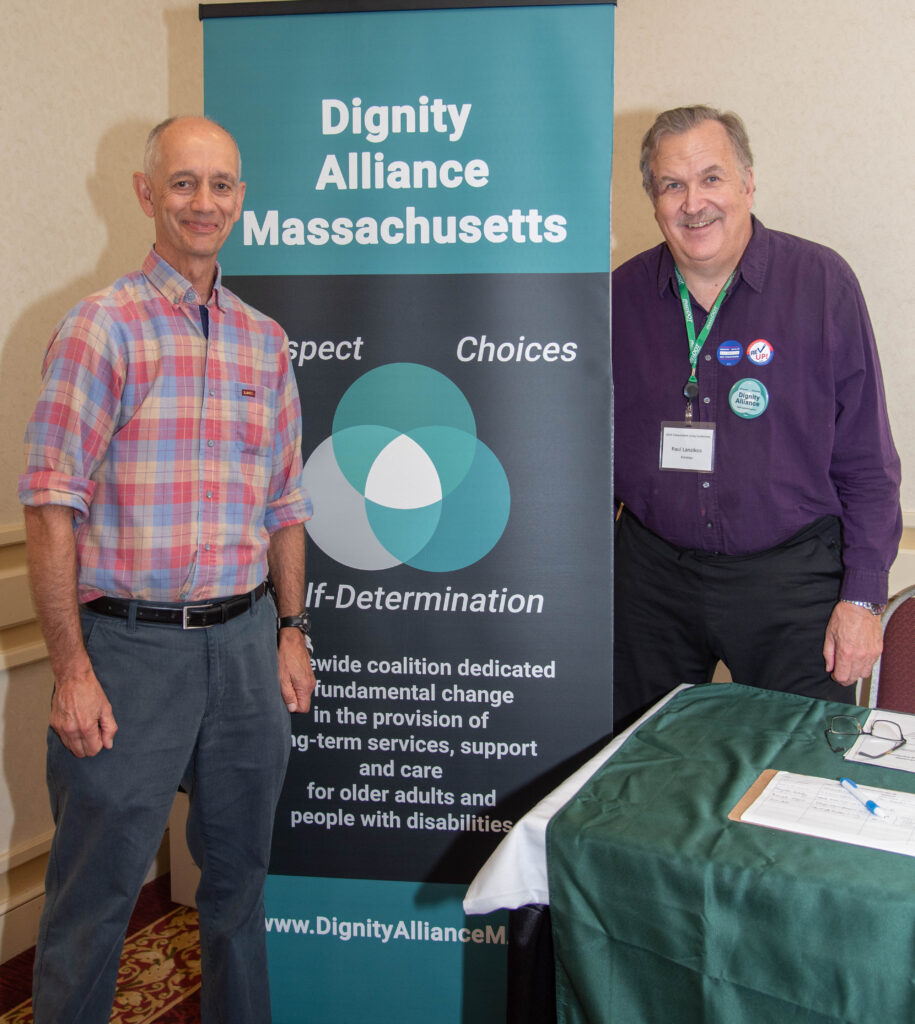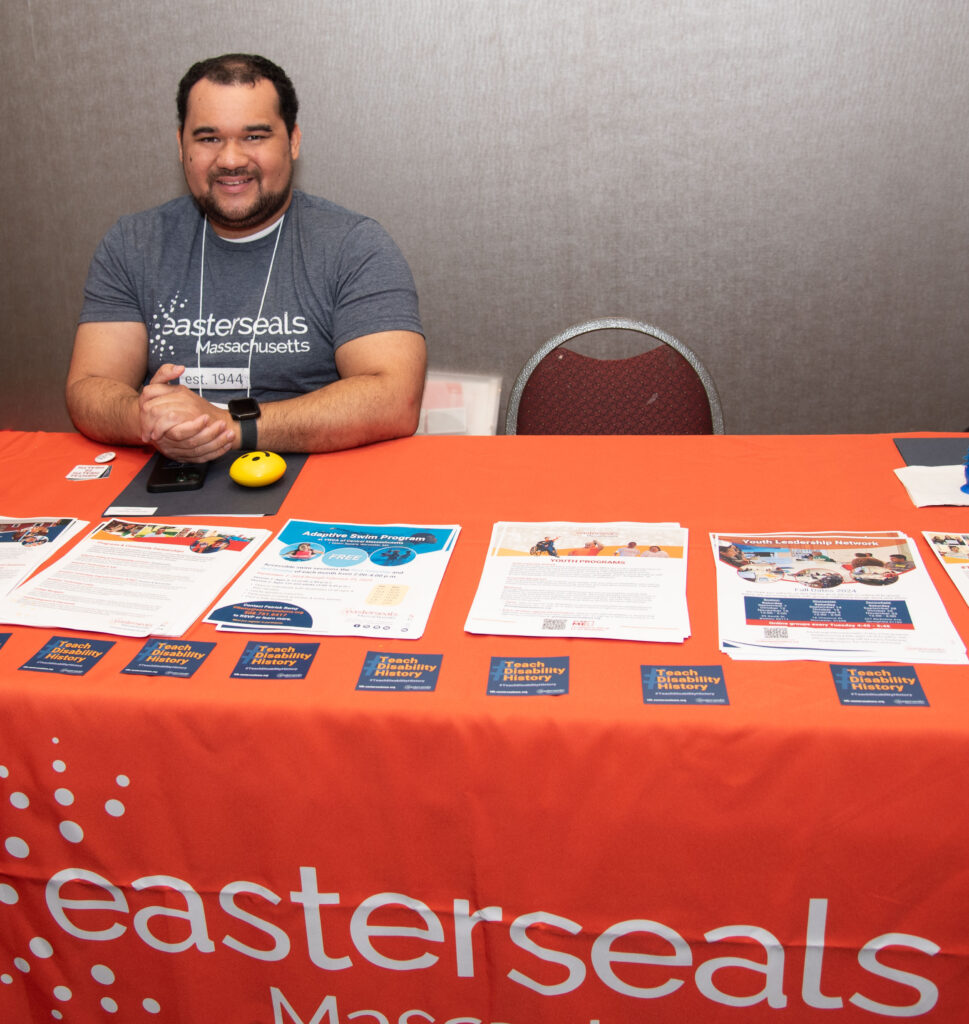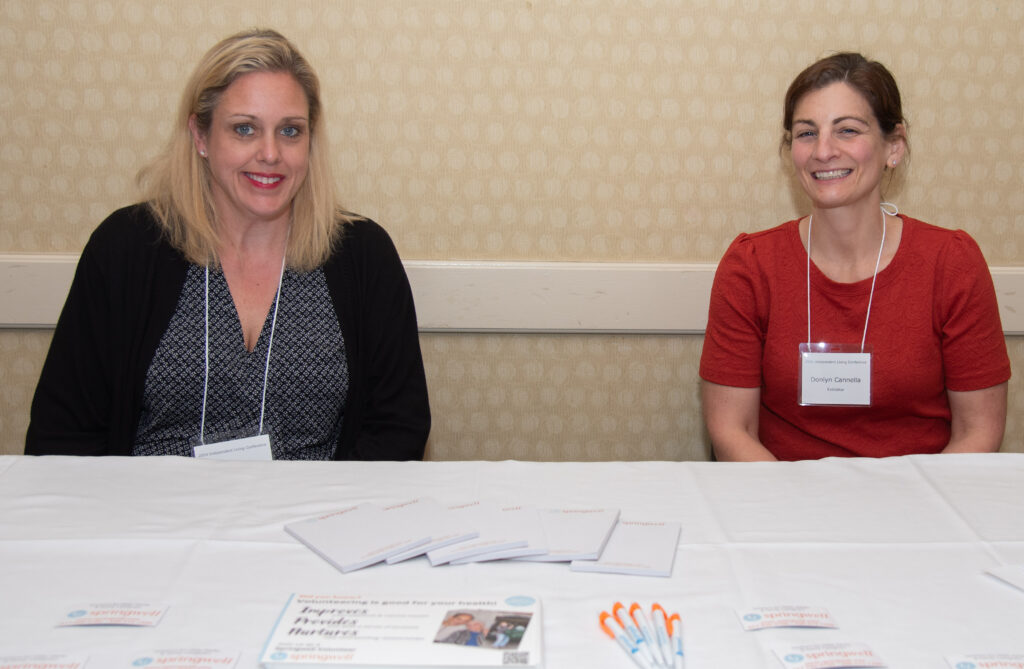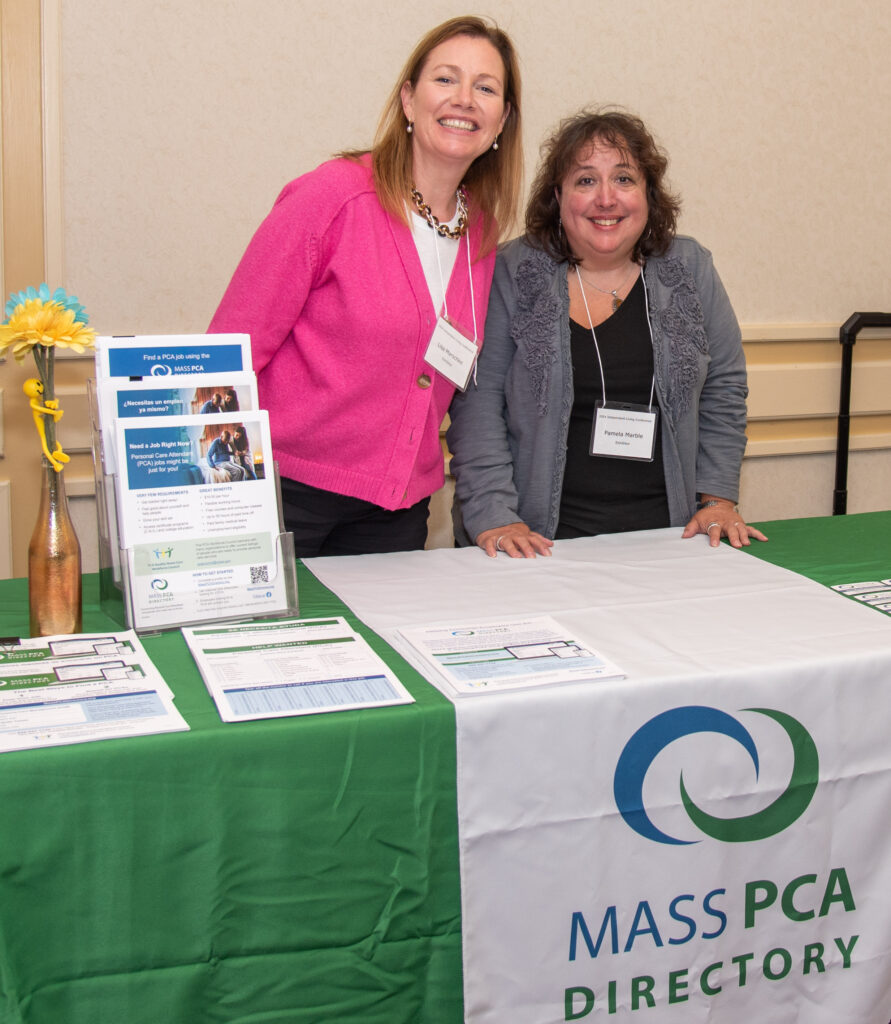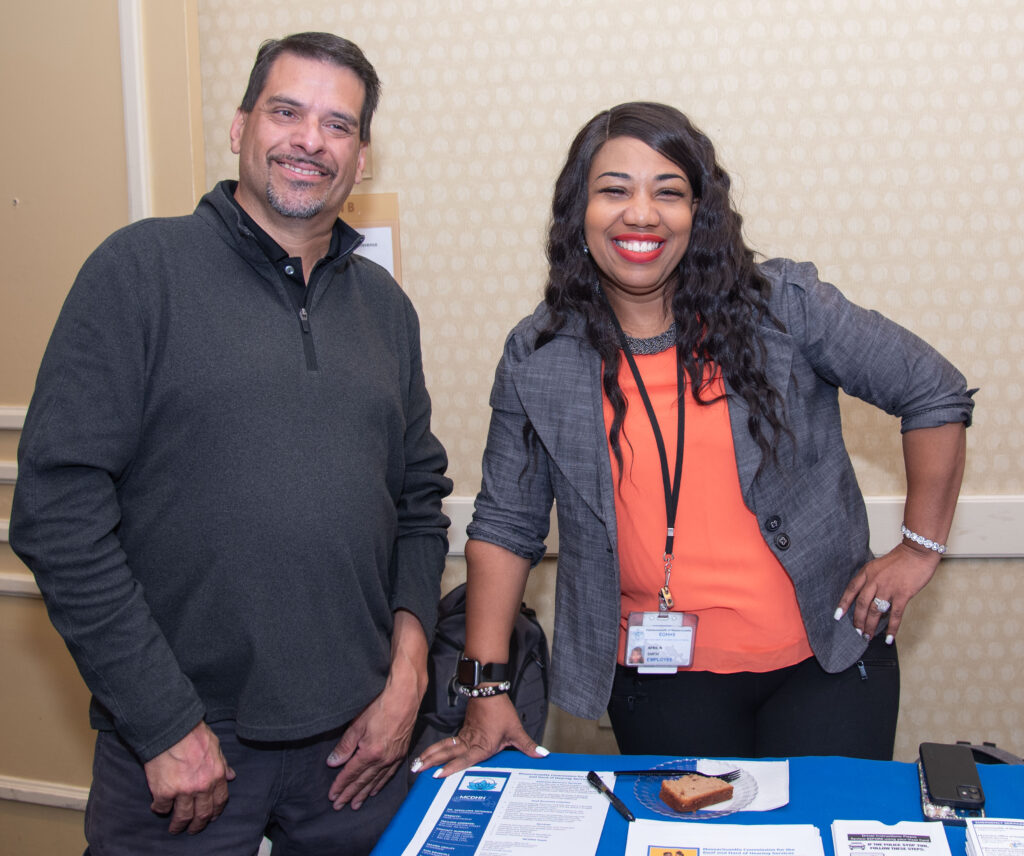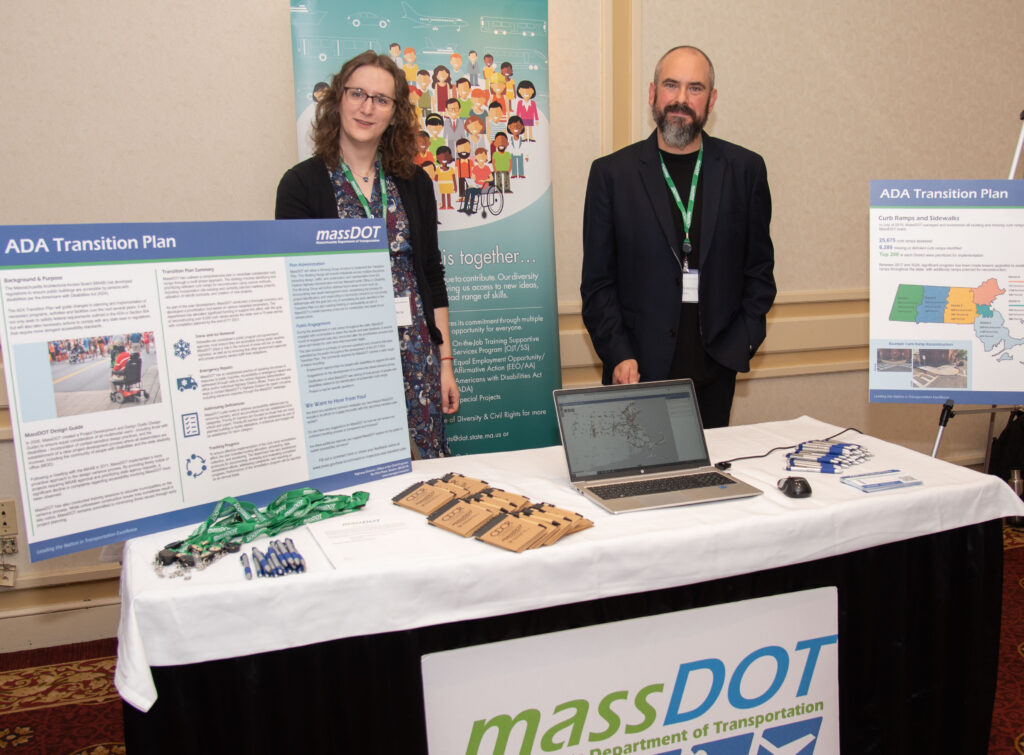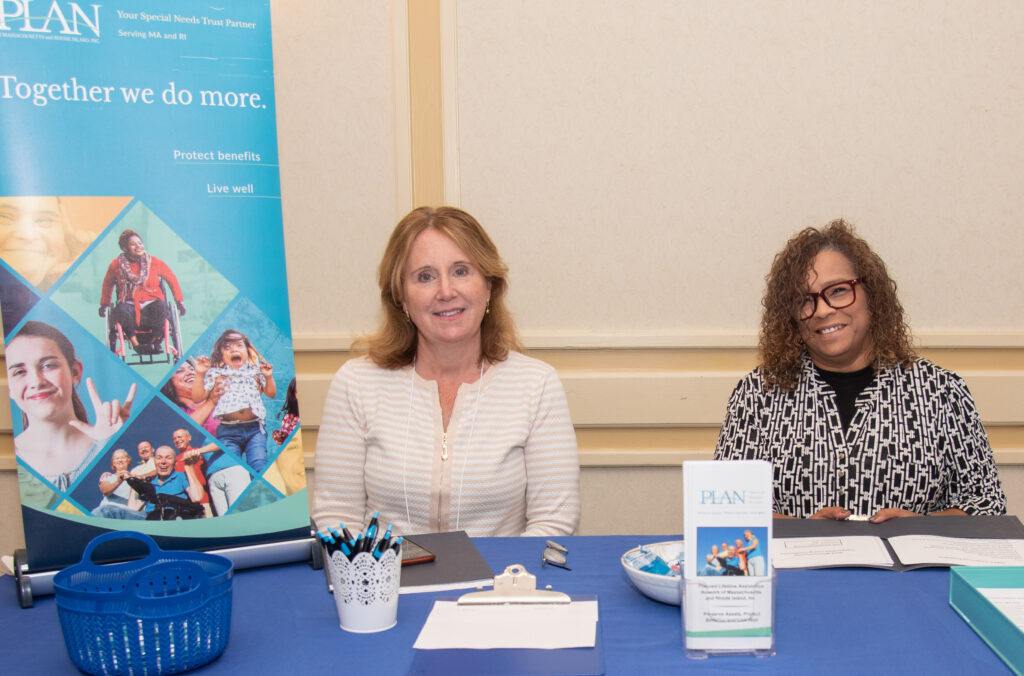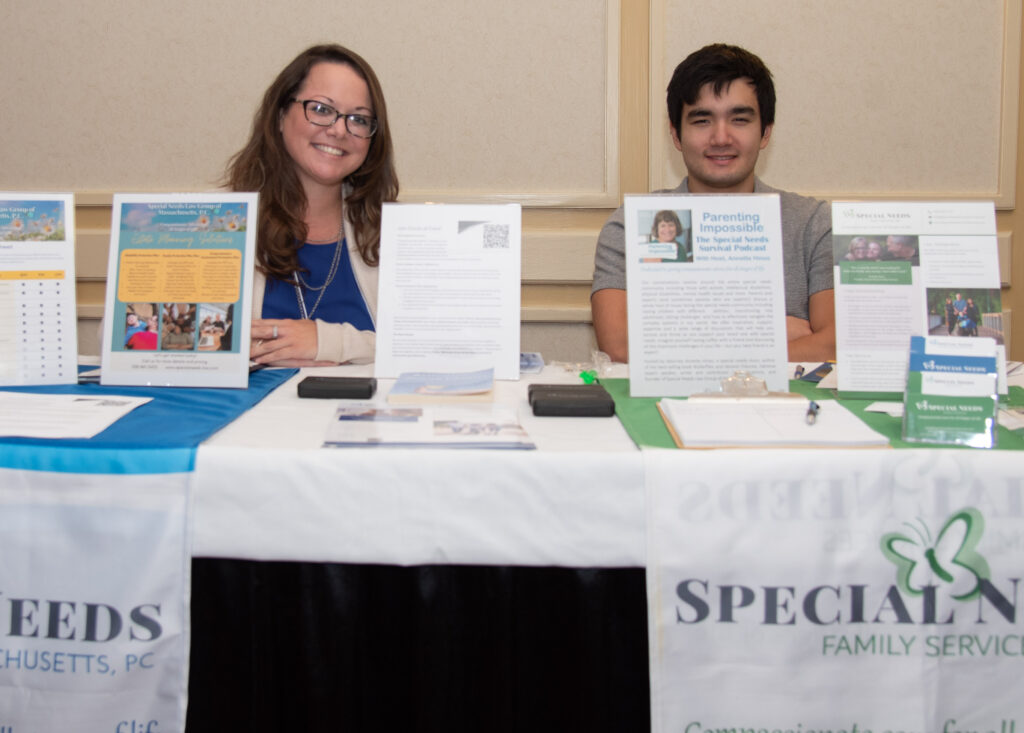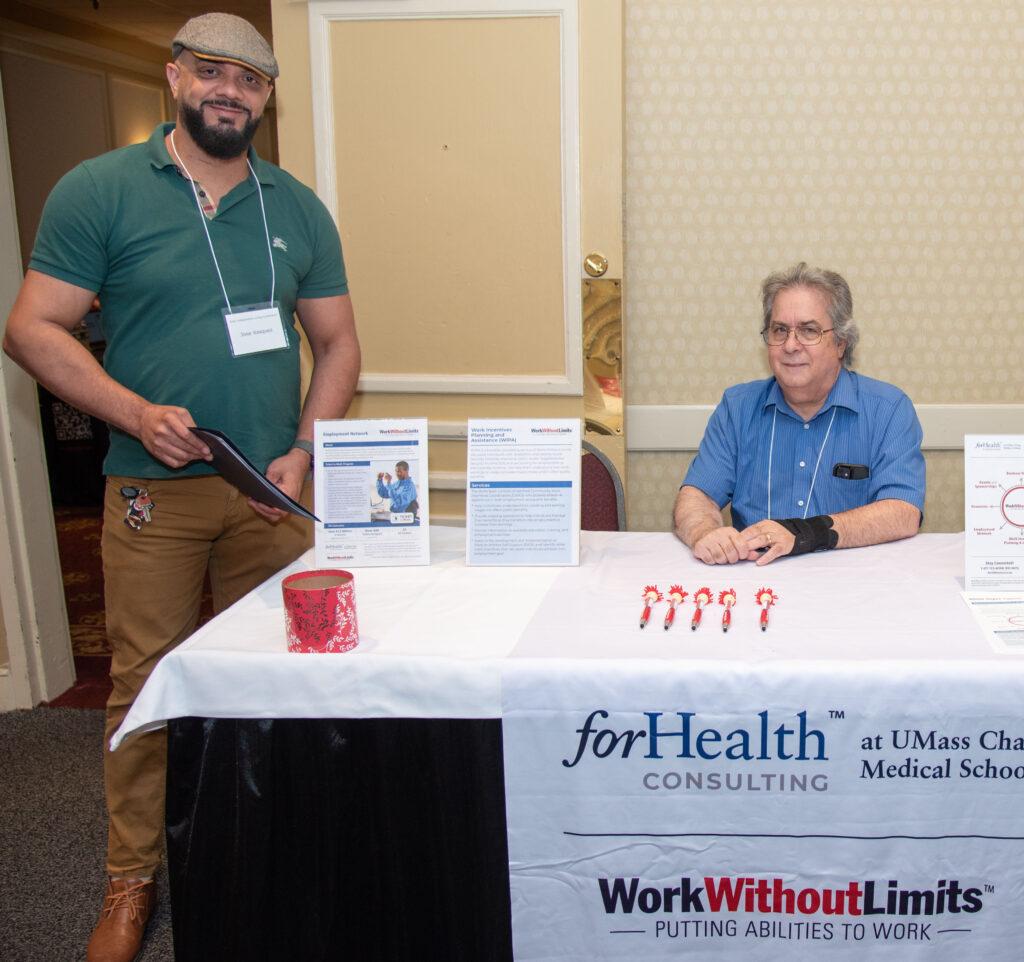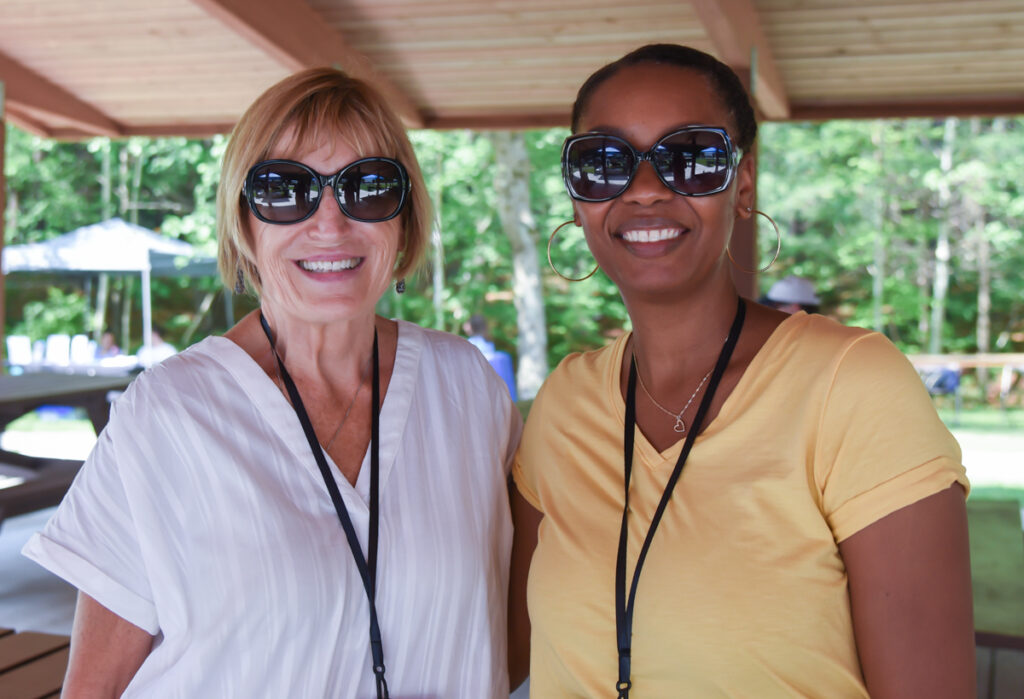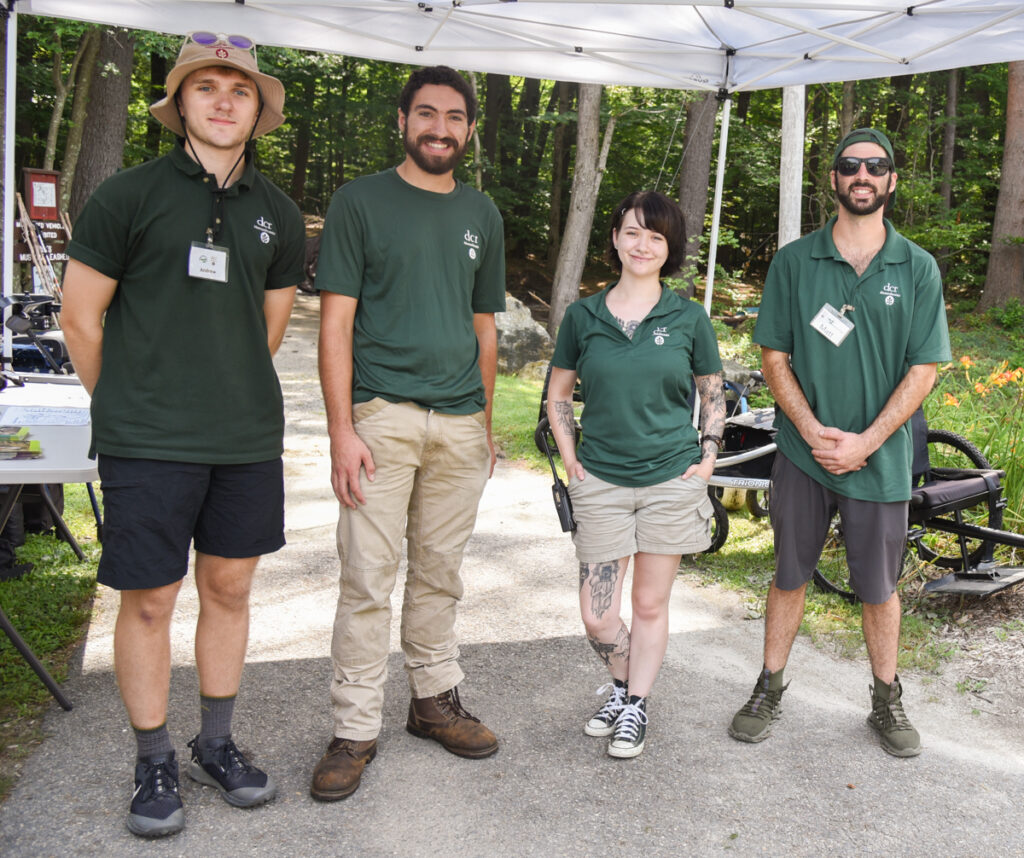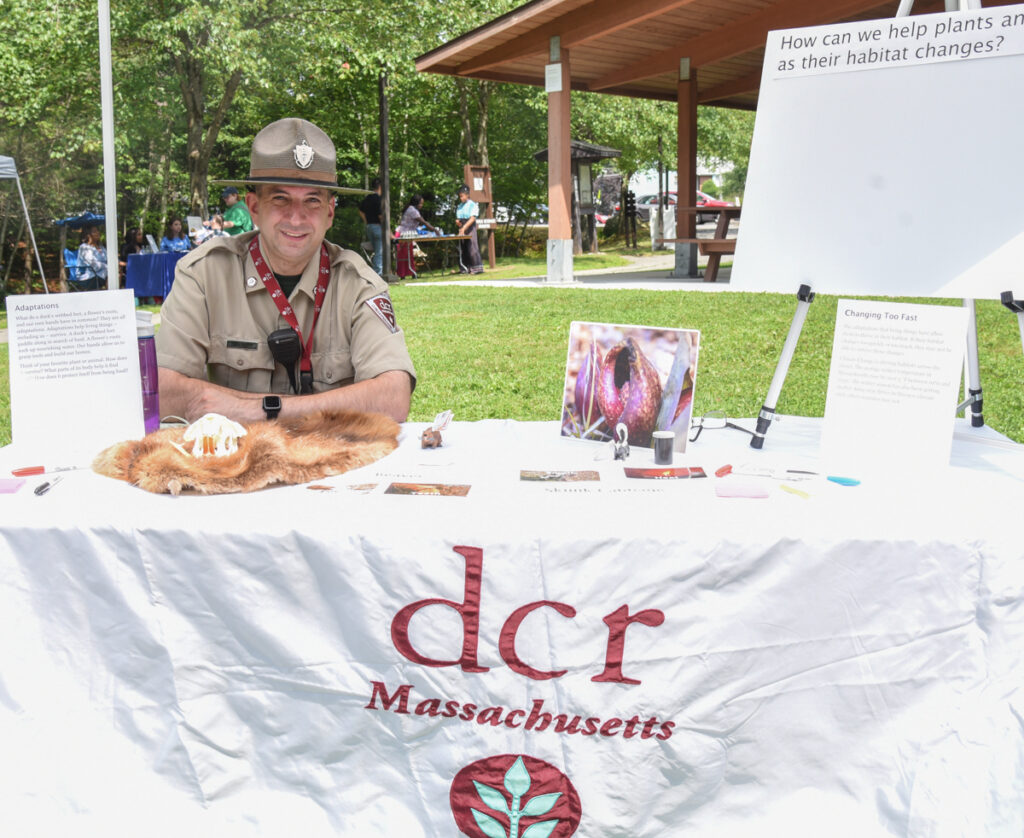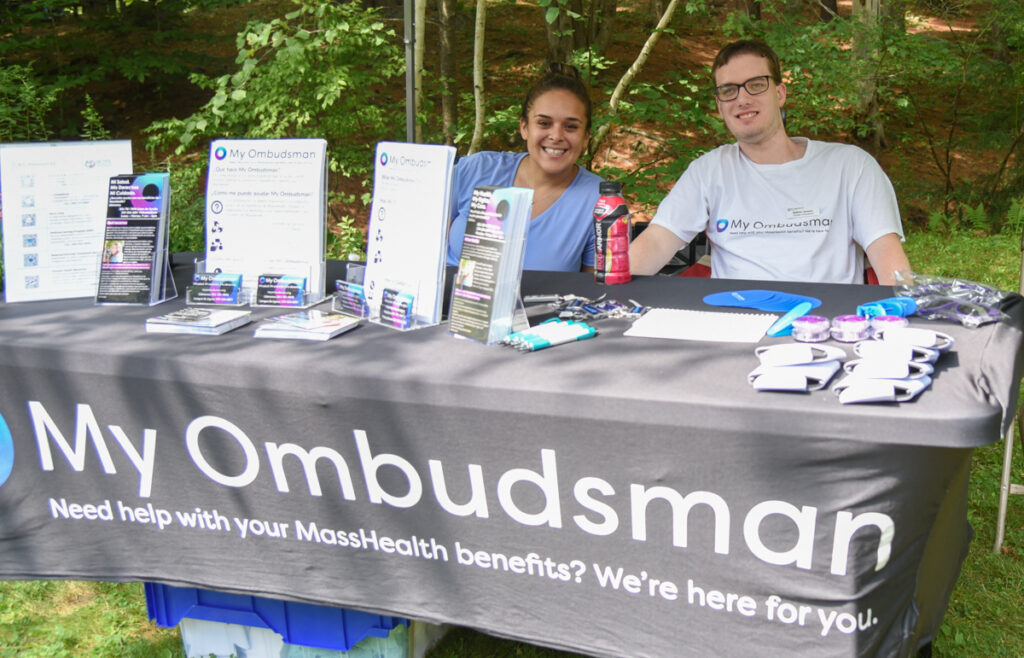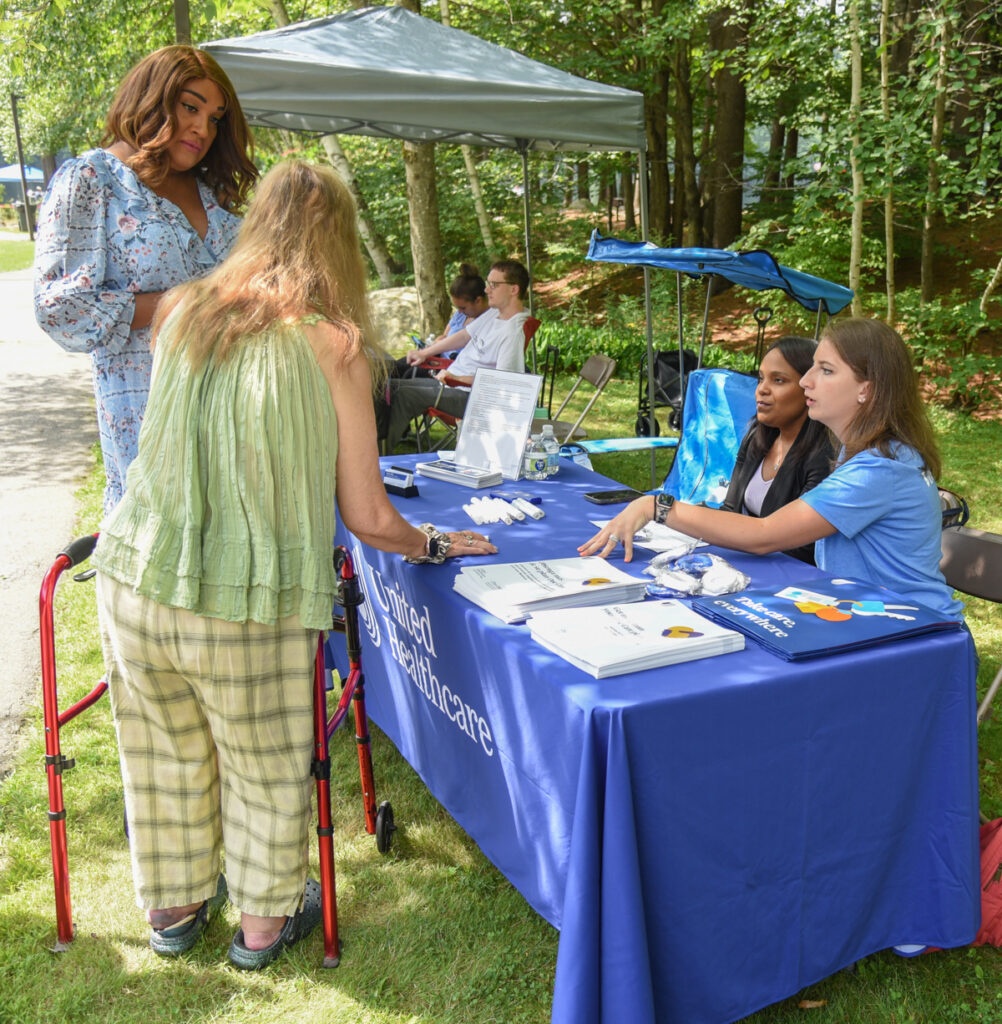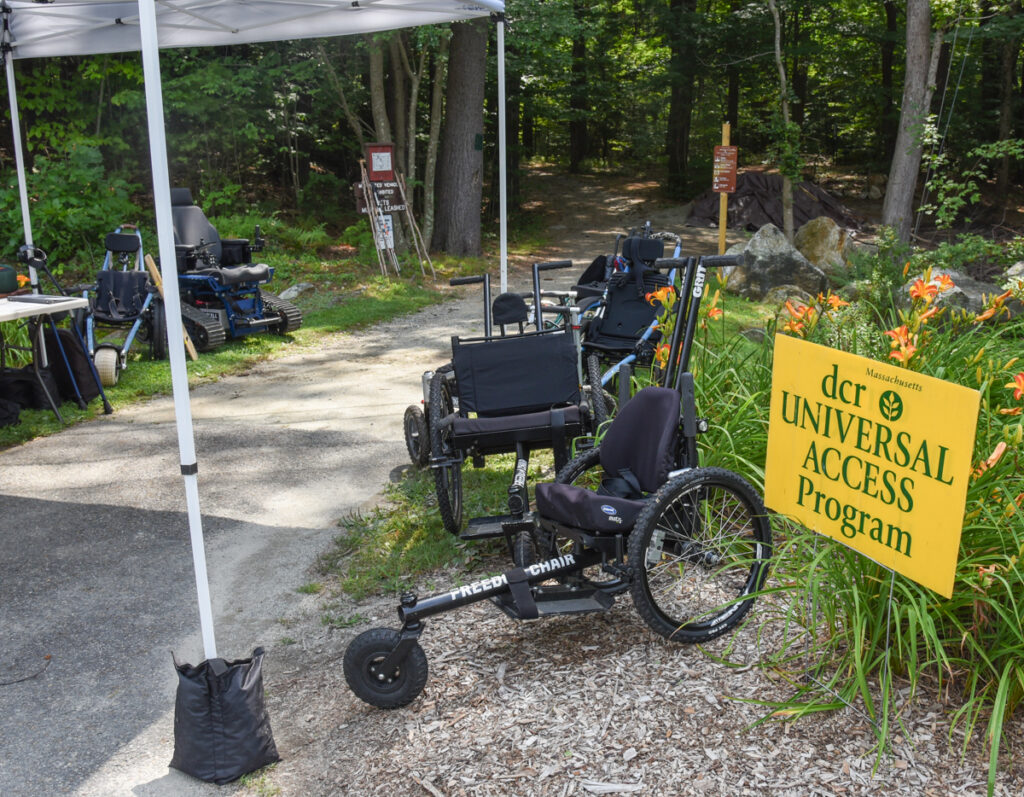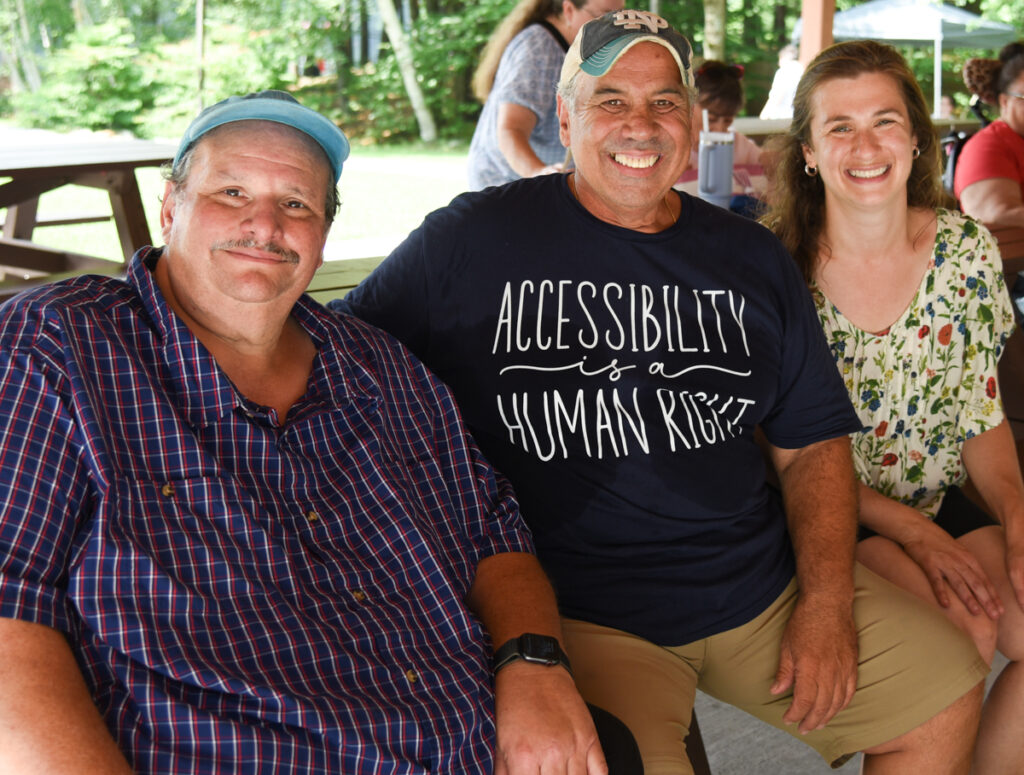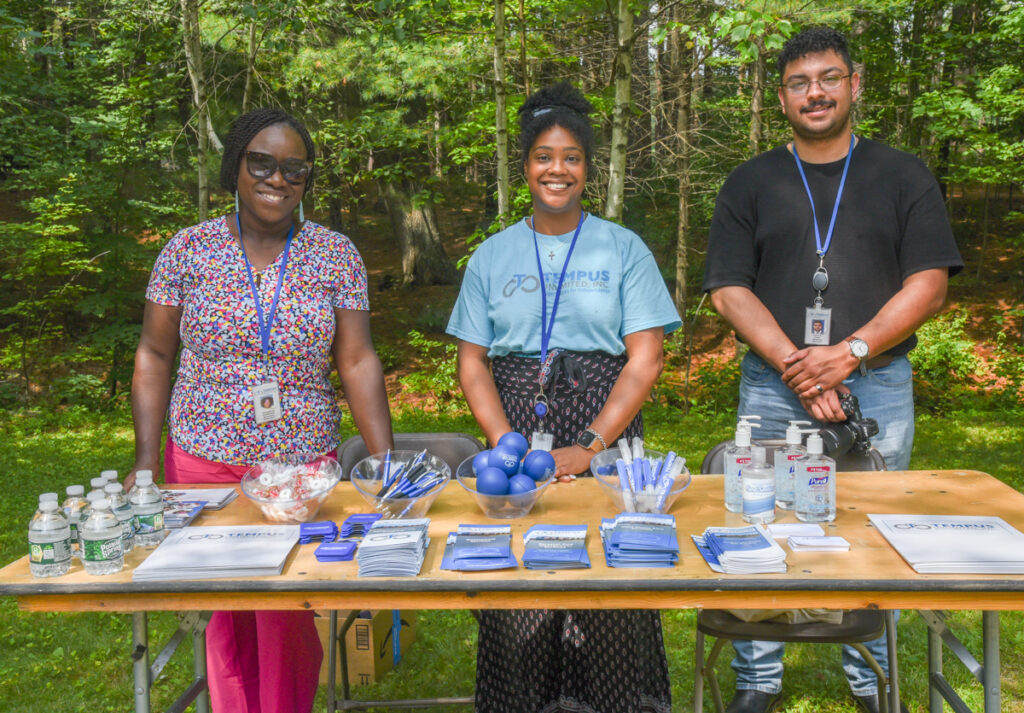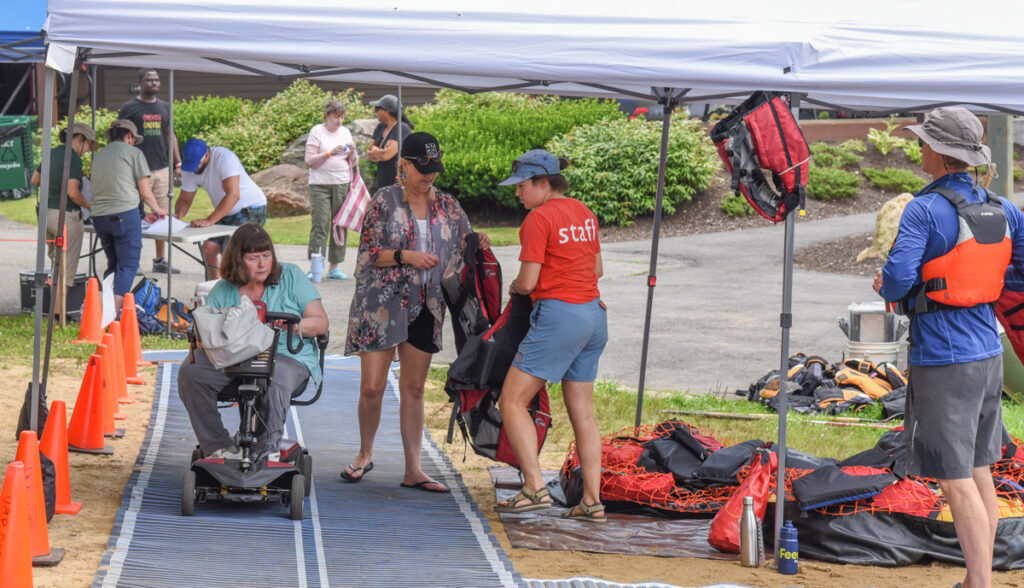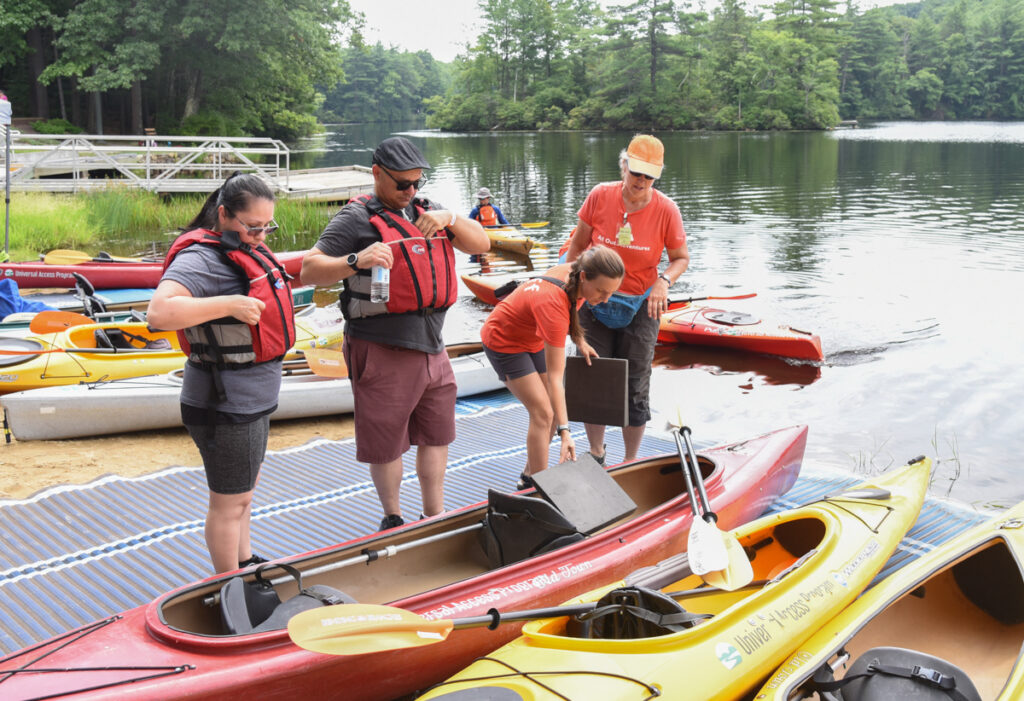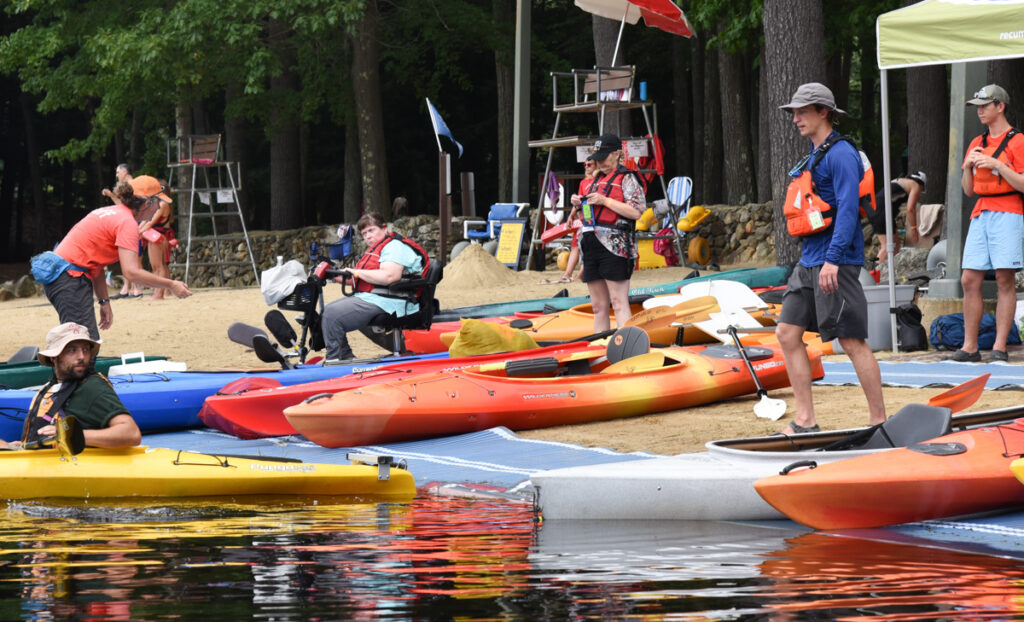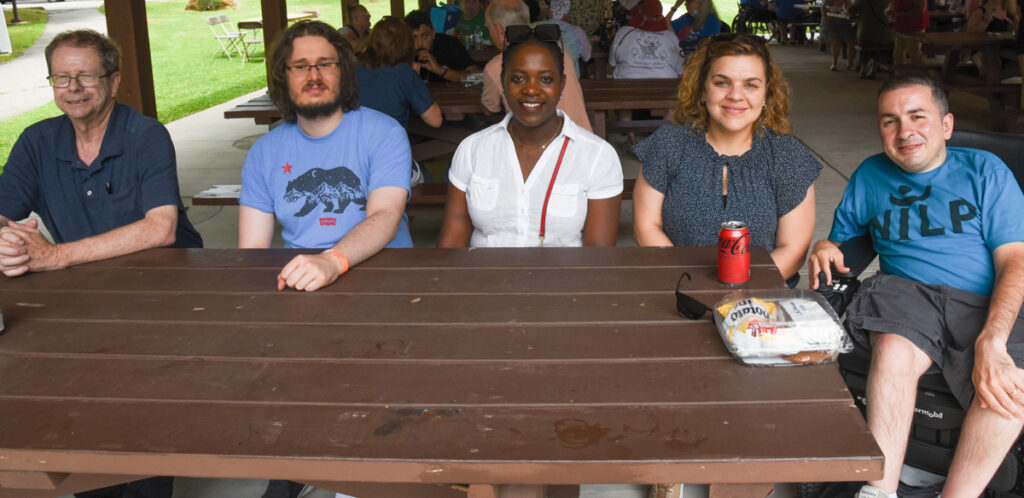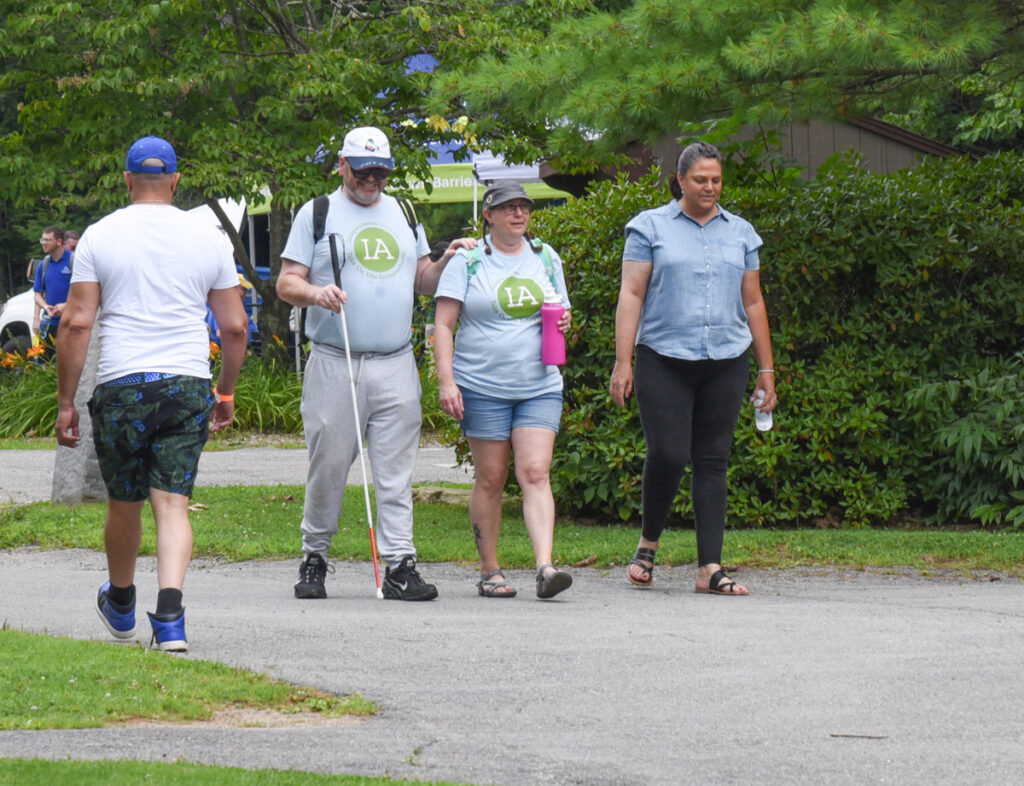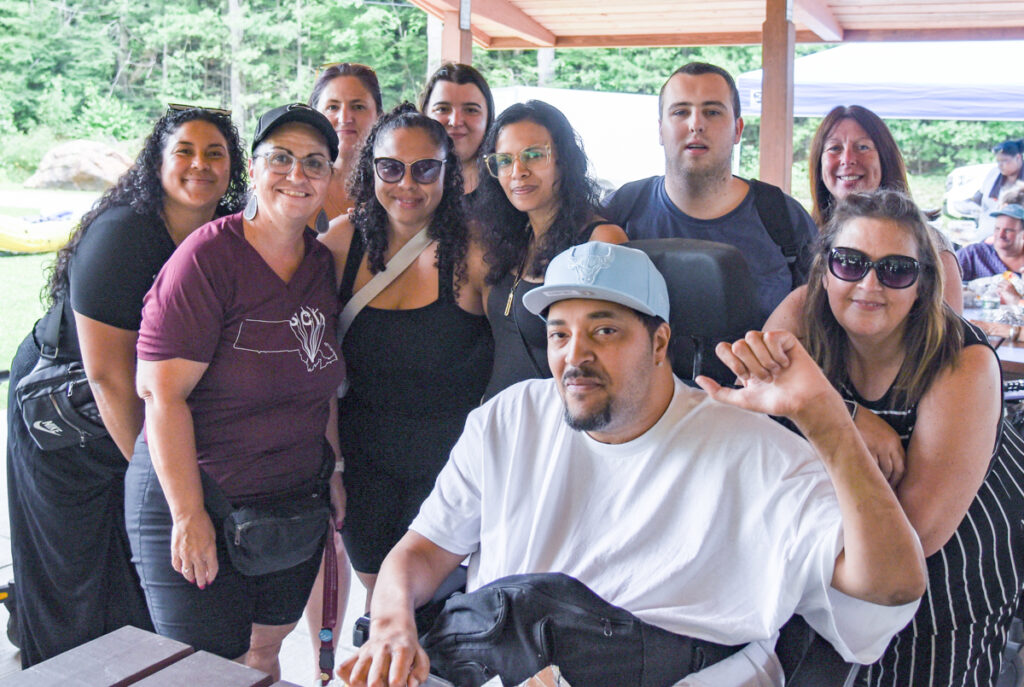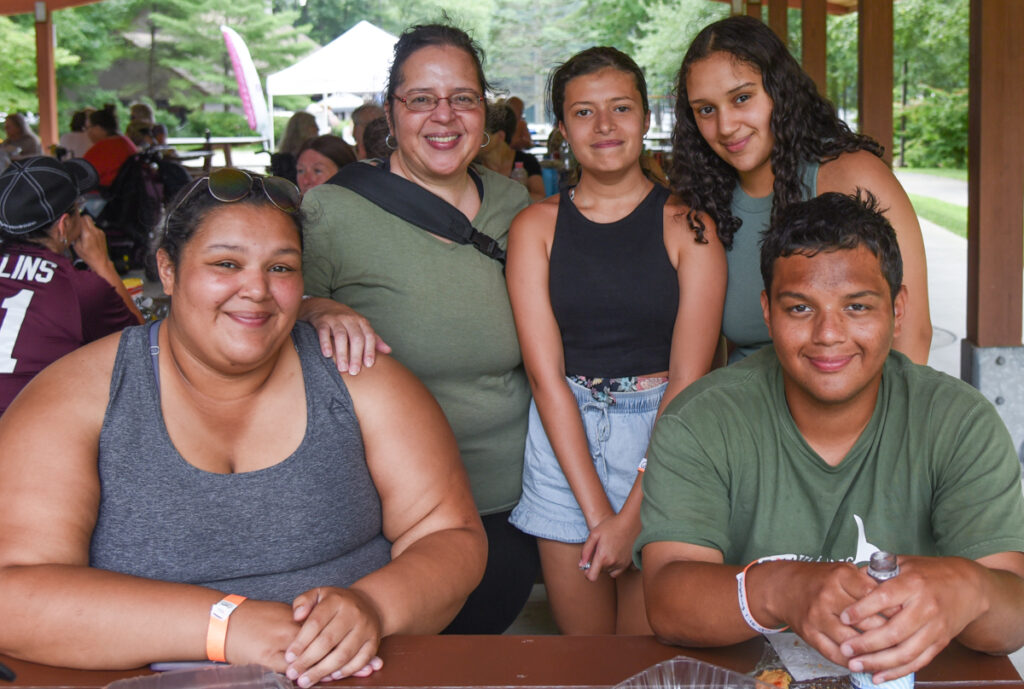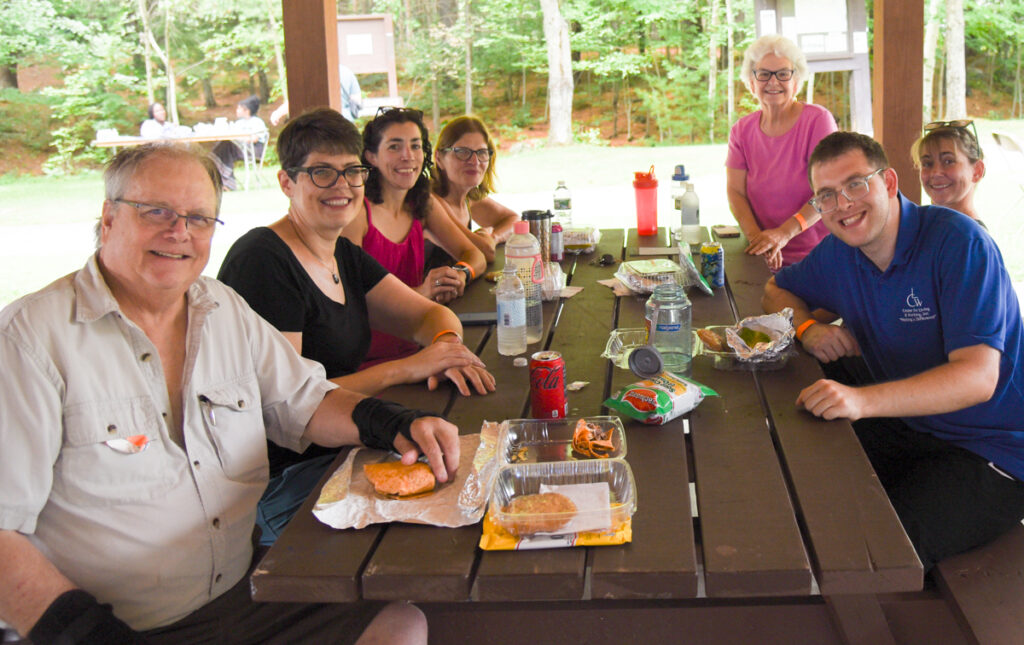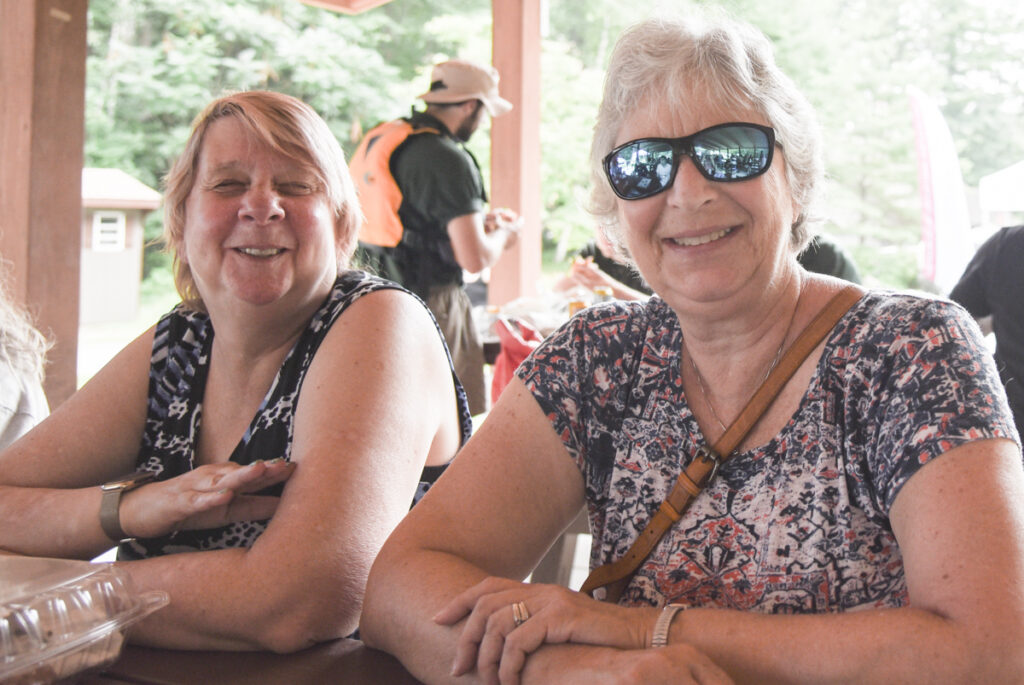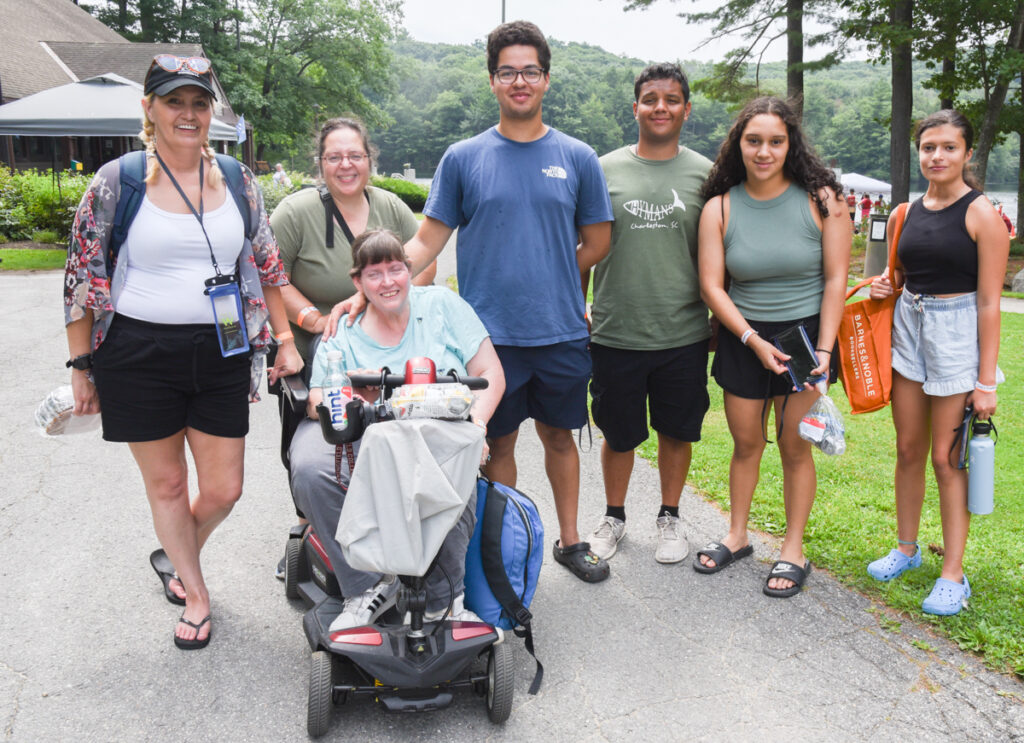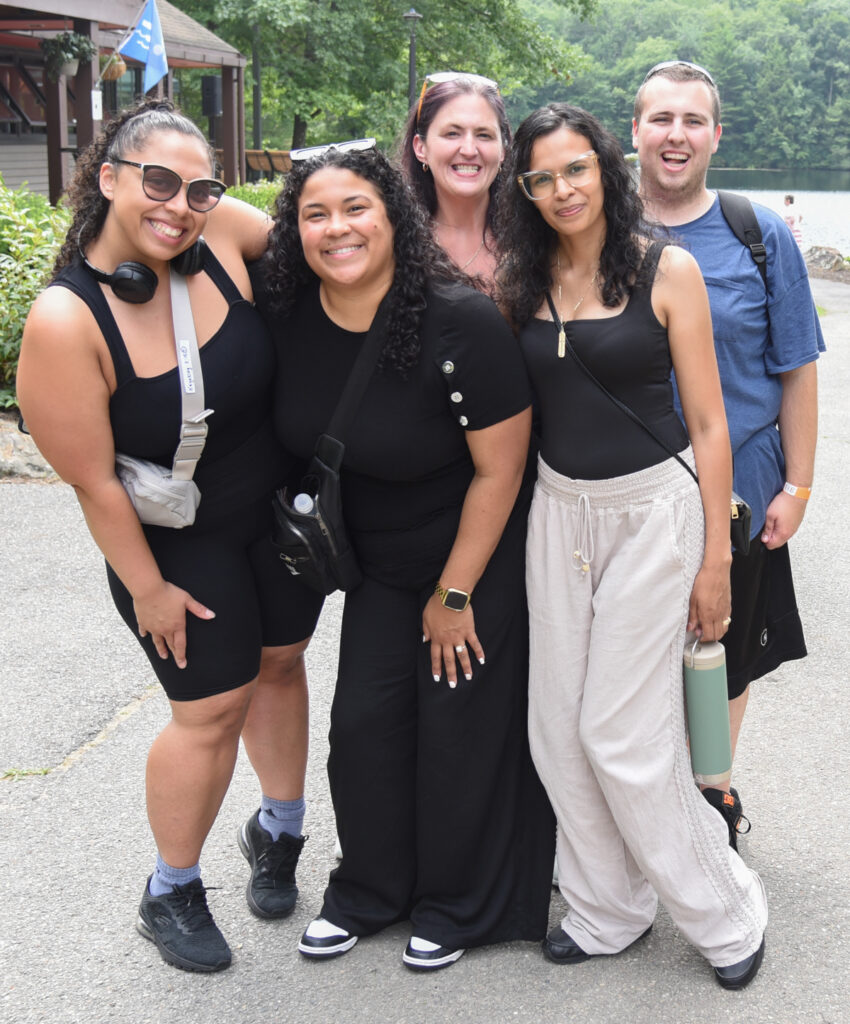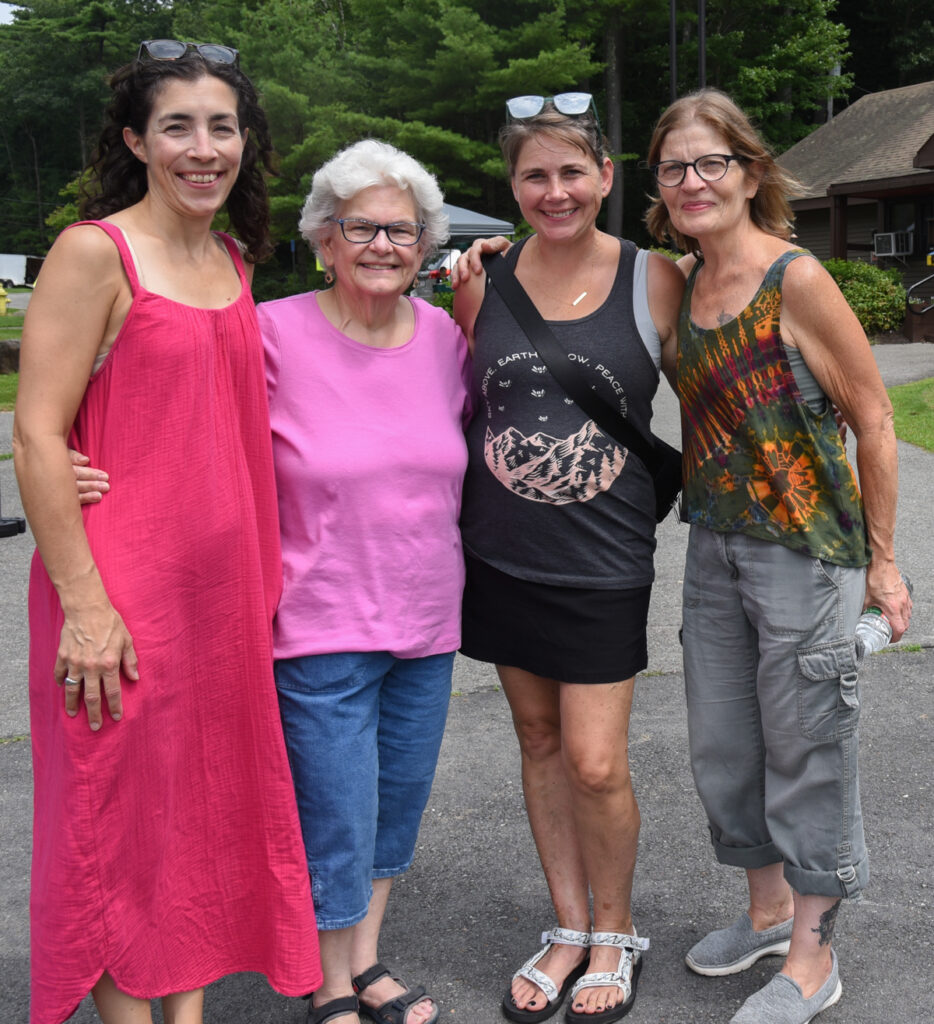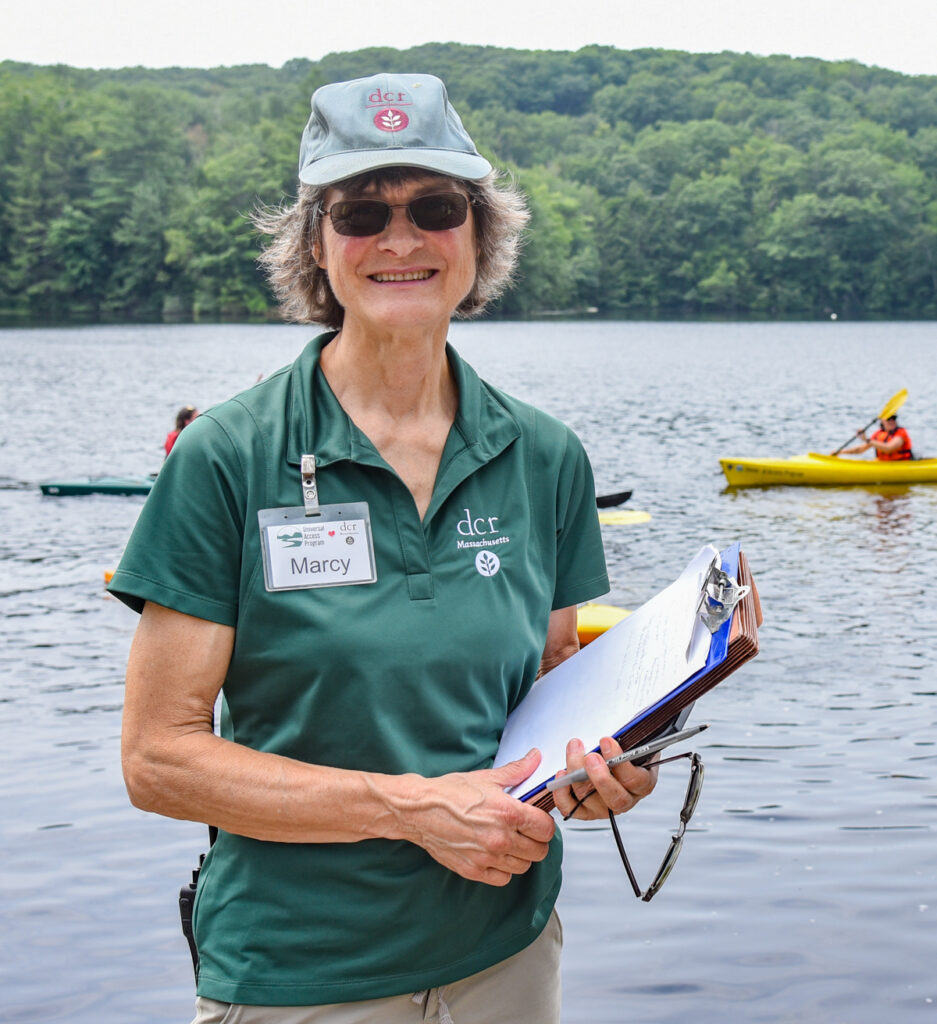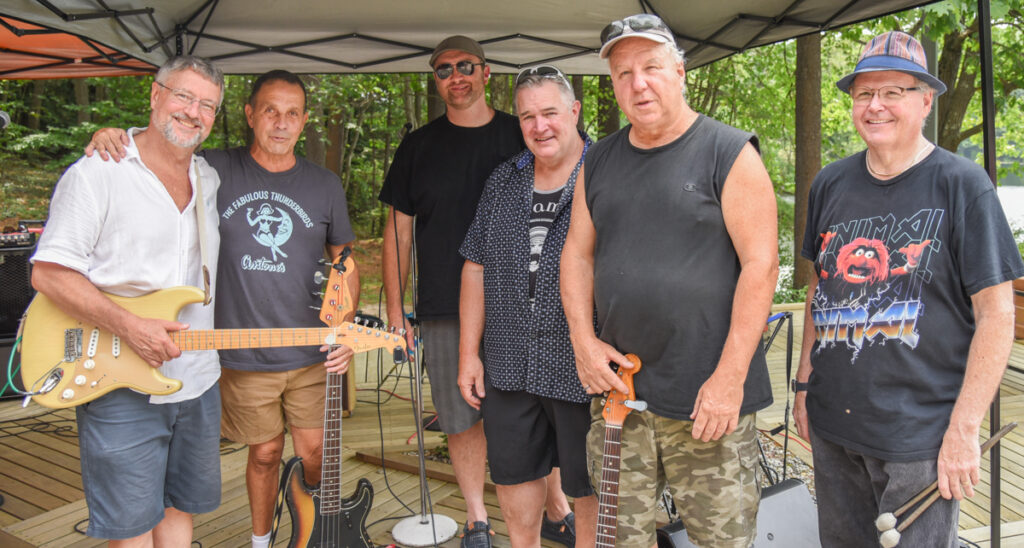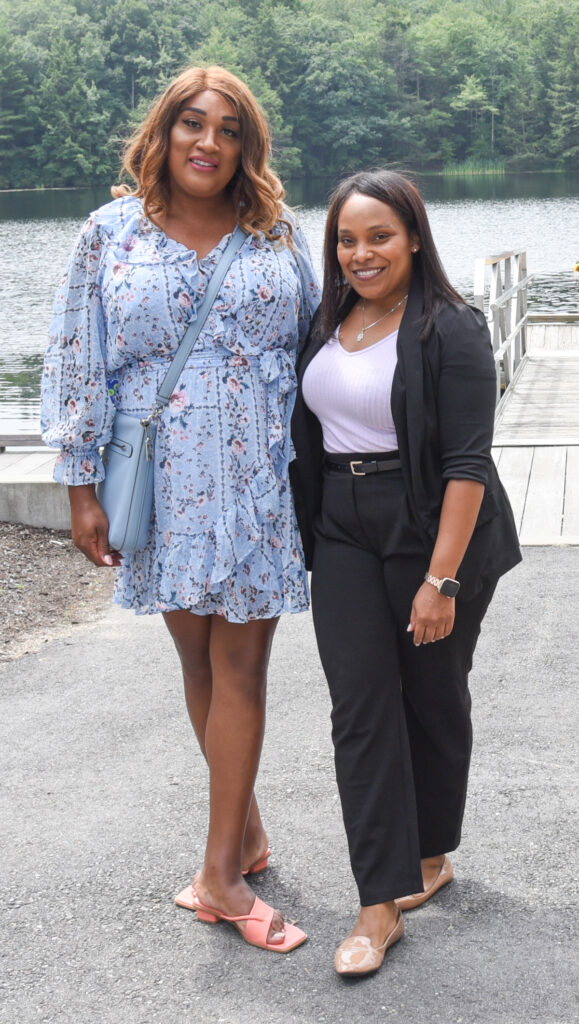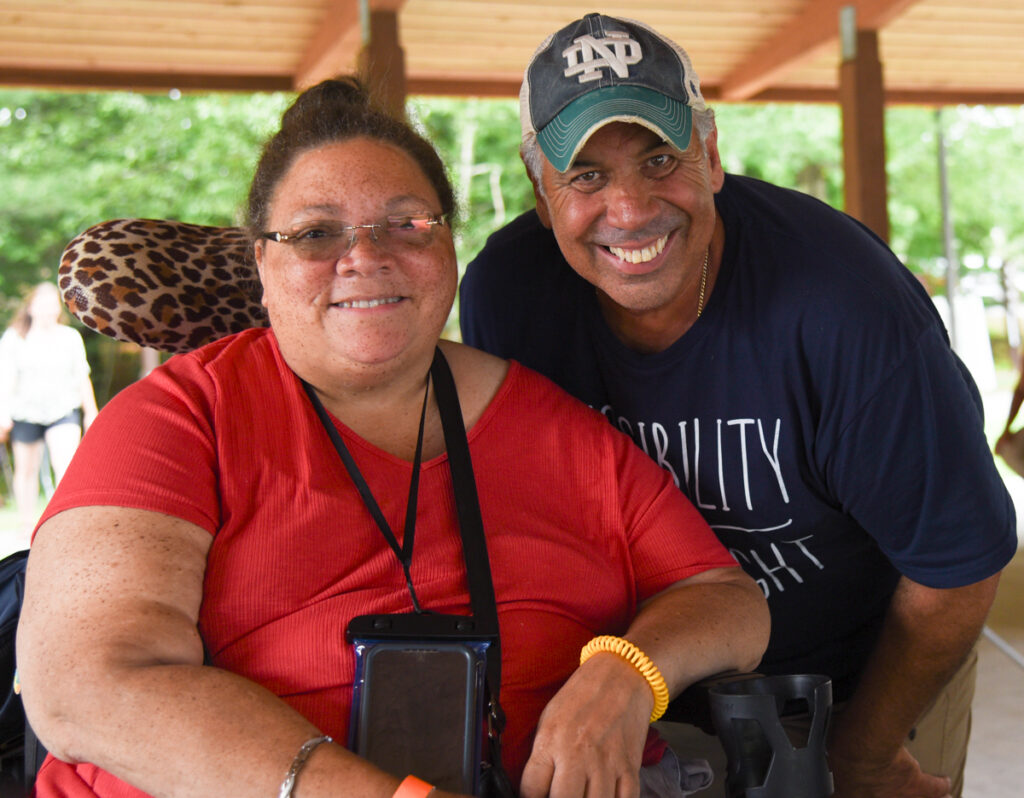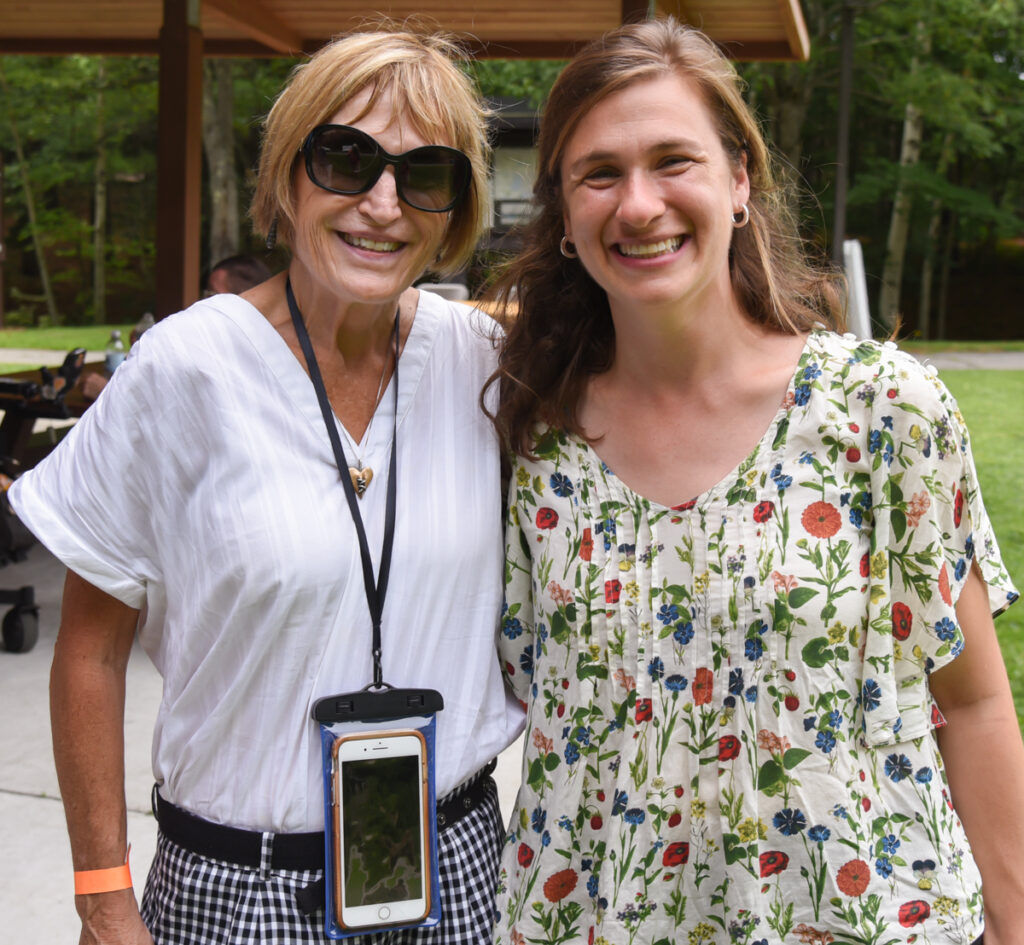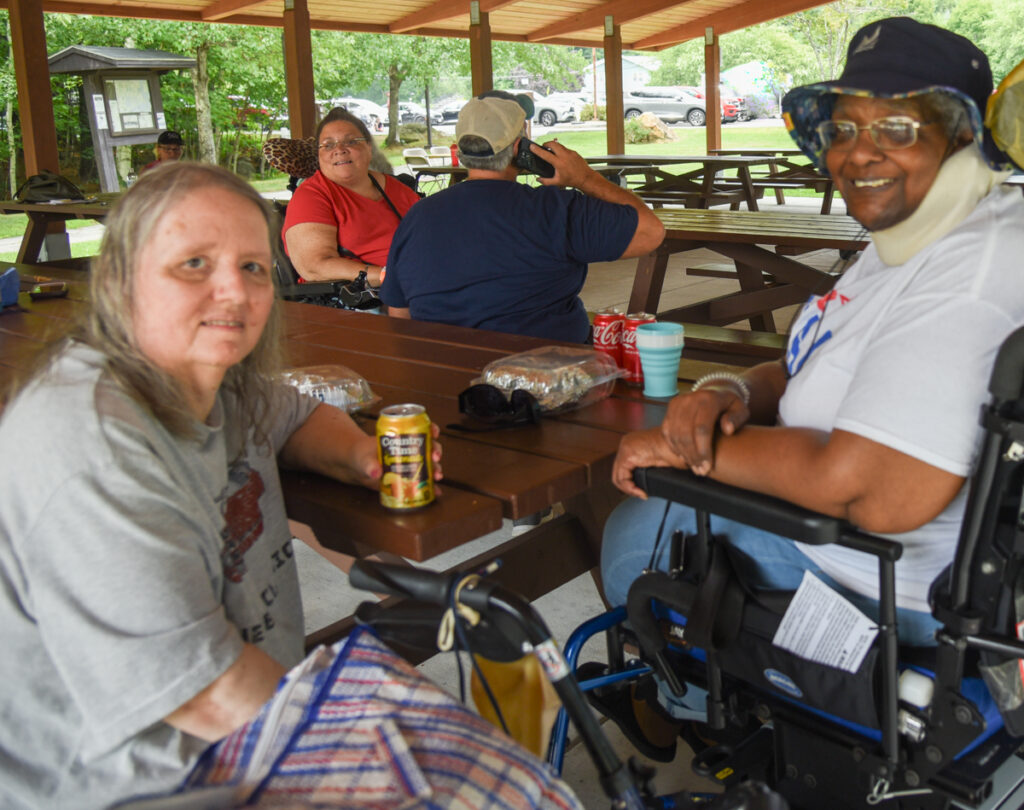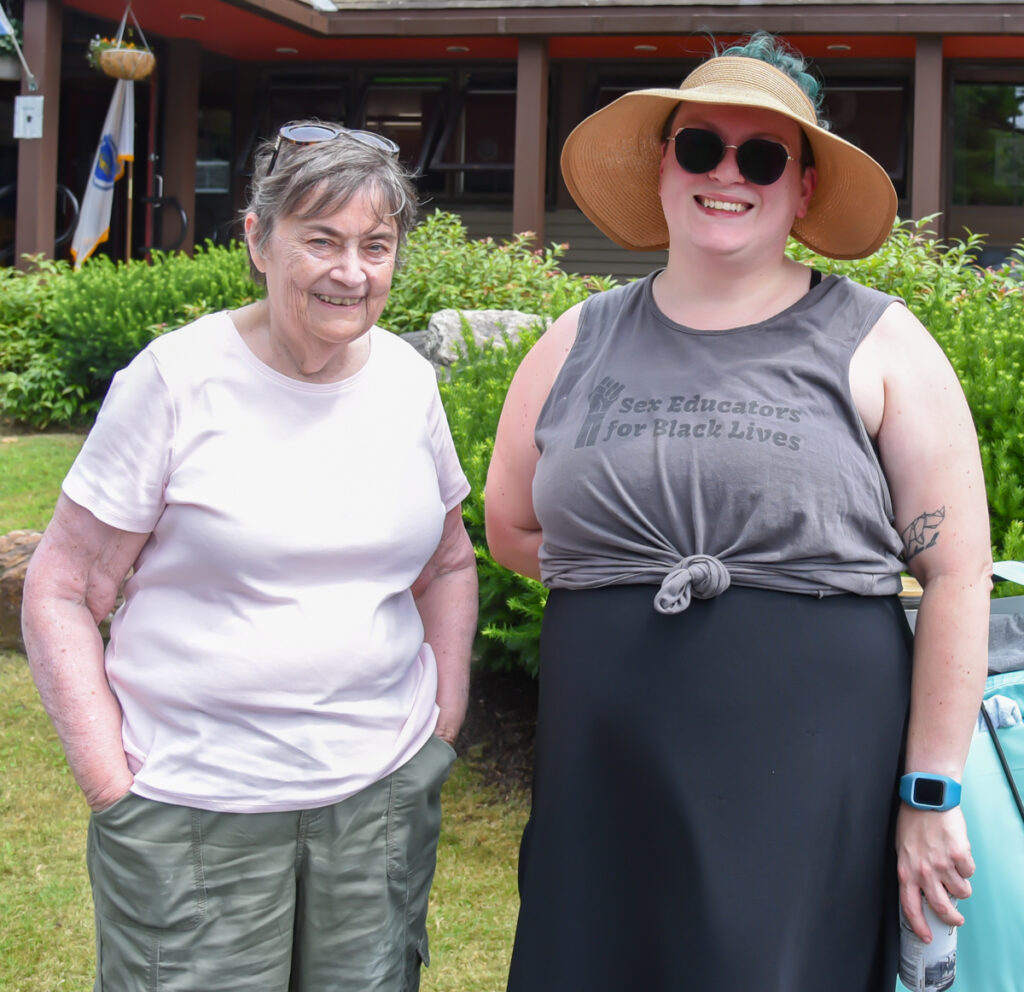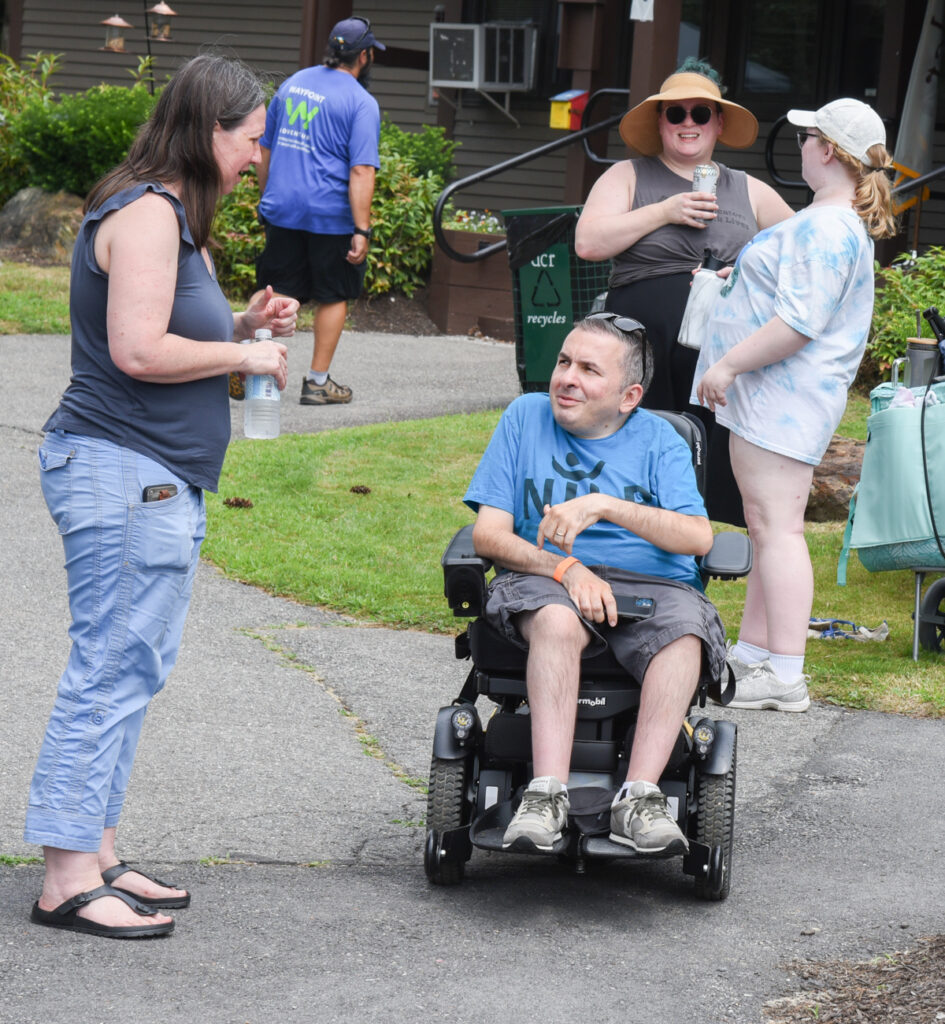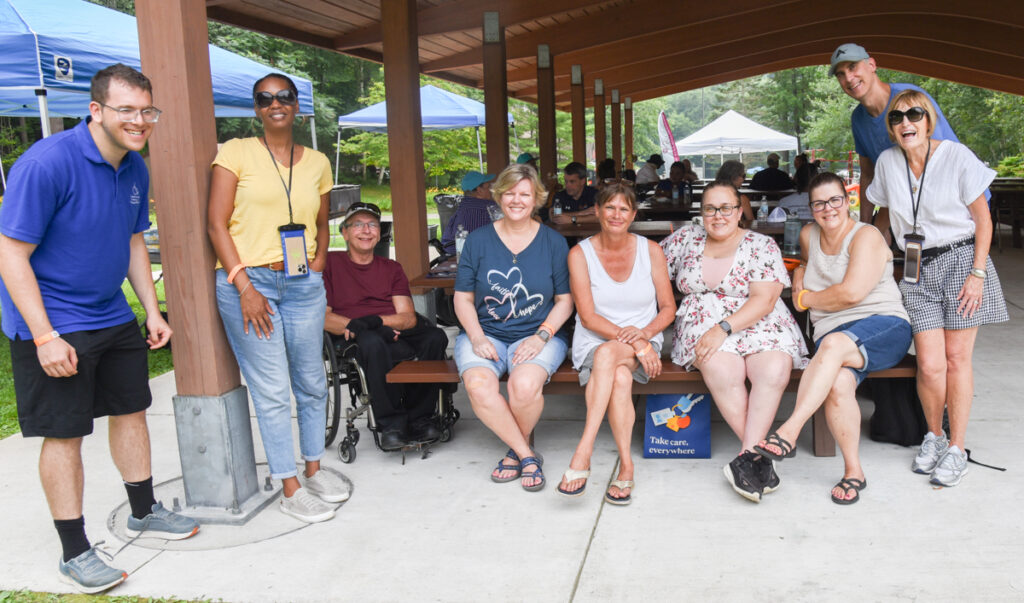The 2025 MA Independent Living Conference will be on Tuesday, September 16, 2025 from 8:30 am – 3:30 pm at the Best Western 181 Boston Post Rd W, Marlborough, MA 01752
A Save the Date flyer is available here.
Agenda
- 8:30 am: Registration, exhibitors, and breakfast
- 9:30 am: Conference Welcome and Commissioner Presentations
- 10:15 am: Workshop Session I
- 11:30 am: Lunch & Keynote
- 1:00 pm: Workshop Session II
- 2:30 pm: Closing Session
Participants will have the opportunity to attend one workshop in each session.
Workshop Session I
- Supporting People in Times of Mental Health Crisis
- Jill Gichuhi, Compass Helpline Manager, NAMI Massachusetts
- Supporting someone who may be experiencing a mental health crisis can be challenging, especially when systems feel complex or disempowering. This presentation will explore ways to support people navigating mental health crisis – before, during, and after it happens – with a focus on autonomy and self-determination. We’ll start by unpacking what “crisis” can mean from different perspectives. We’ll also introduce tools that people can use before a crisis that can help them retain some control and communicate preferences, and then explore key supports that people can access during times of crisis. We’ll also share practical strategies for responding supportively in the moment.
- Bridging the Gap: Tools, Perspectives, and Collaborative Solutions for Affordable & Accessible Housing in Massachusetts
- Presenter: Victoria Decker, Community Manager, Housing Navigator MA
- This engaging presentation and panel discussion will equip attendees with practical knowledge and foster collaborative solutions to the pressing issue of affordable and accessible housing in Massachusetts. The session will begin with an in-depth overview of Housing Navigator MA’s powerful search tool and essential website education resources. Participants will gain hands-on understanding of available resources and effective search strategies. Additionally, key findings from the Affordable + Accessible Renters 2024 report with the Independent Living Centers and their Data Opens Doors series will be shared, demonstrating how data can inform and drive solutions.
- Following this, a panel discussion featuring members of the ILC housing working group will offer diverse perspectives on the current state of housing and the challenges individuals face in the search and access process. The panel will feature IL housing work group members and delve into topics such as: the human impact of the current renter experience, the broader housing landscape in Massachusetts, effective outreach and partnership strategies, the power of collective action and advocacy, and a forward-looking perspective on the future of housing in the Commonwealth.
- Culturally Responsive Engagement for Authentic Connection with Families and Young Adults
- Presenters: Rebecca Davis, Ivone Rego and Dara Sok, Federation for Children with Special Needs (FCSN)
- Authentic engagement between families/young adults and the professionals supporting them is the key to positive life outcomes for young adults with disabilities. Bias, miscommunication, and lack of information about cultural differences can be obstacles to authentic engagement. FCSN, the MA Statewide Family Engagement Center, developed a Family Engagement Framework with the input and guidance of a 500 member coalition (including 11 state agencies, various sectors, and Education and Health and Human Services secretaries). Our outreach team members have lived experience as families of youth with disabilities and provide authentic voices on disability stigma in their communities.
- Our presentation introduces some best practice approaches to build culturally responsive engagement with families and addresses culturally specific stigma about disability that support professionals may face when working with diverse families.
- Dispelling Myths: SSI, SSDI and Work
- Presenter: Brian Forsythe, Work Without Limits
- This workshop will review the basics of disability benefits offered by the Social Security Administration for individuals with disabilities, such as SSI and SSDI, including eligibility requirements, major differences between the two programs, and the effect of work income on these benefits. We will also review and discuss some of the most common myths associated with working while receiving Social Security and other public benefits. Finally, we will establish that work is possible while receiving disability benefits, and review some of the community resources available to assist individuals to transition to work while successfully managing their benefits.
Workshop Session II
- Preventing and Managing Workplace Stress
- Presenter: Meghan Chapman, Federation for Children with Special Needs
- Imagining that we can do the work of supporting people in crisis and not feeling stress is like believing we can walk through water and not get wet. Let’s explore ways we can better prevent and manage workplace stress: setting and maintaining boundaries with consumers and colleagues; using self-compassion and mindfulness practices; and knowing where you can turn for mental health support.
- Successful transportation advocacy: working with Regional Transit Authorities
- Presenters: Sally English, Executive Director, AdLib and Valerie Pease, Advocate, AdLib
- During the planning process for the FY 2025-2027 State Plan for Independent Living, CIL leaders identified the need for more cross-state collaboration within the disability community on transportation advocacy goals to make systemic change in accessibility in MA’s fractured transportation system (a Boston-area system plus 15 Regional Transit Authorities (RTAs)). CIL leaders planned to increase the capacity of the CIL network to maximize transportation advocacy by forming a new statewide coalition focused on advancing accessible, affordable transportation.
- As part of this coalition, advocates are developing a toolkit highlighting techniques for having influence on services when working with RTAs. The toolkit will become a resource for future advocates to learn about processes and procedures related to RTAs and have more successful advocacy initiatives. This workshop will review the toolkit and act as a train-the-trainer so that attendees are prepared to implement and train others in accessible transportation advocacy.
- From Stigma to Strength: Supporting Youth in Disability Advocacy
- Presenters: Elizabeth Walters, Youth Services Program Manager, BCIL and Sophie Korpics, Community Advocate, NILP
- This workshop will cover the barriers to youth and young adults with disabilities engaging in disability advocacy as well as strategies to overcome these barriers and help students get involved in advocacy on a systemic level.
- Navigating Vocational Rehabilitation (VR) Services
- Presenters: Sarah Wiles and Naomi Goldberg, Client Assistance Program at Massachusetts Office on Disability
- CAP functions as an independent, confidential voice in the delivery of vocational rehabilitation and independent living (VR-IL) services. CAP is a resource for individuals and families navigating transition to gain knowledge about these services, learn how these services complement each other, and to maximize the potential of these services to secure and maintain competitive integrated employment and economic independence.
- In this workshop we will focus on the VR – Consumer relationship throughout the process of transition. What are the core VR services? What is the role of each party in implementing these services to reach an employment goal? What are the unwritten expectations of the consumer and the VR agency? How does each party recognize when something is going wrong with VR services? Are there any steps to take to keep the services from getting off track? How do you get services back on track when they derail? The workshop will address these questions as we walk attendees through an abbreviated simulation of a VR case, emphasizing the importance of the Individualized Plan for Employment (IPE) and methods of problem-solving through self-advocacy and CAP.

